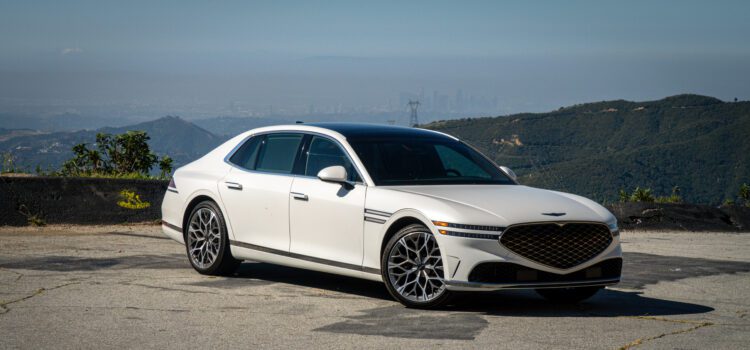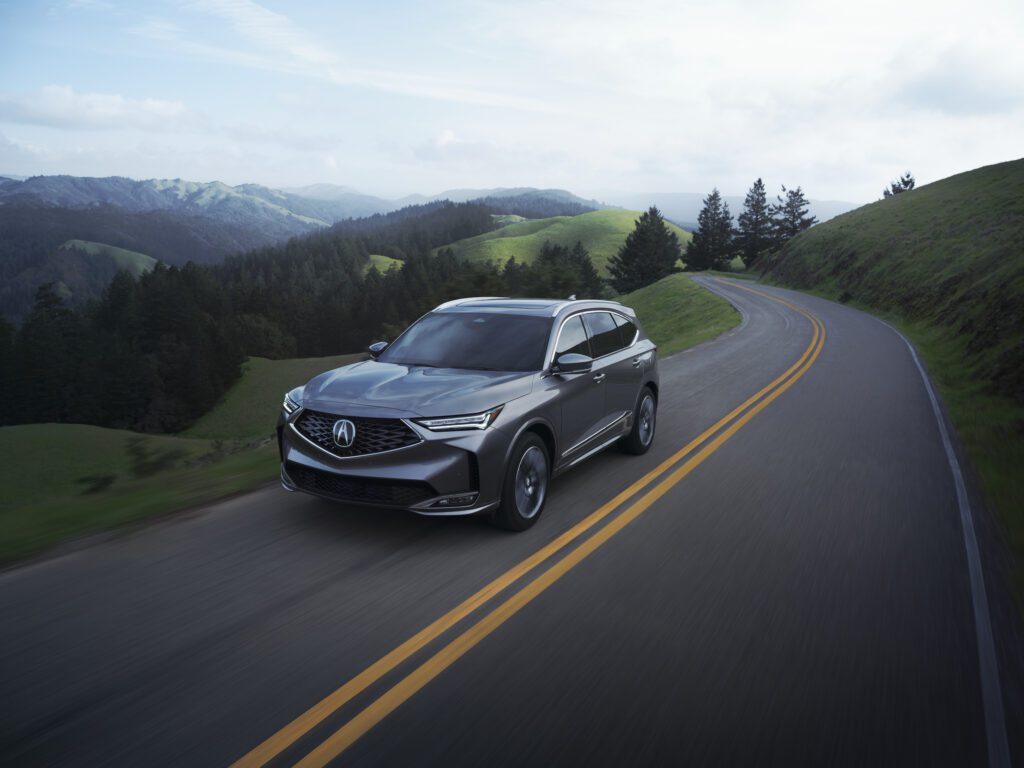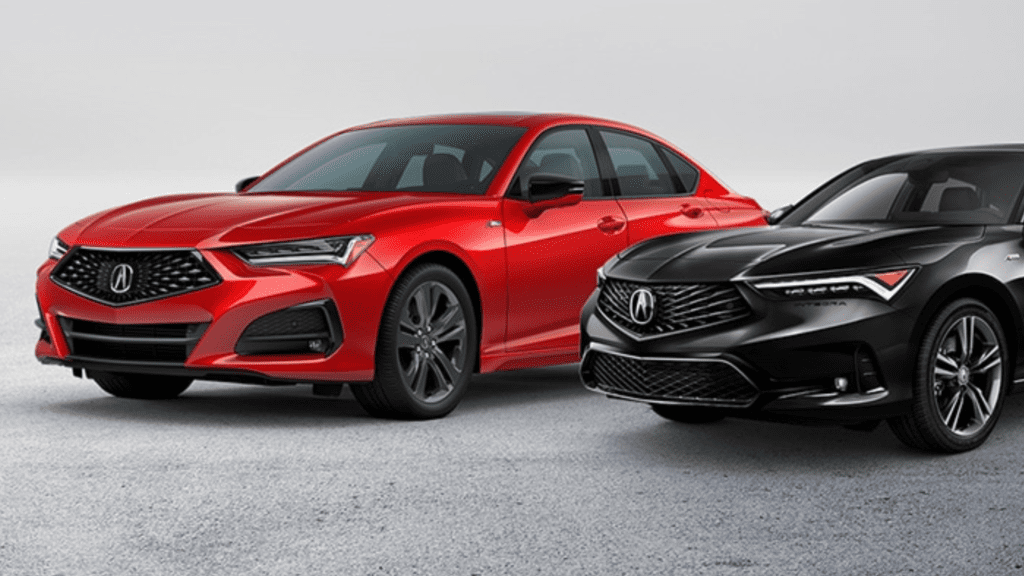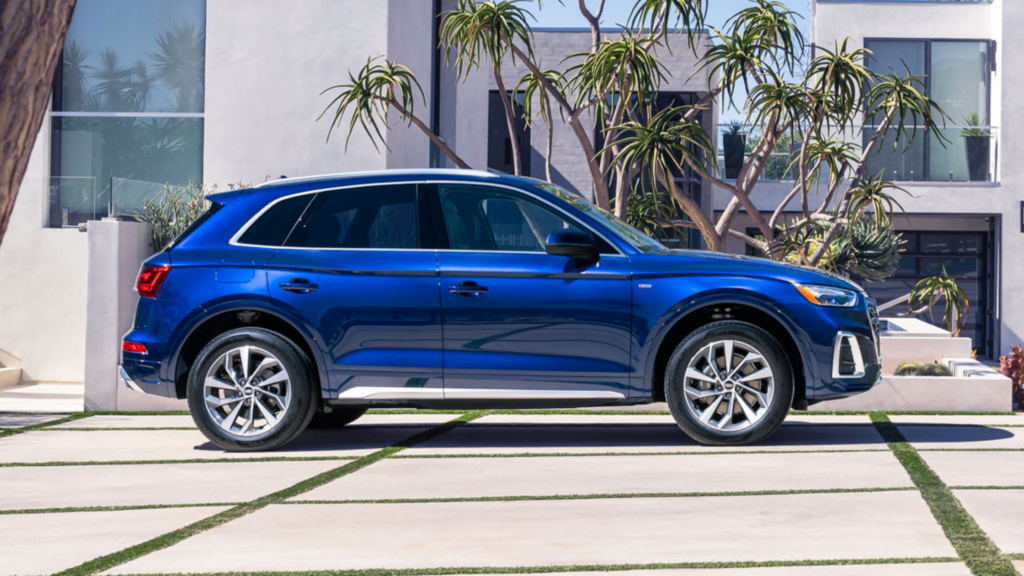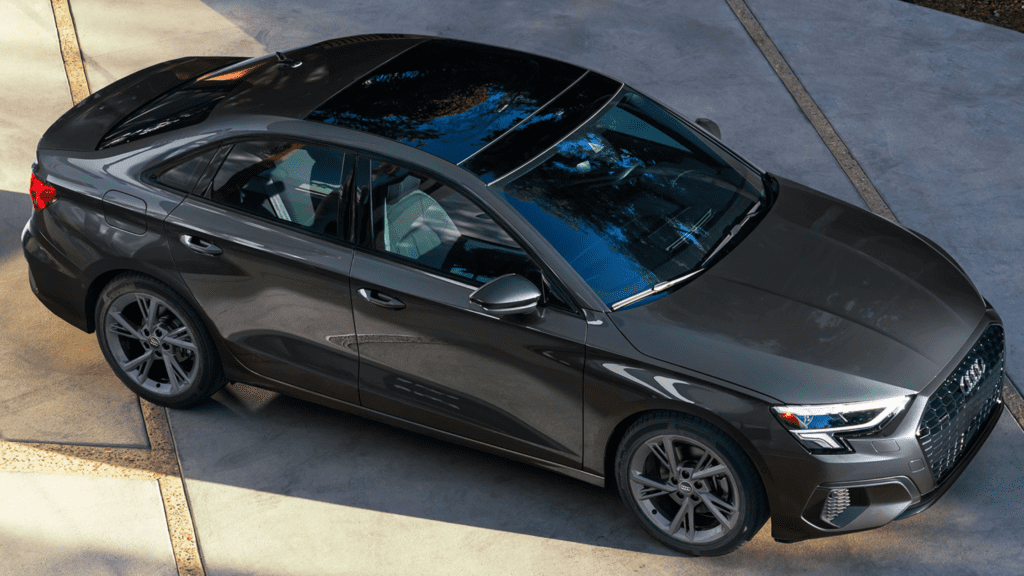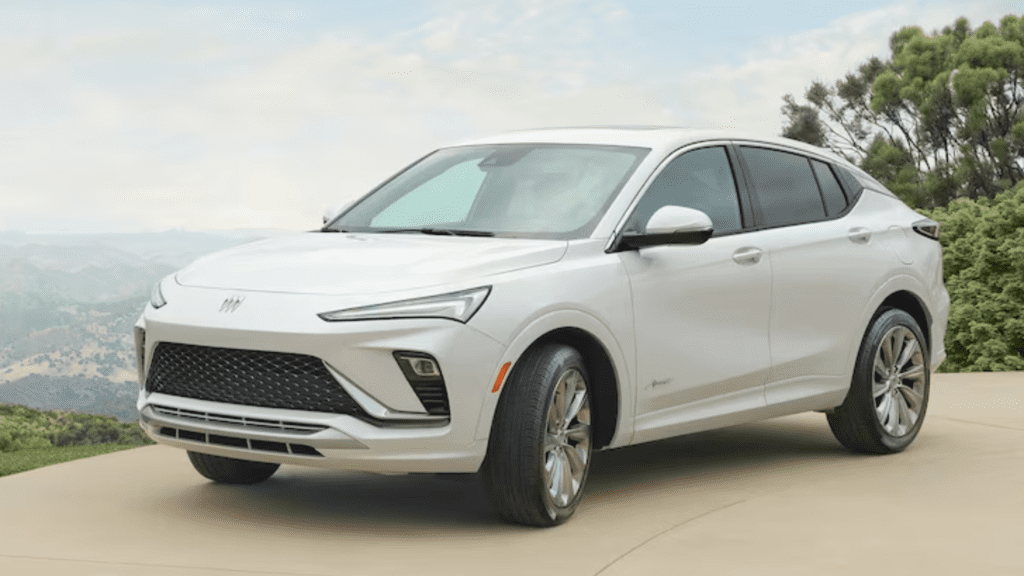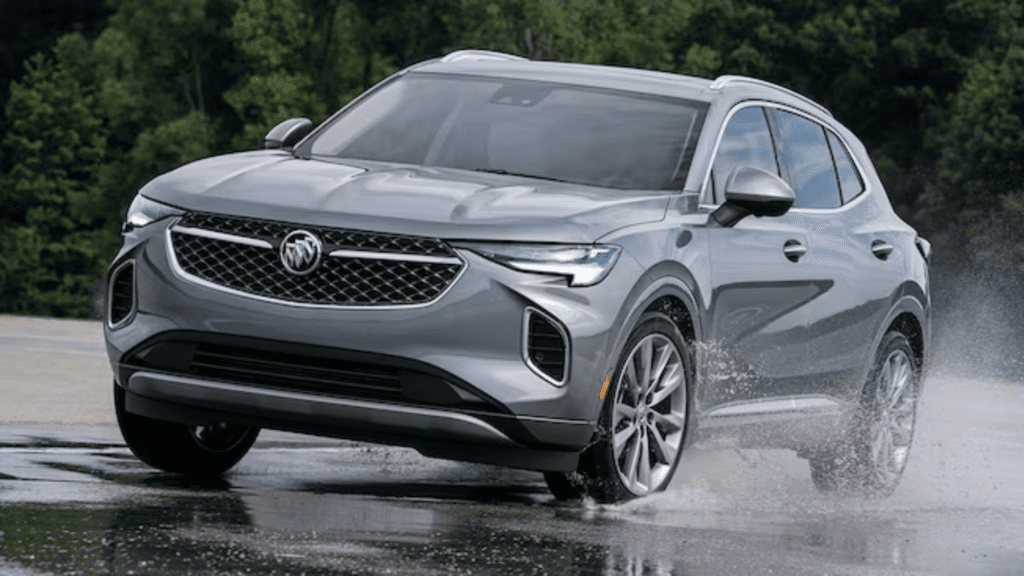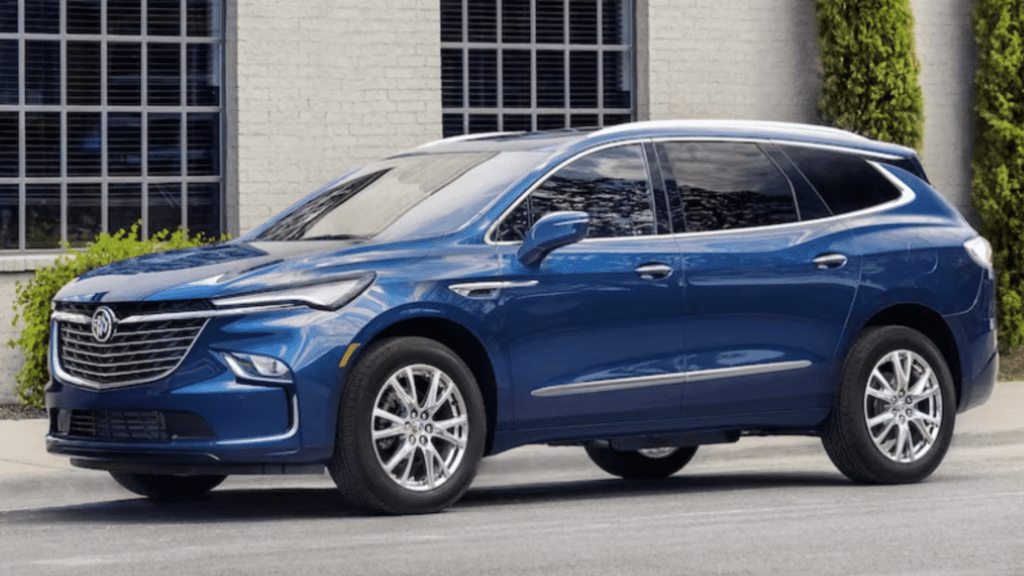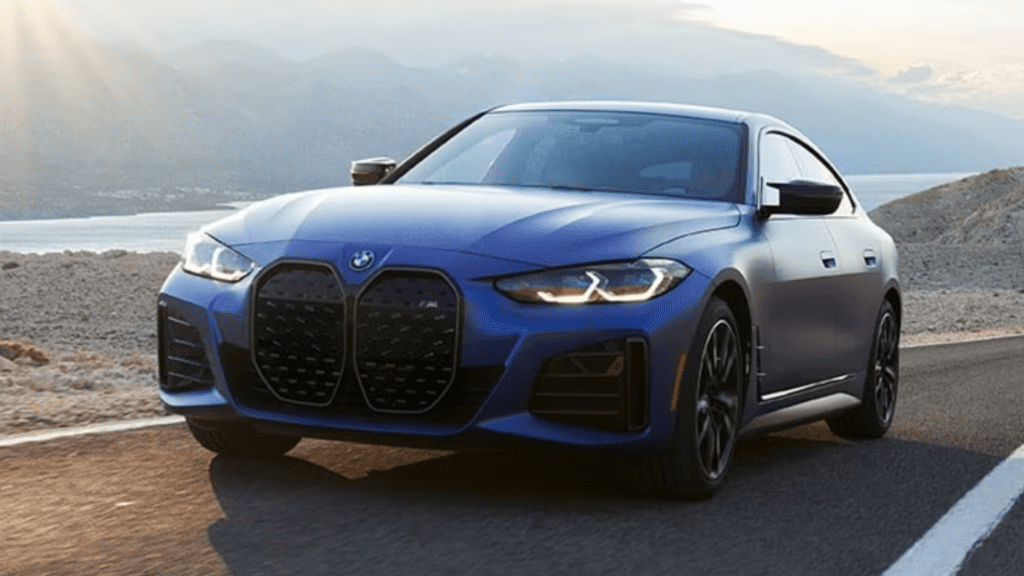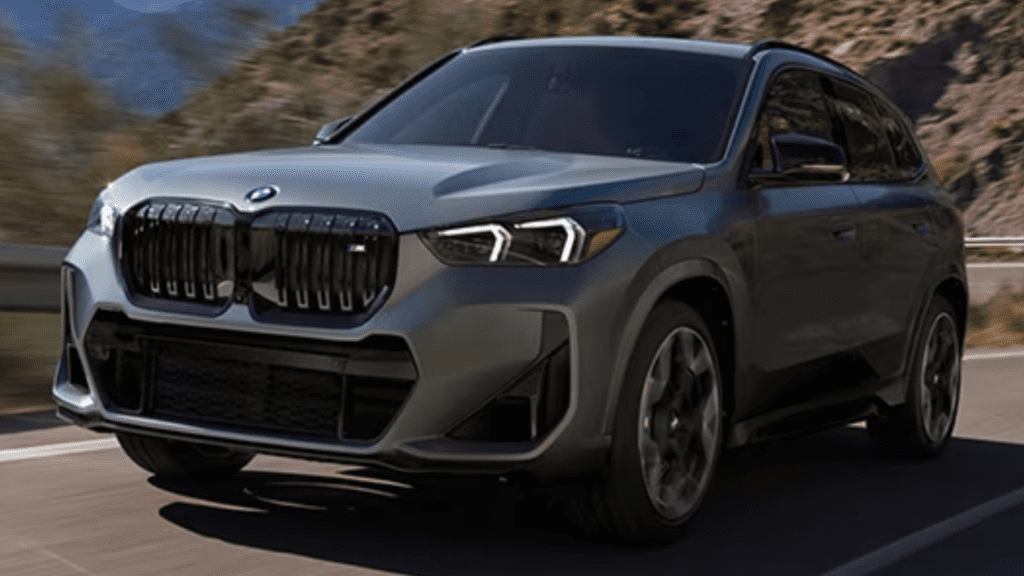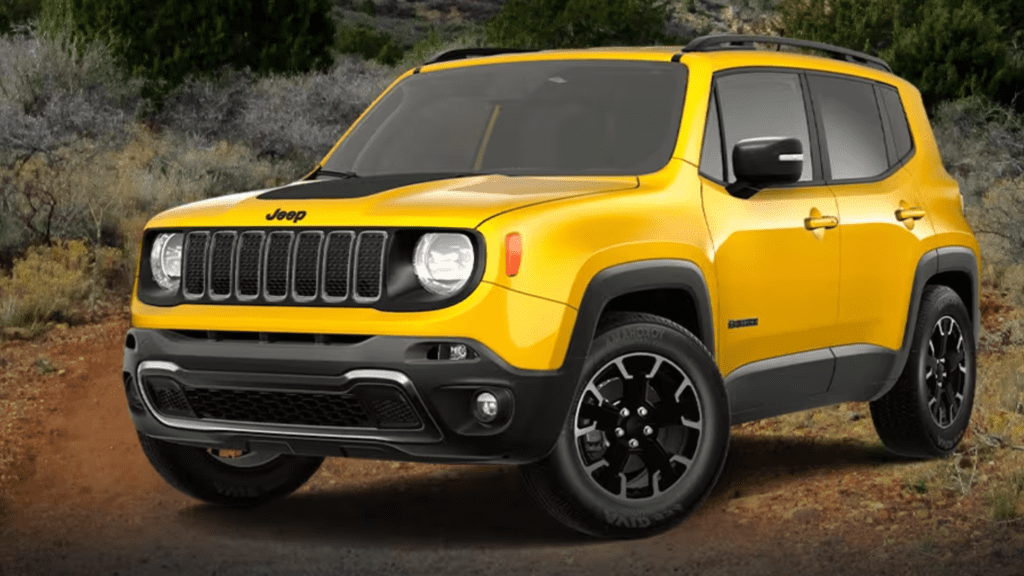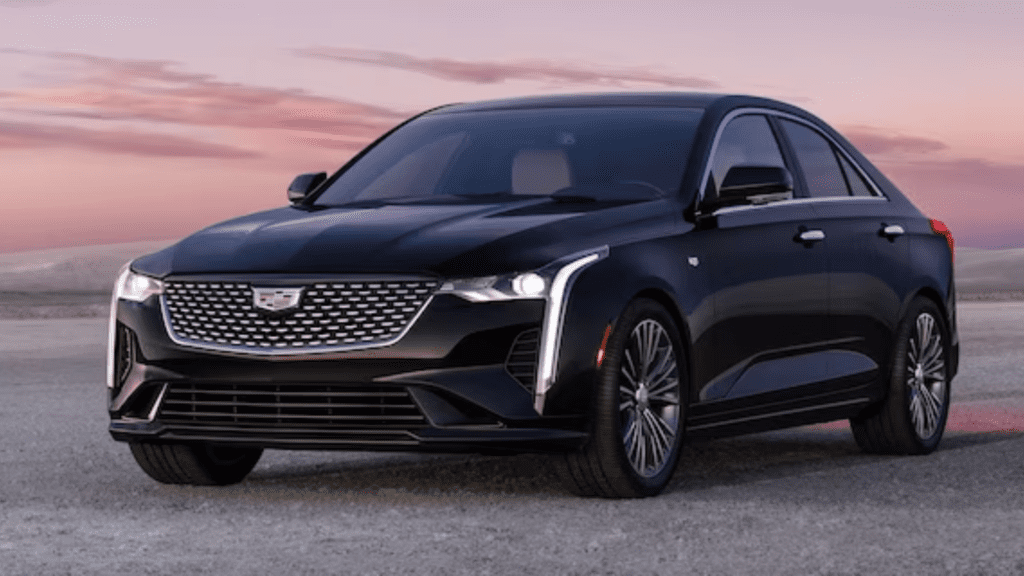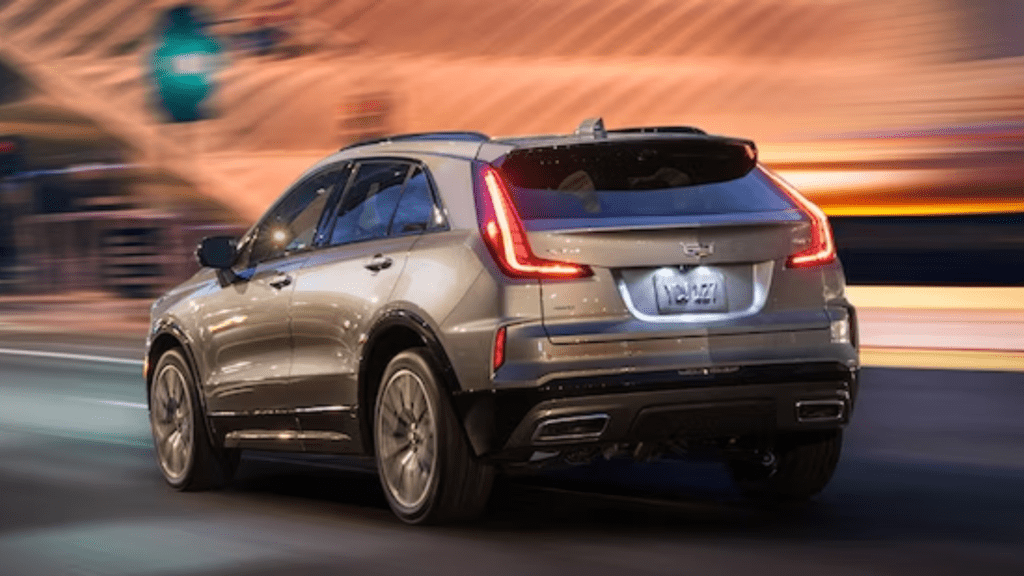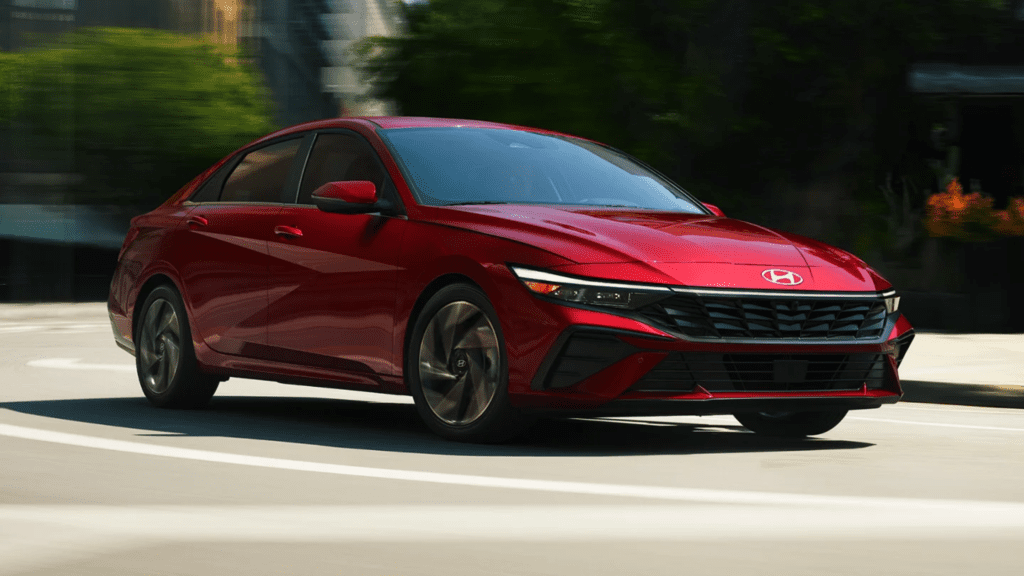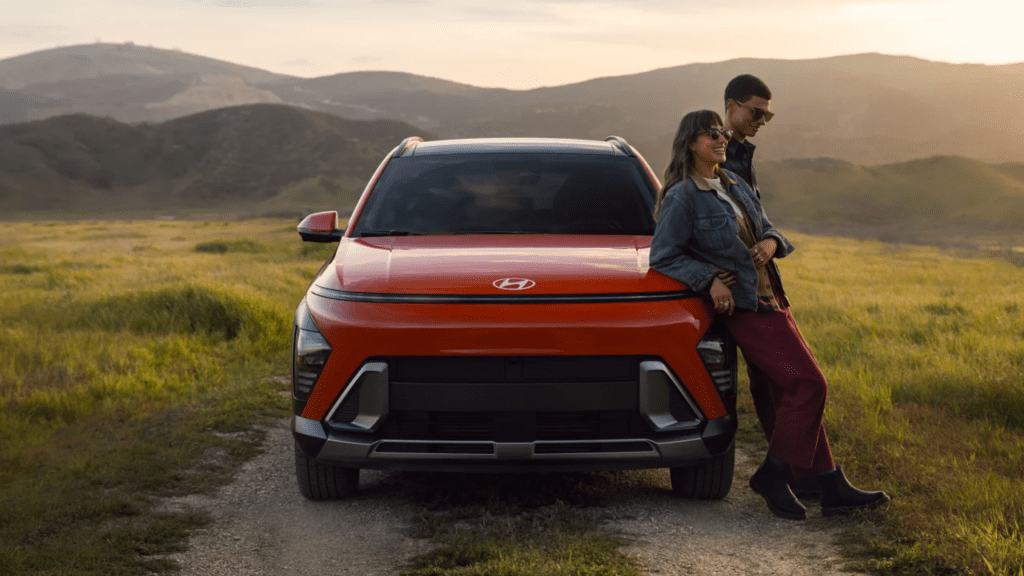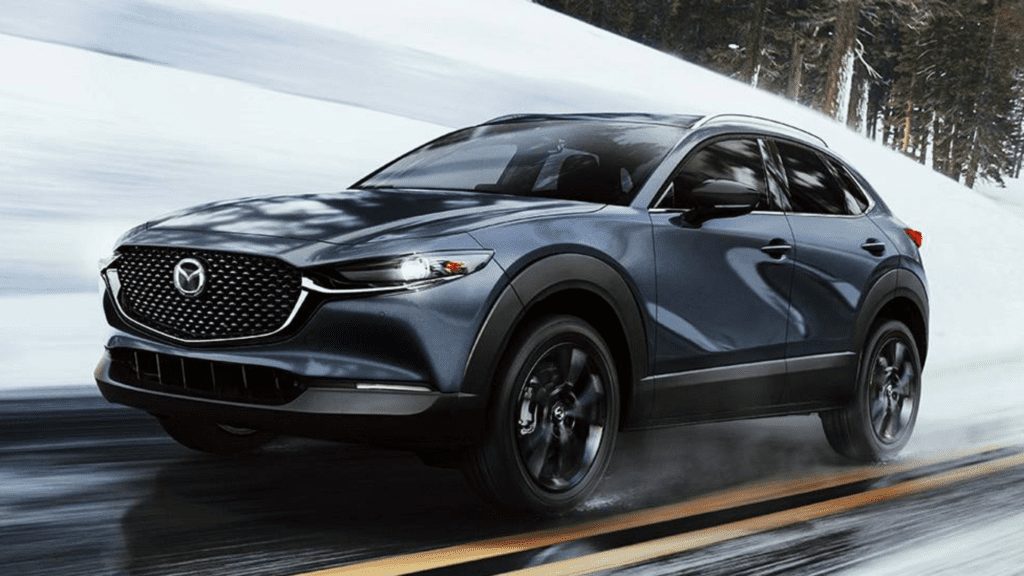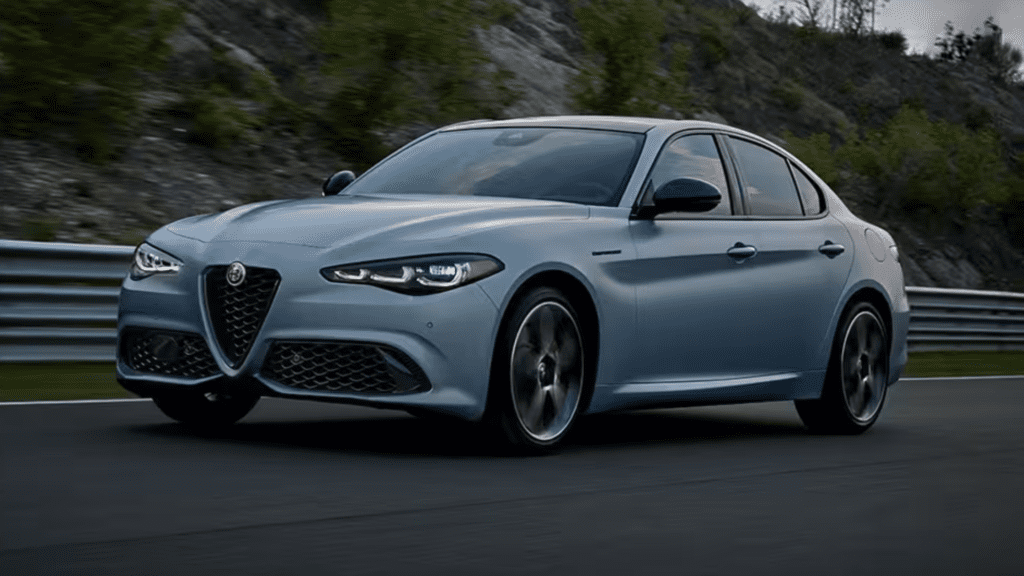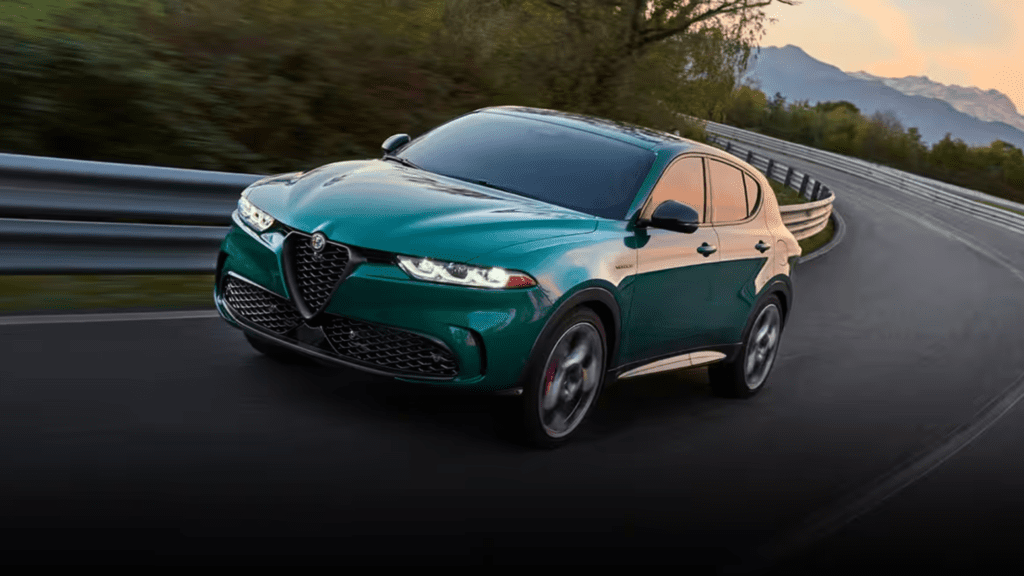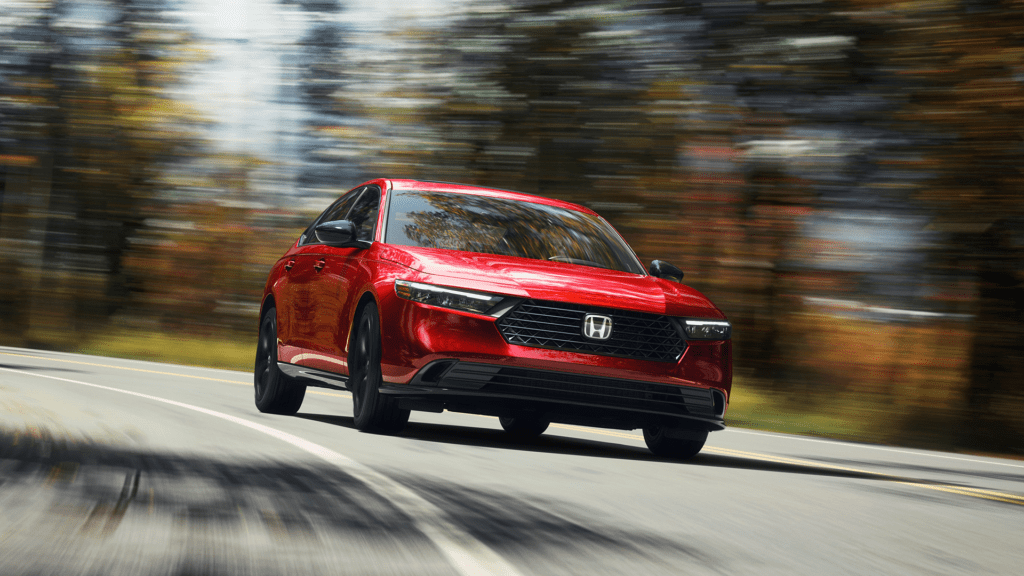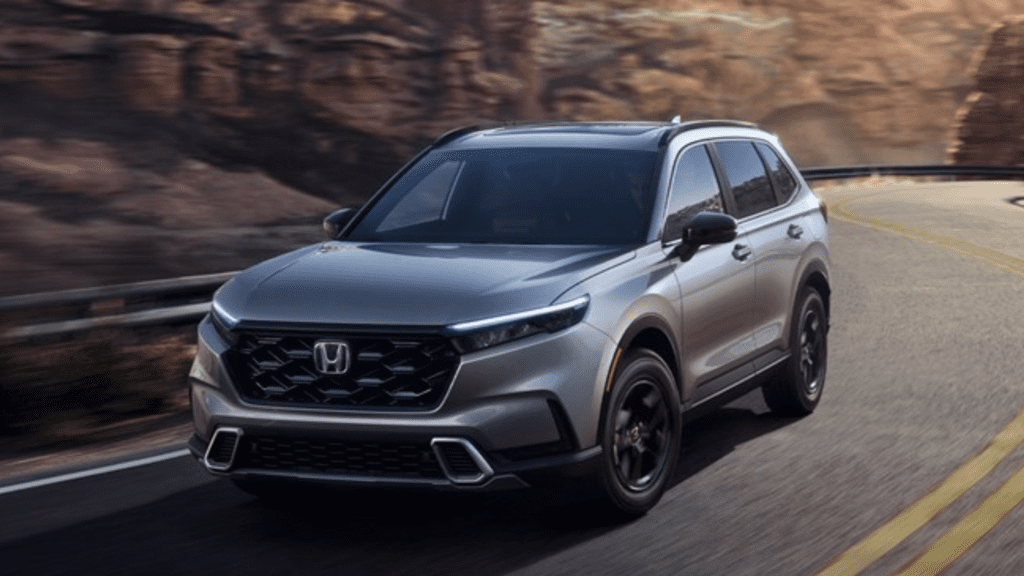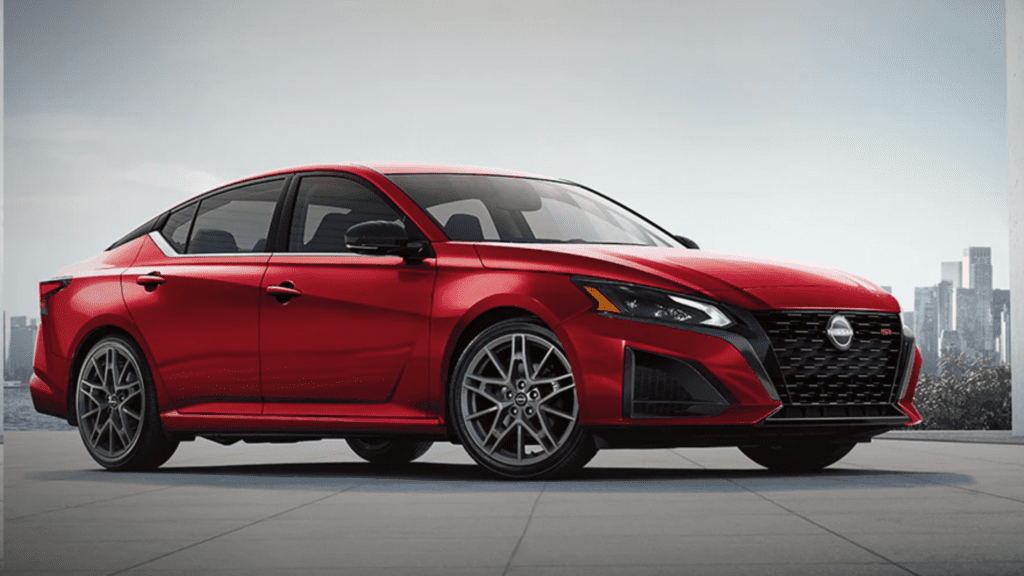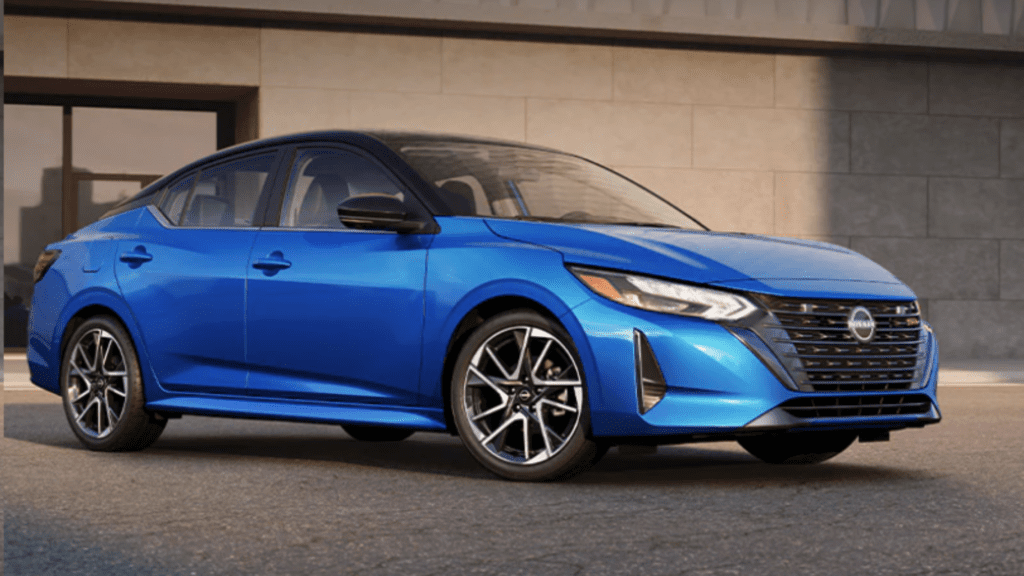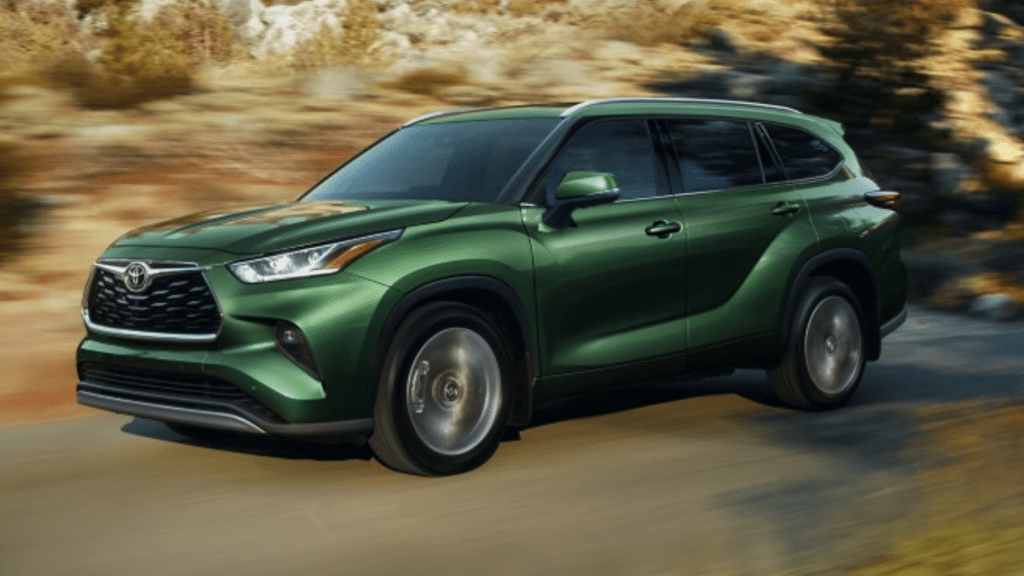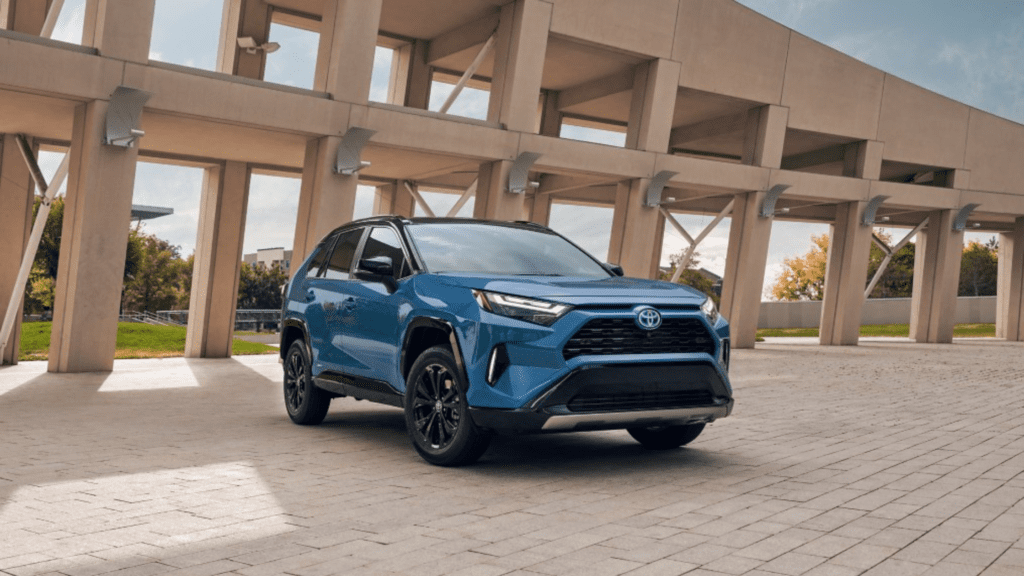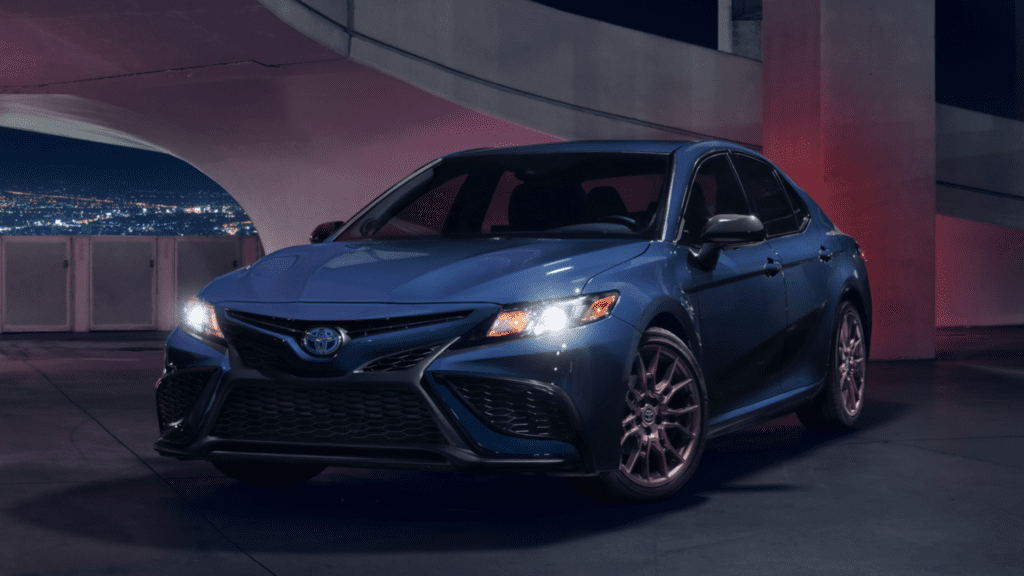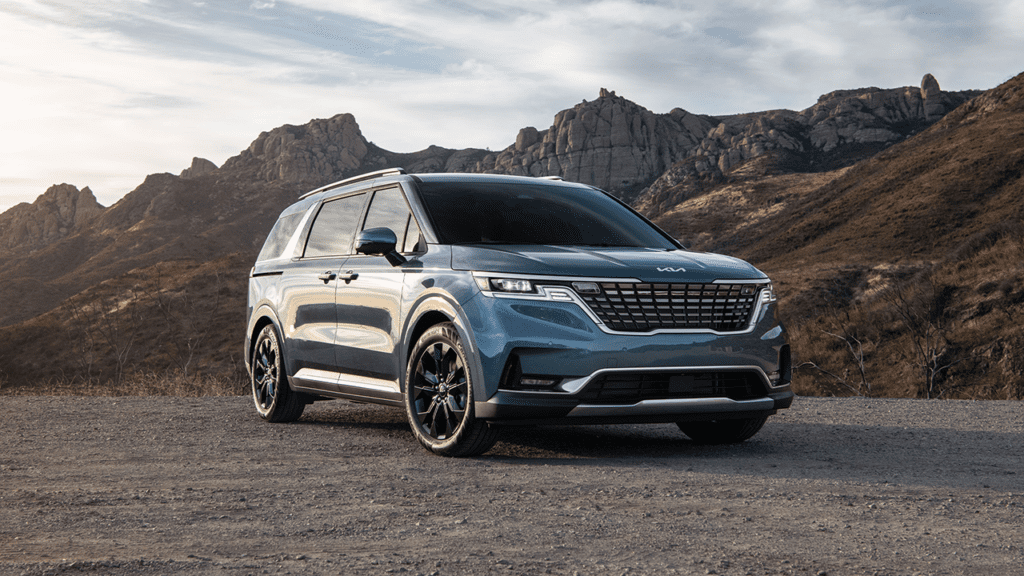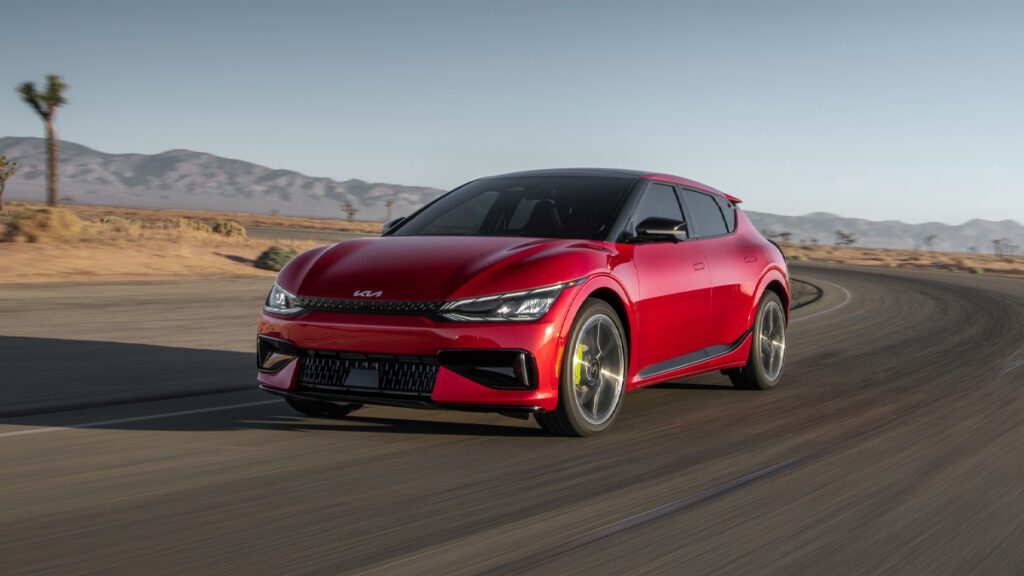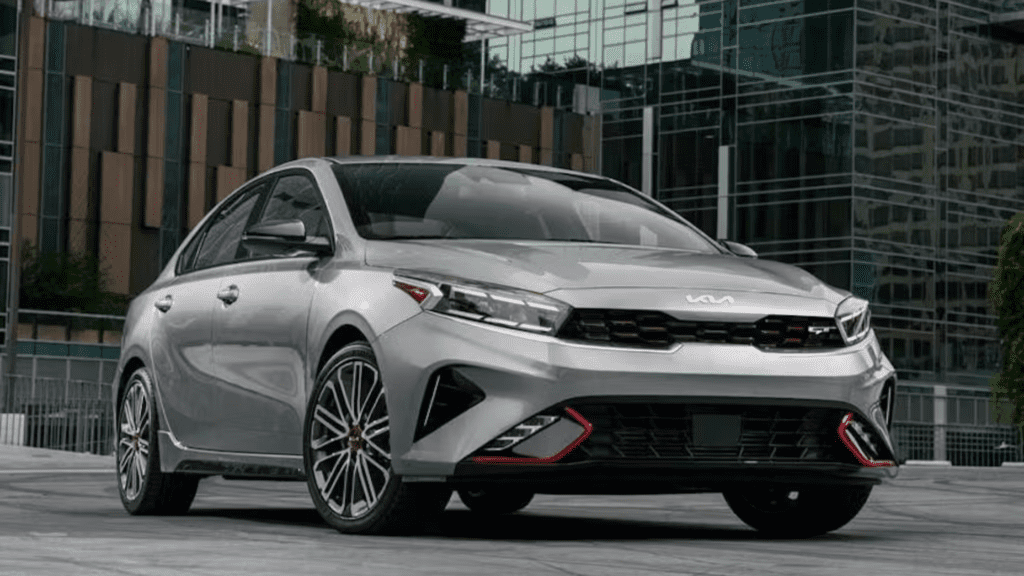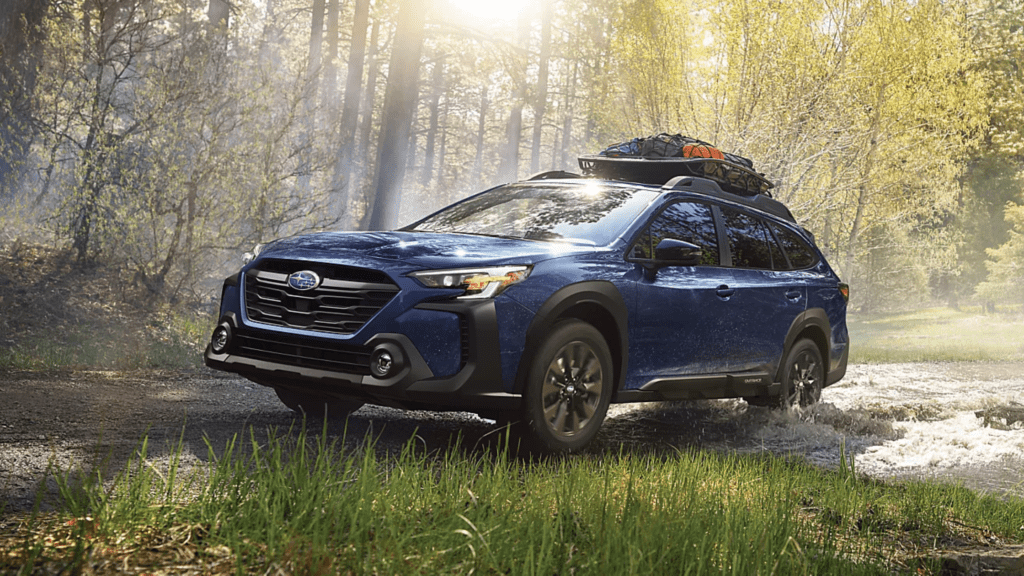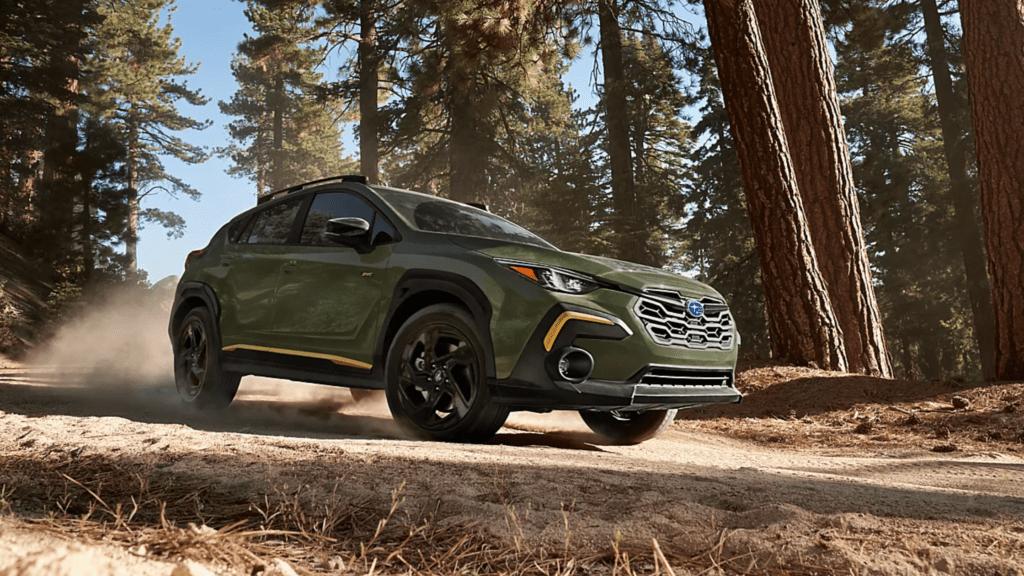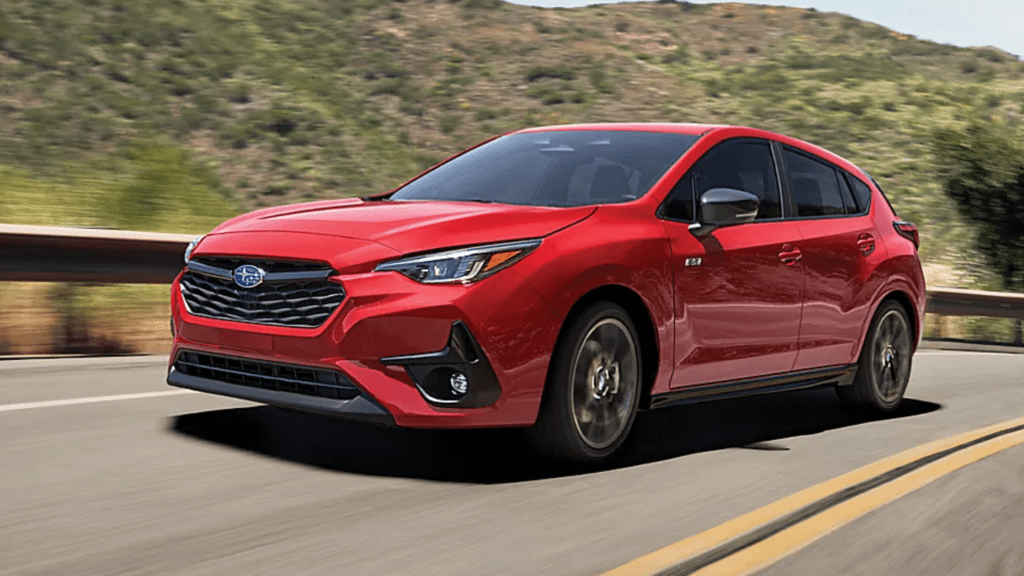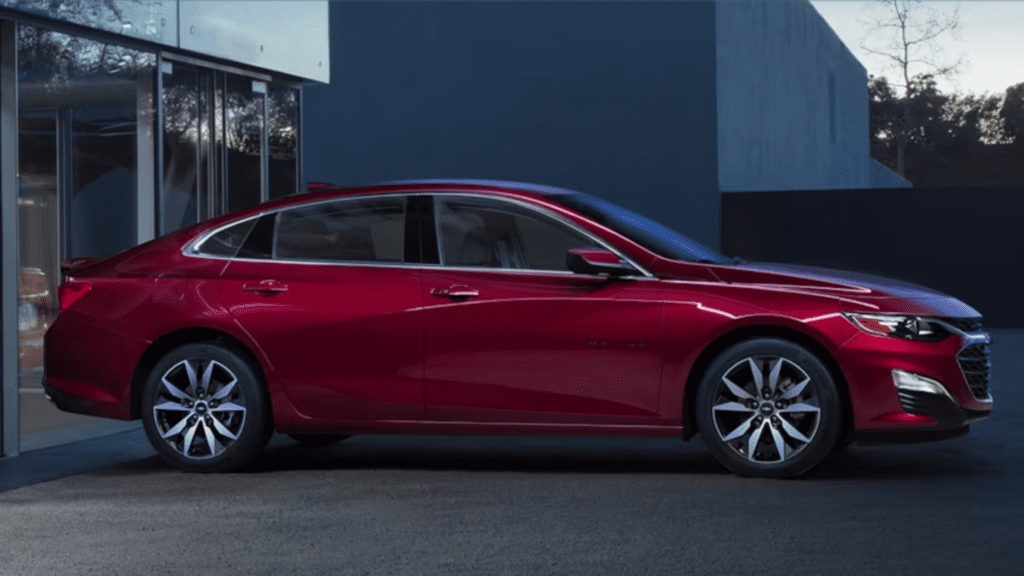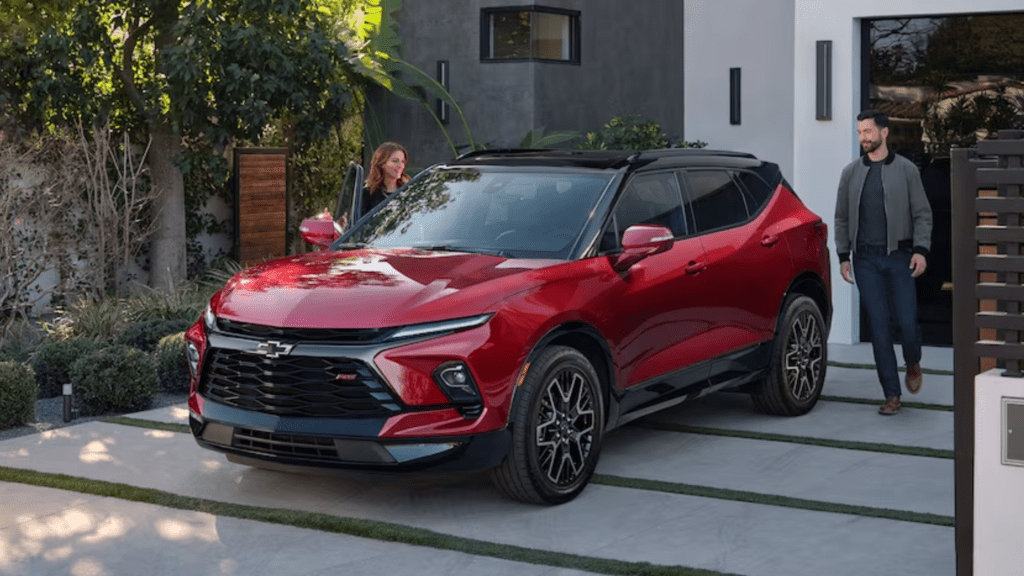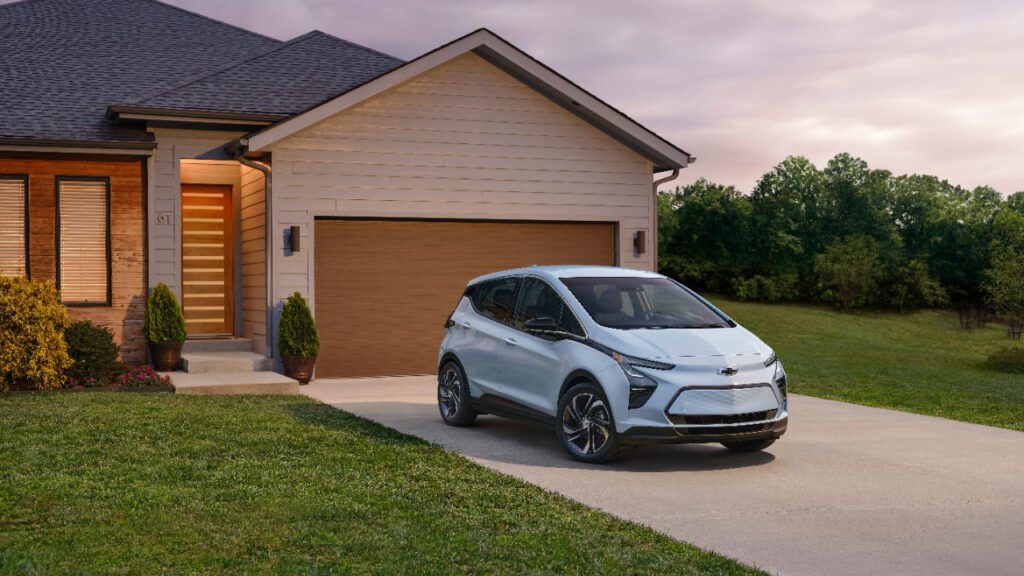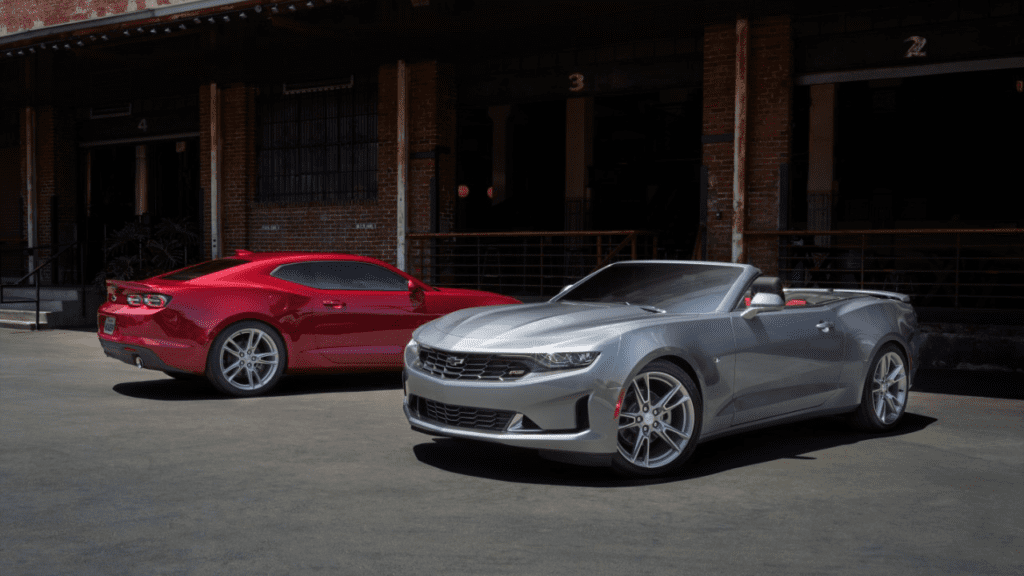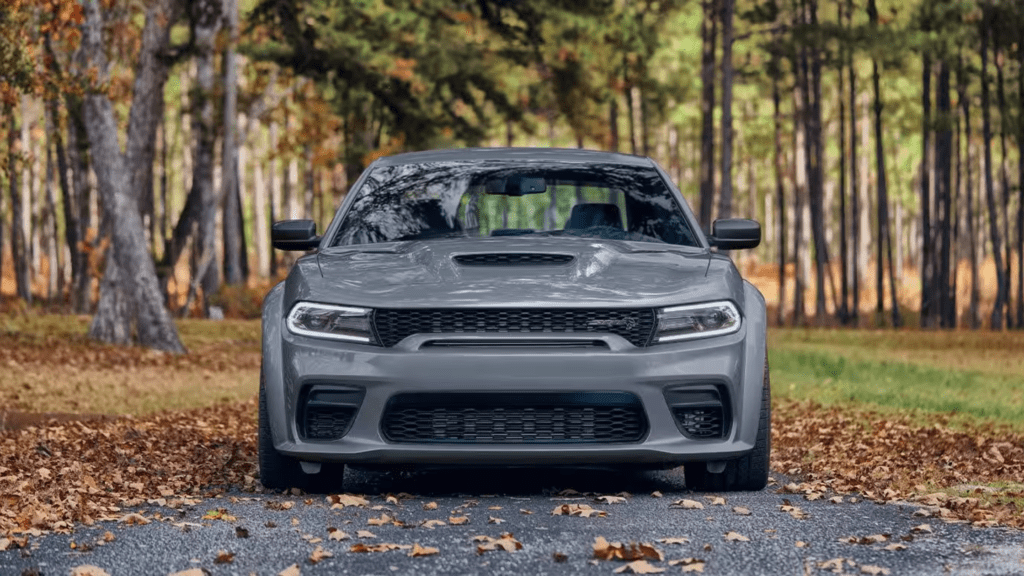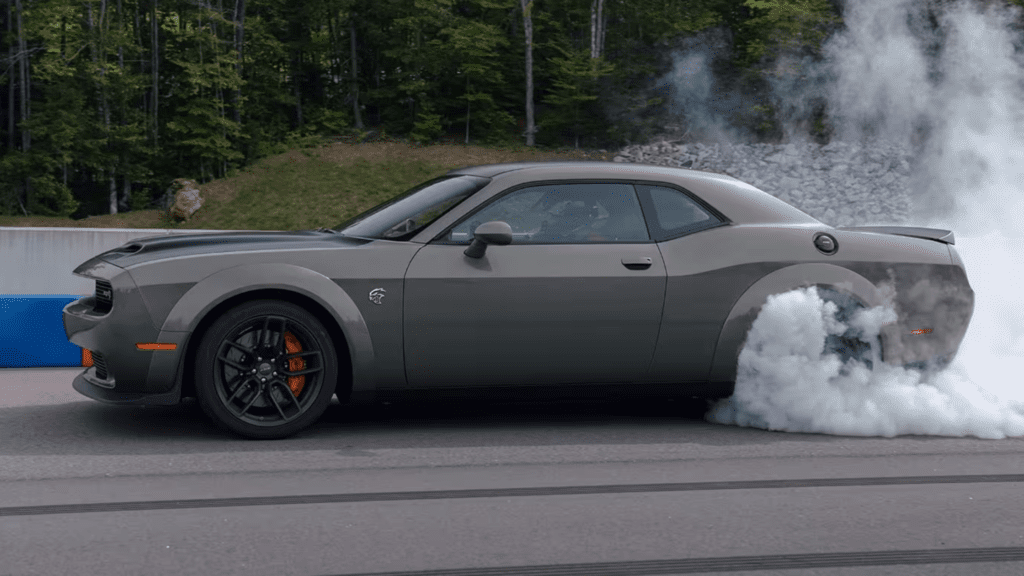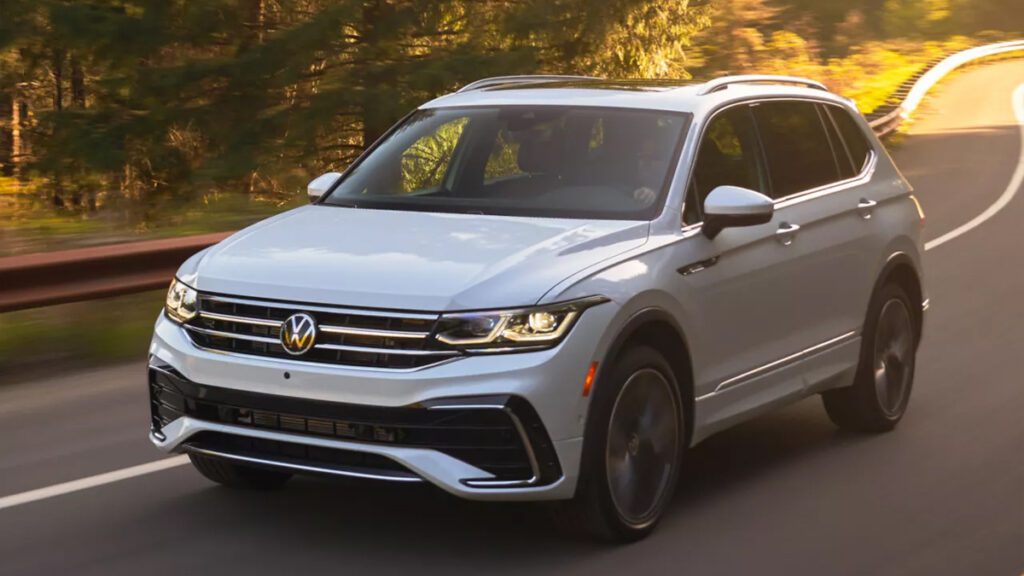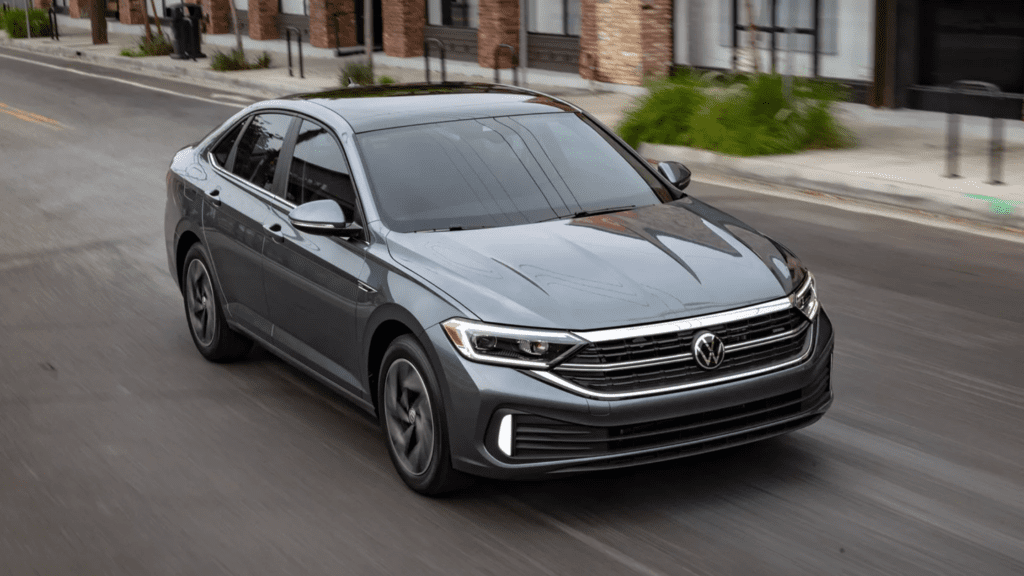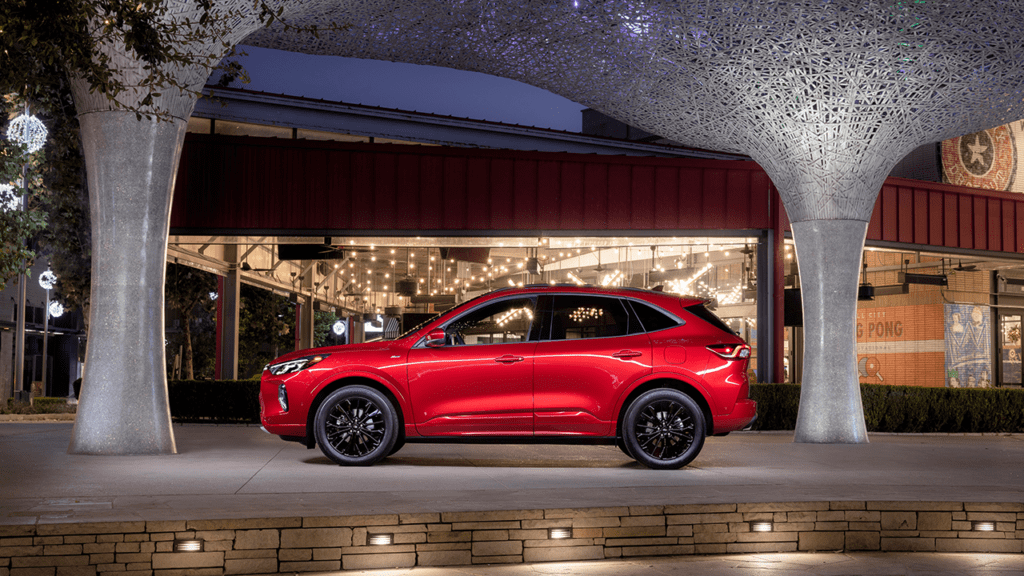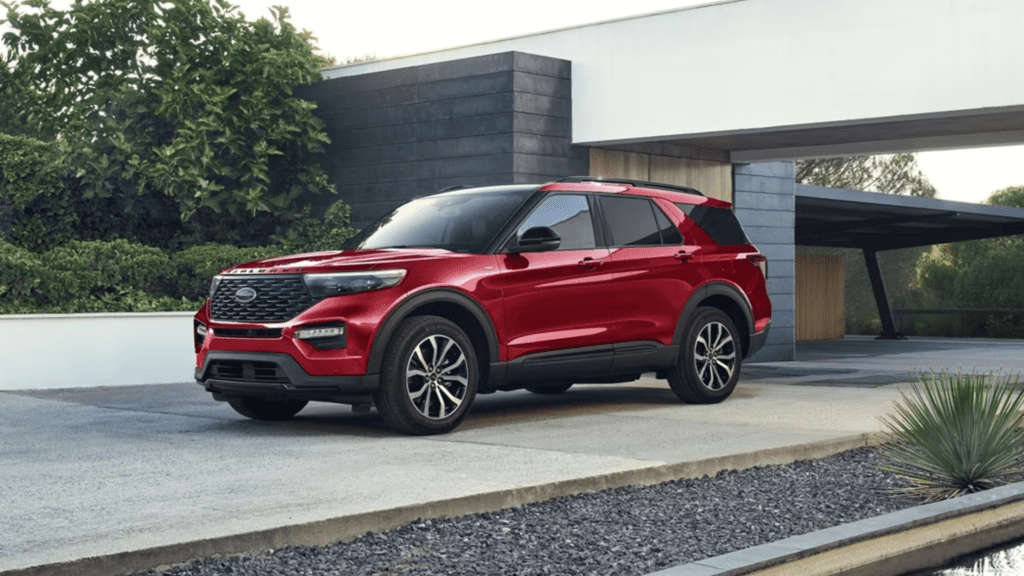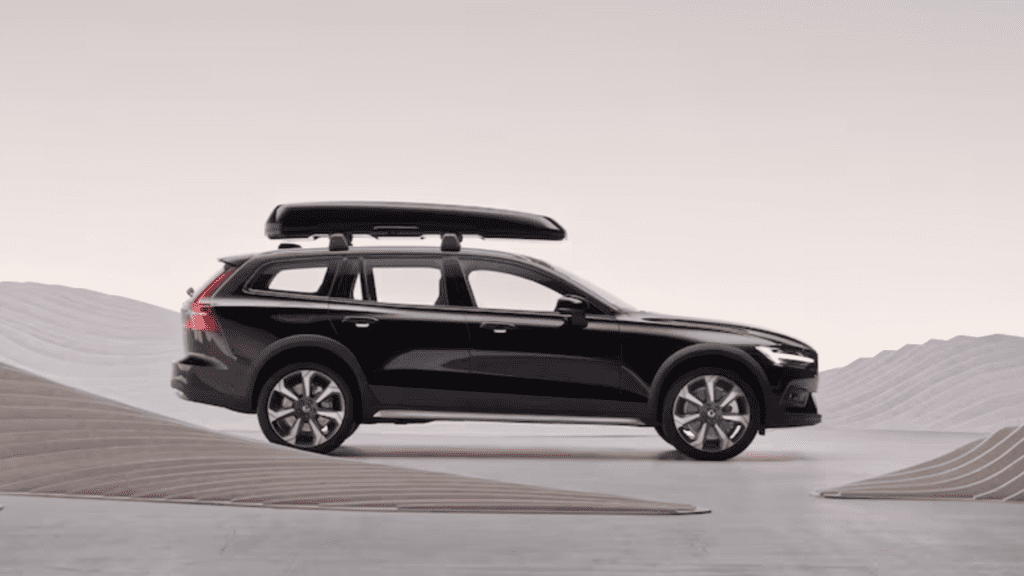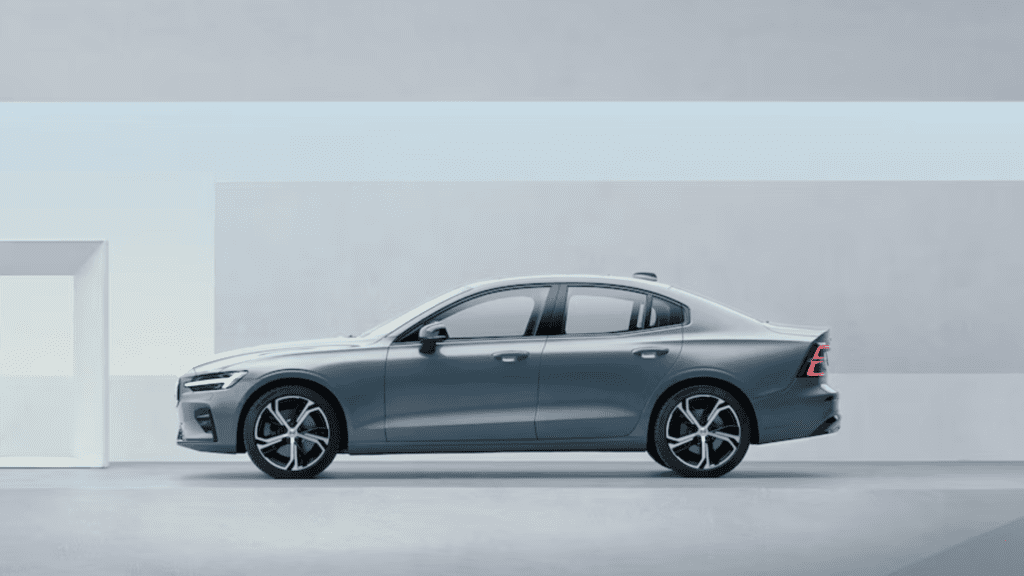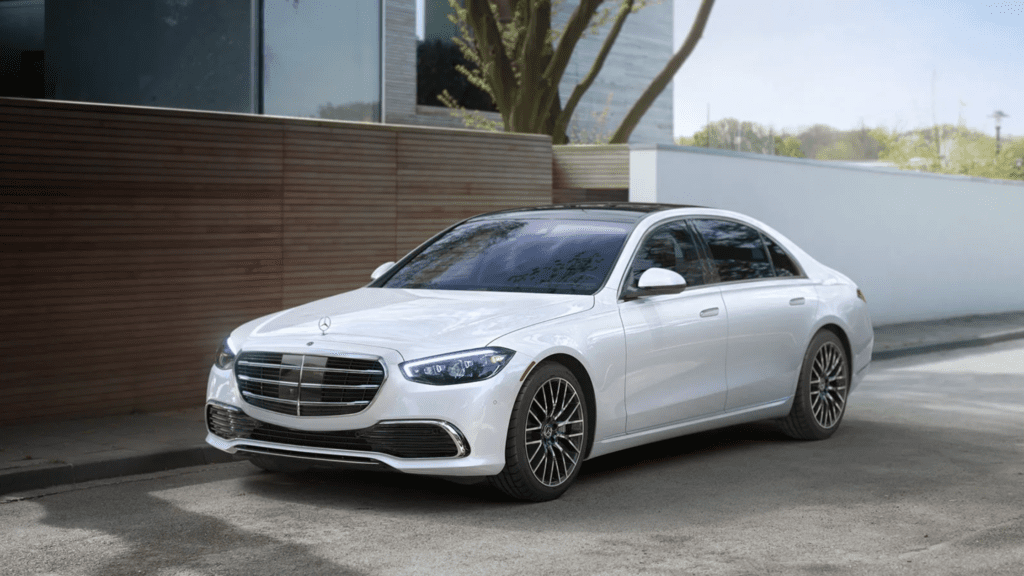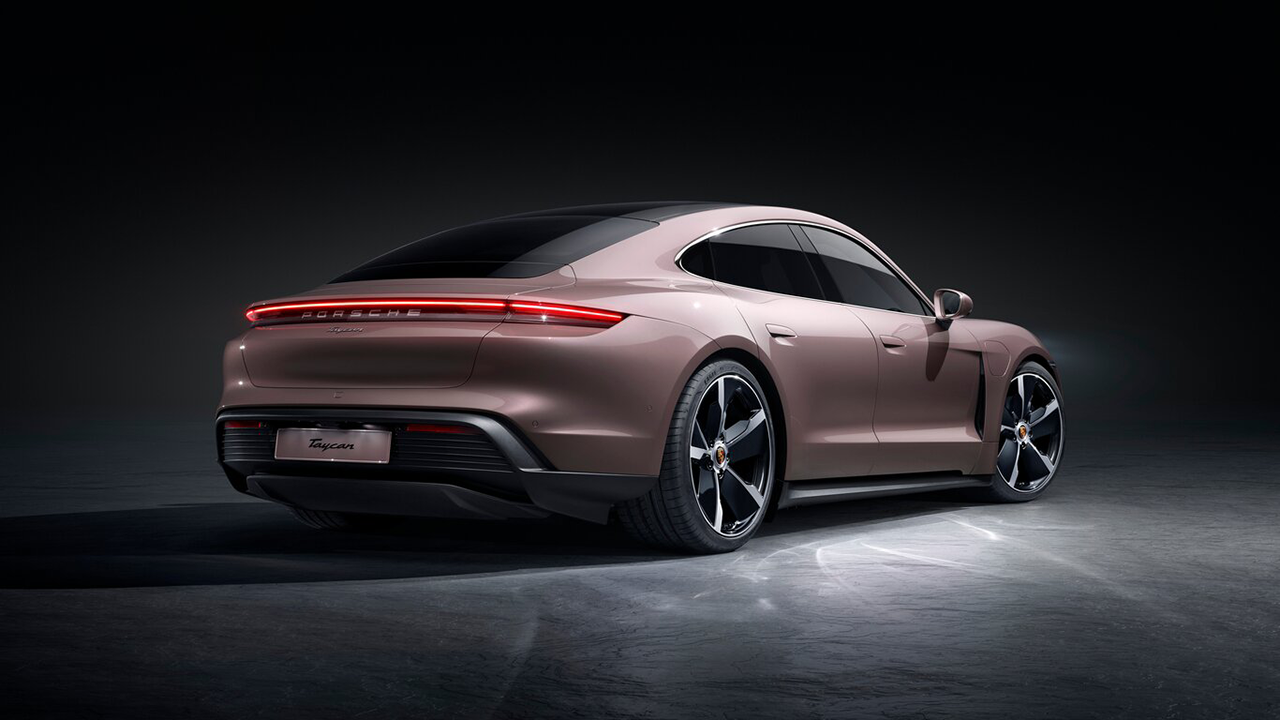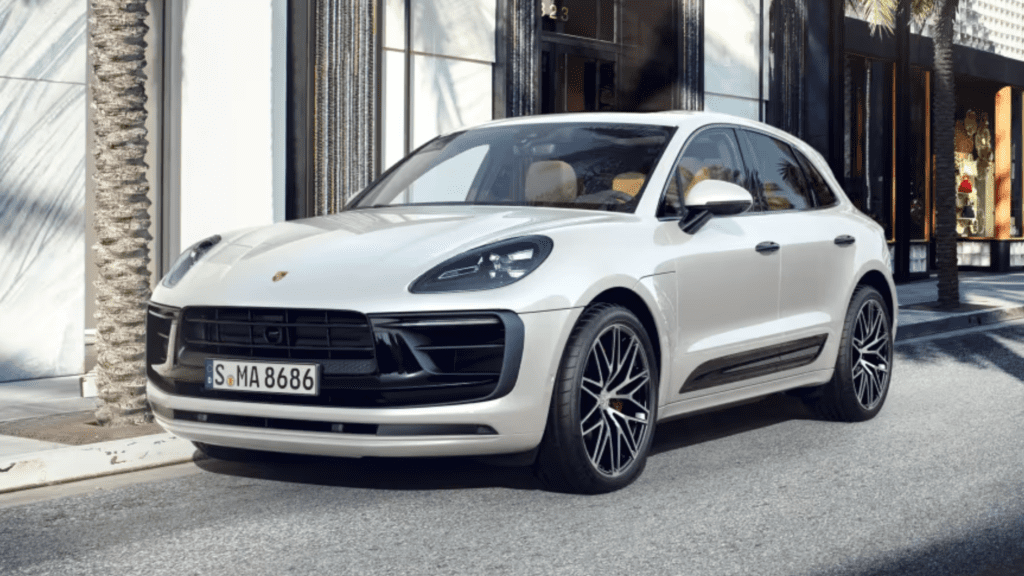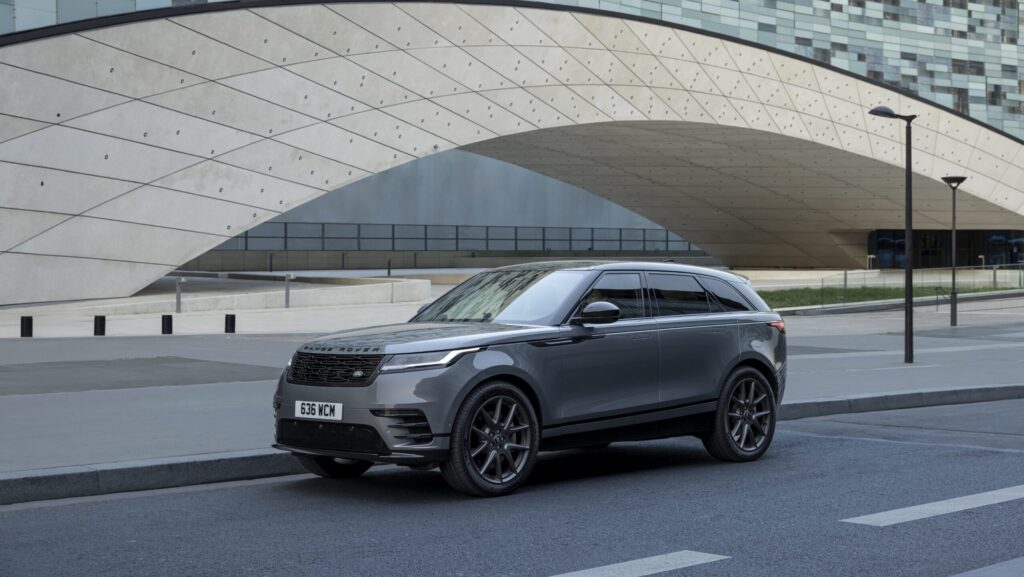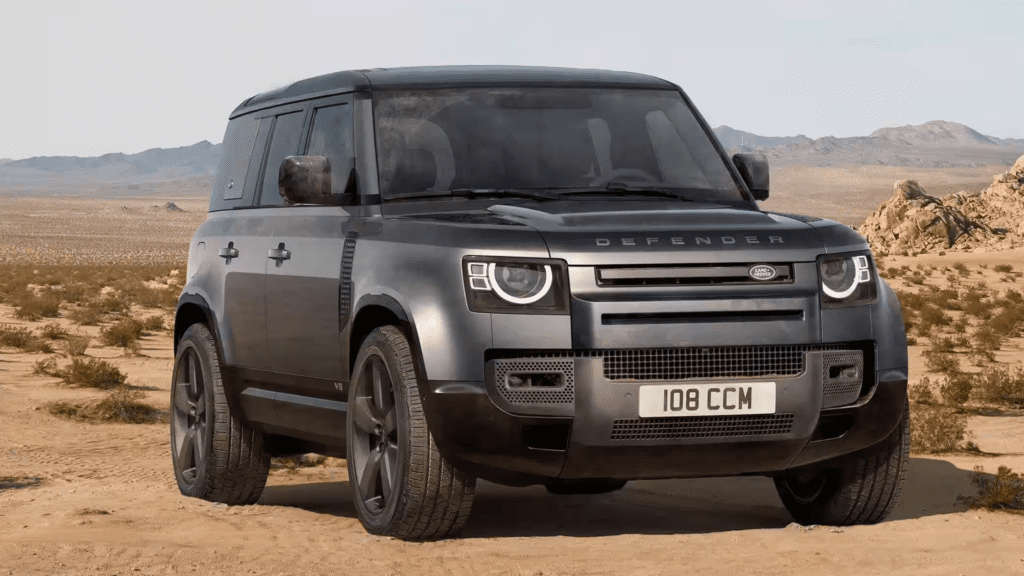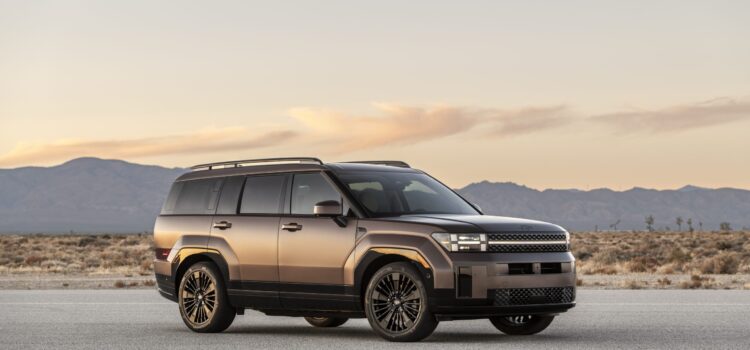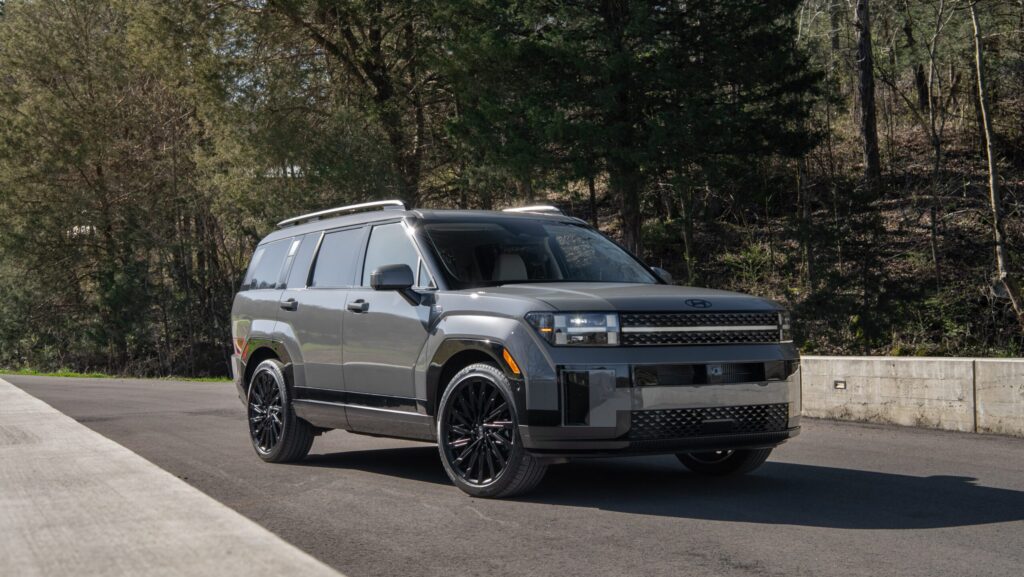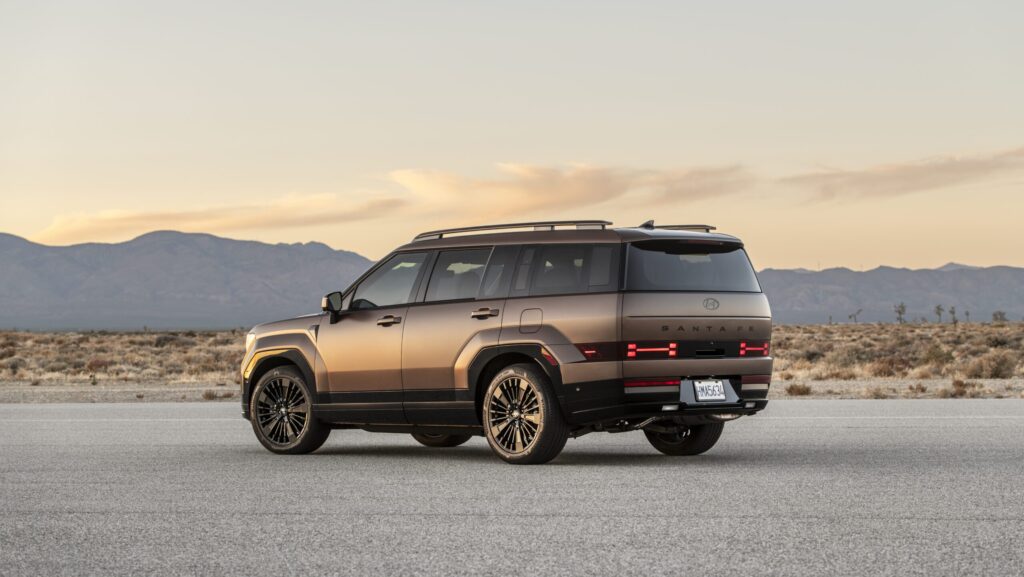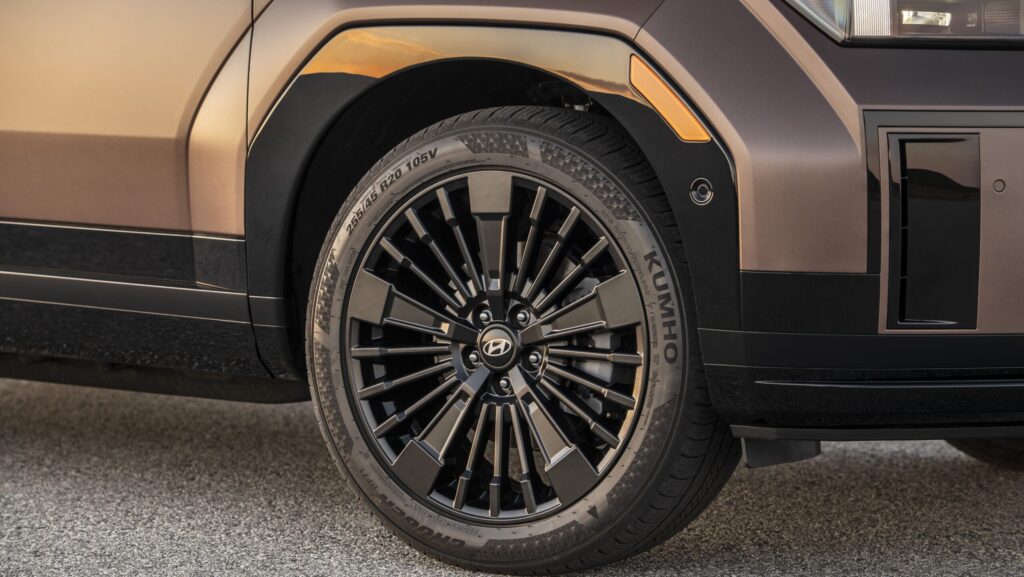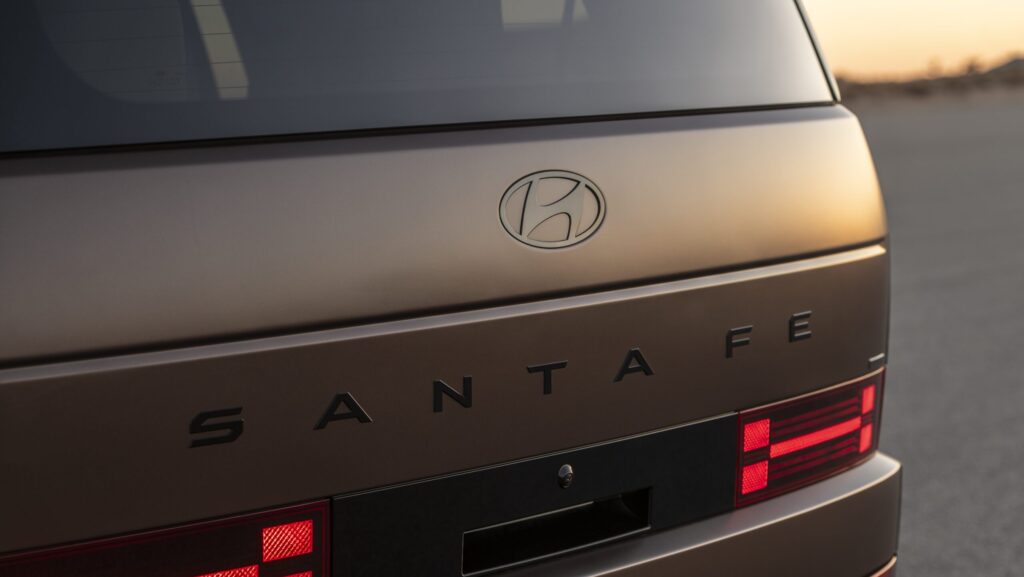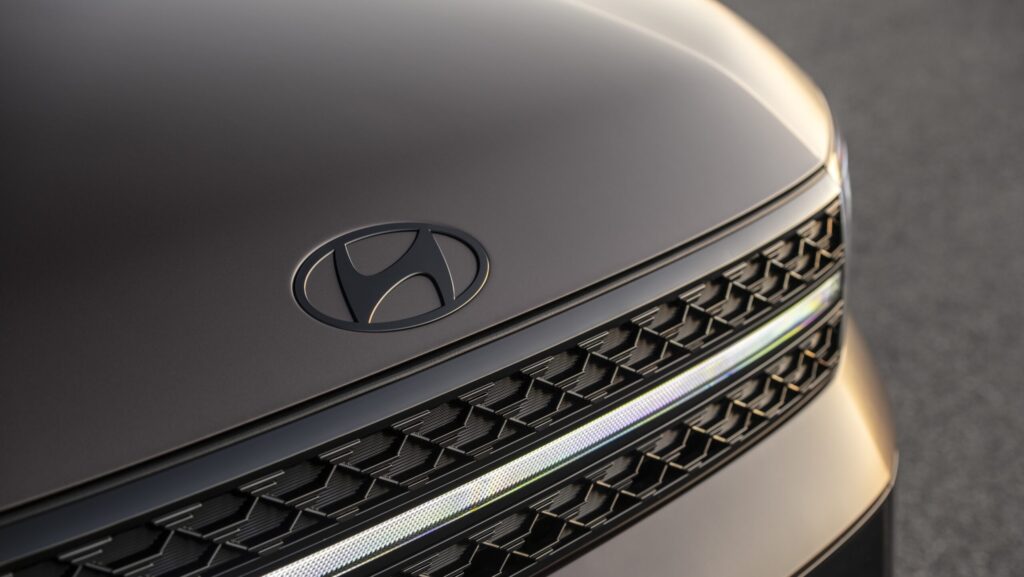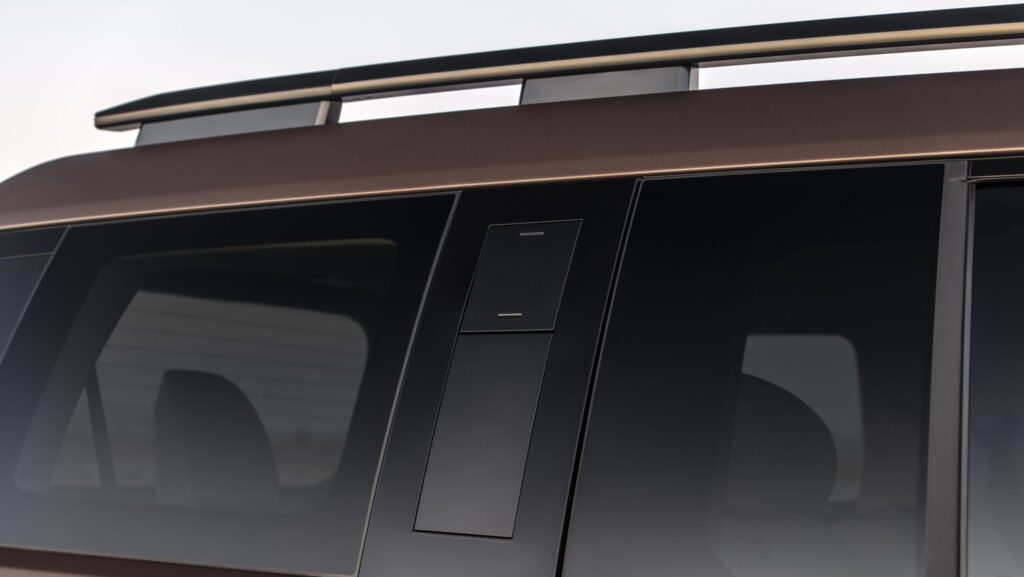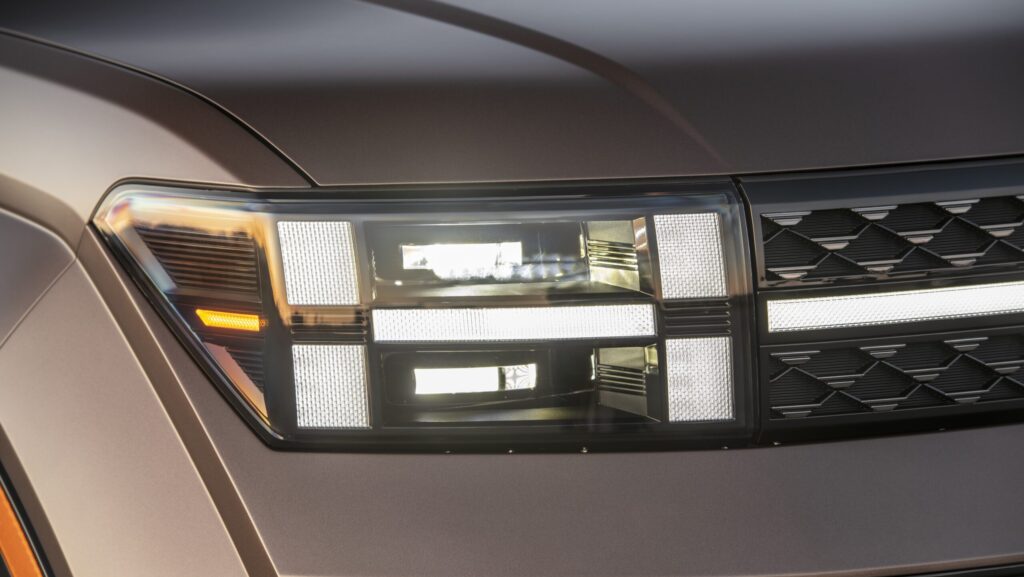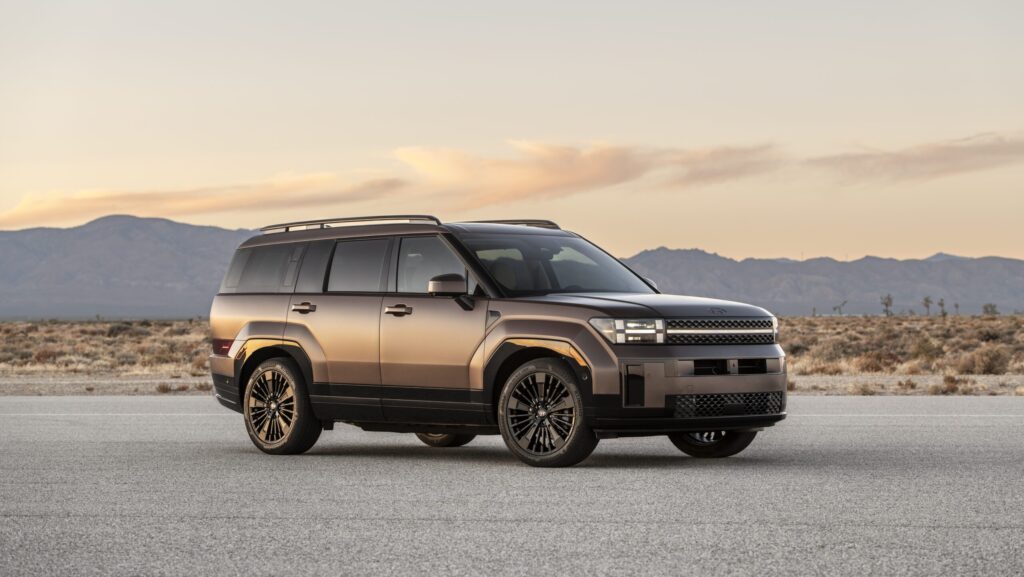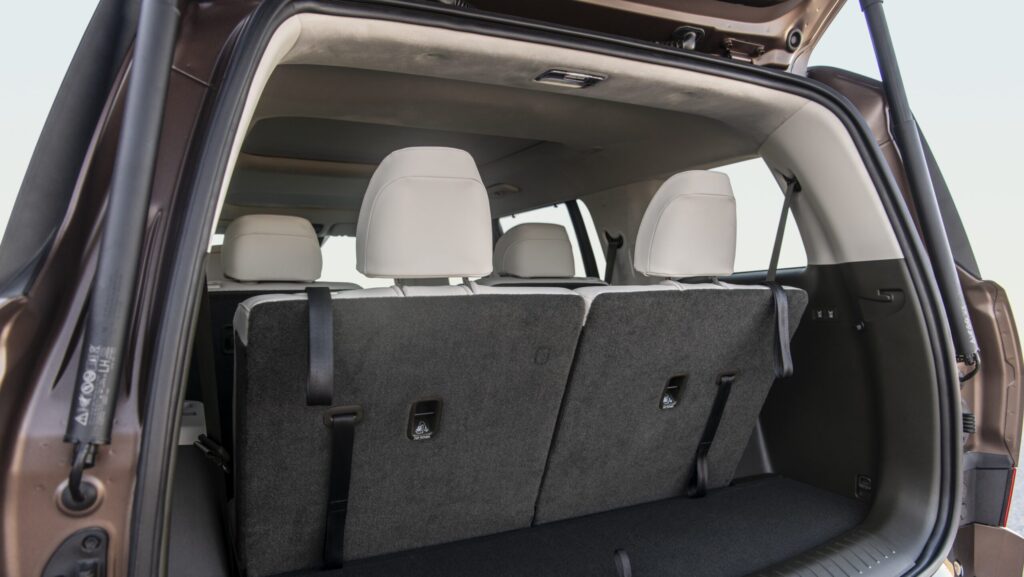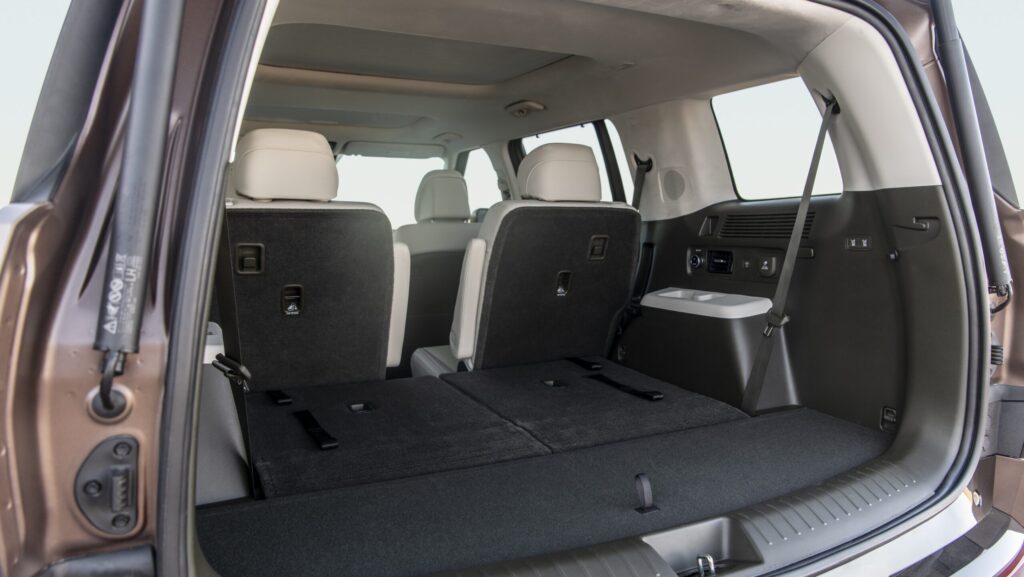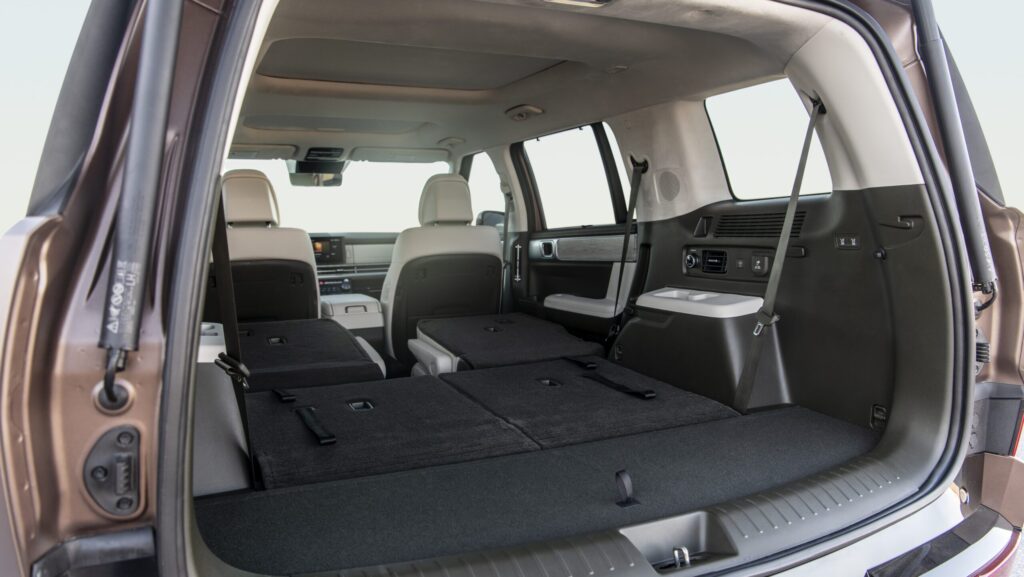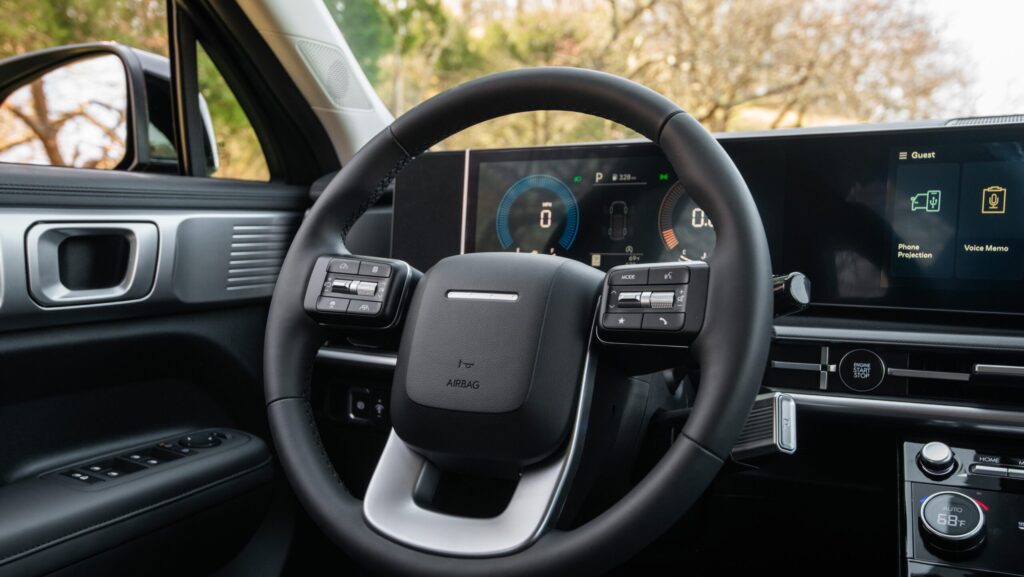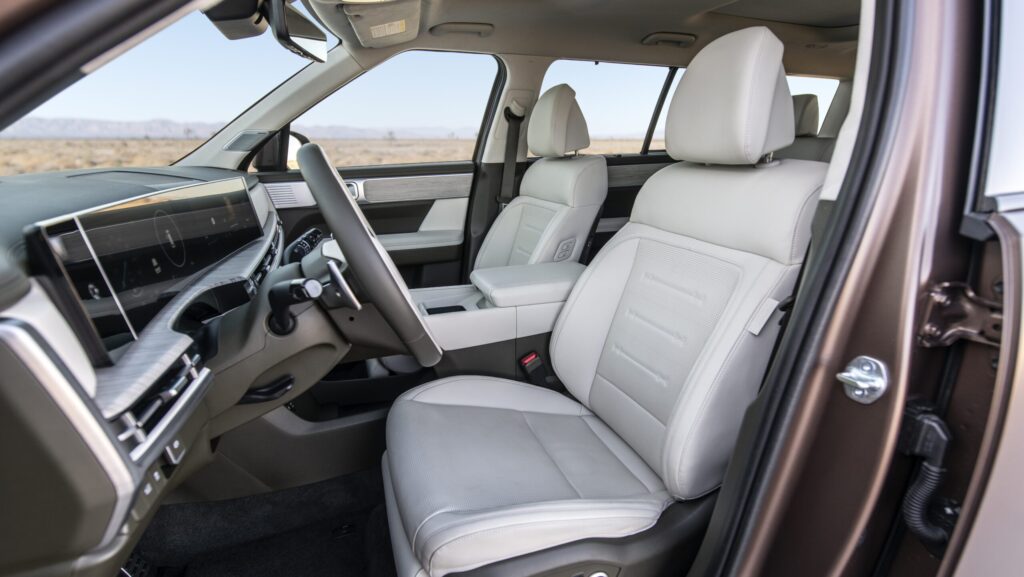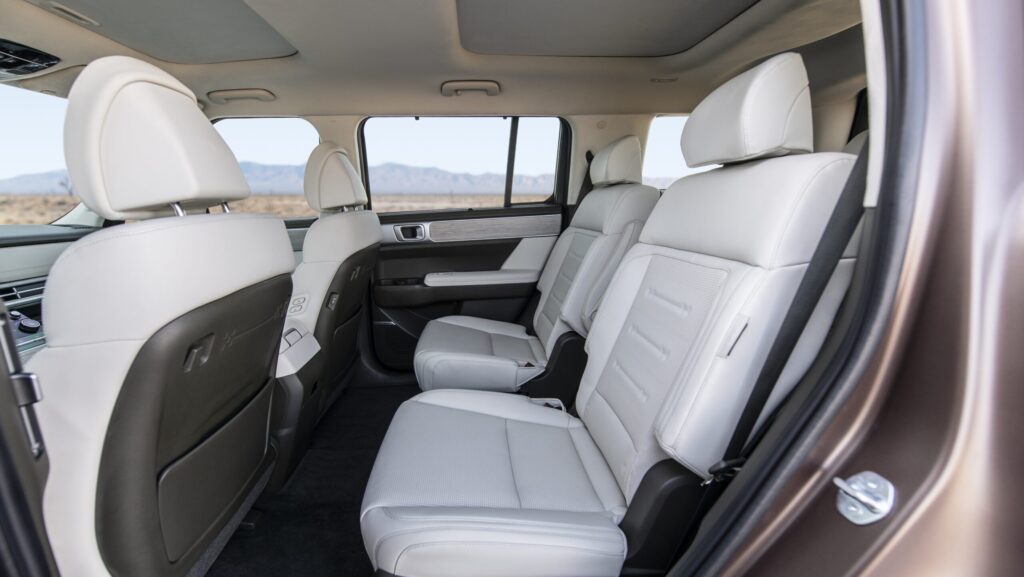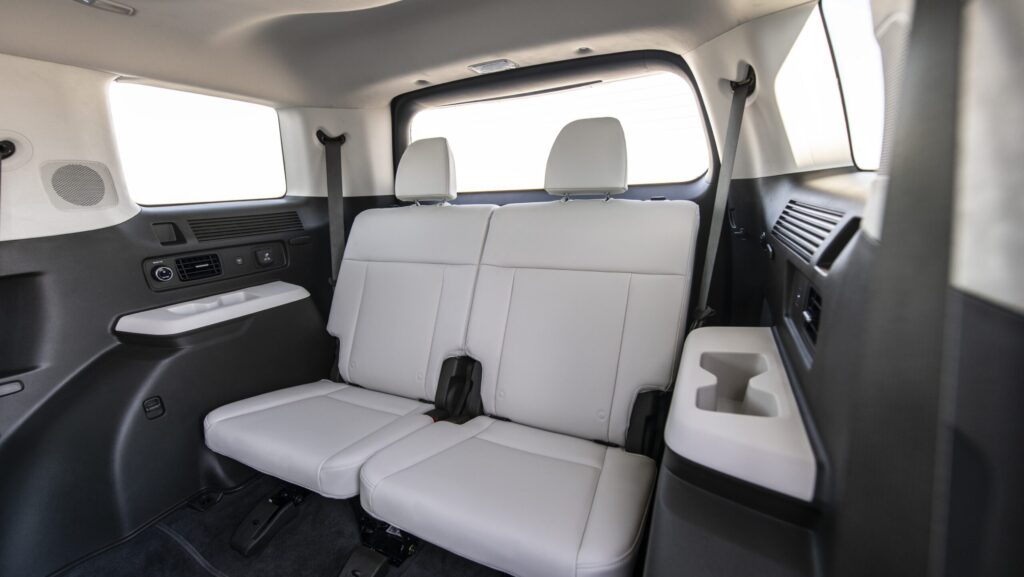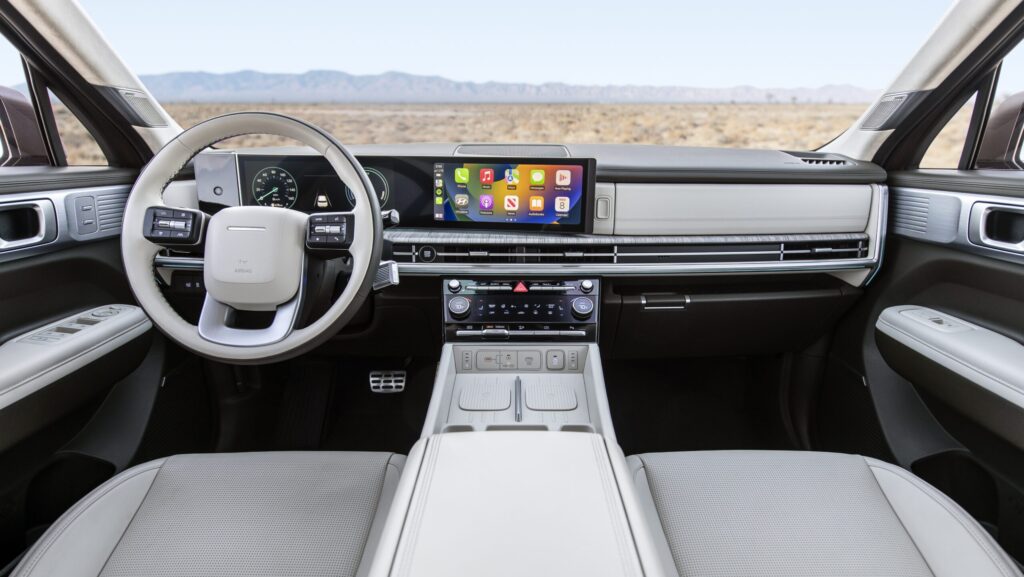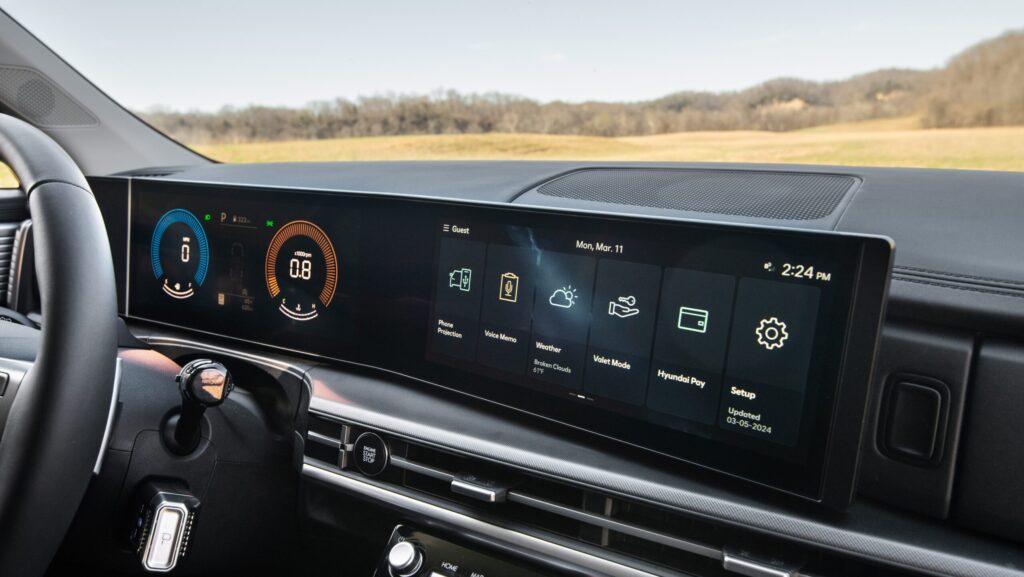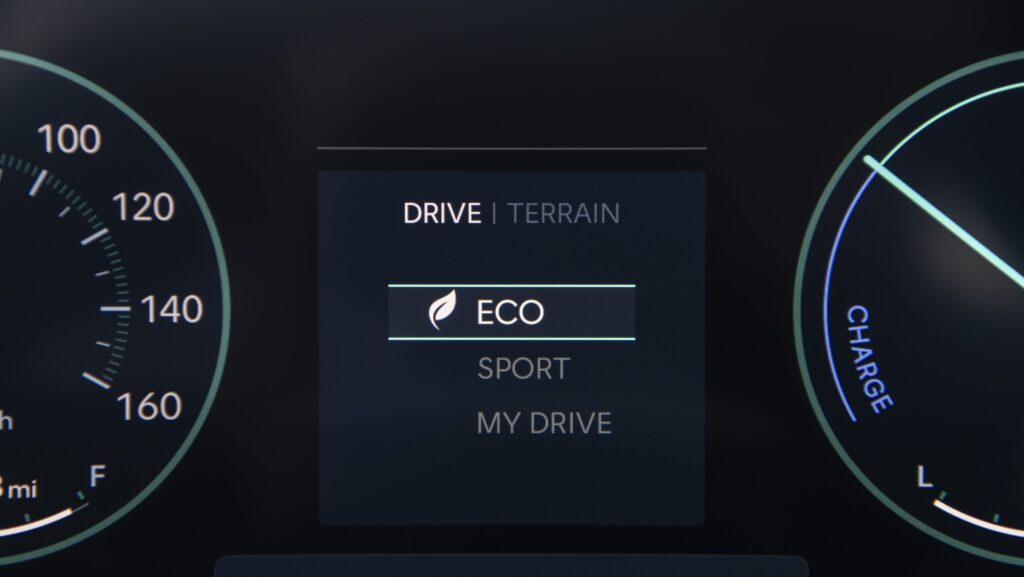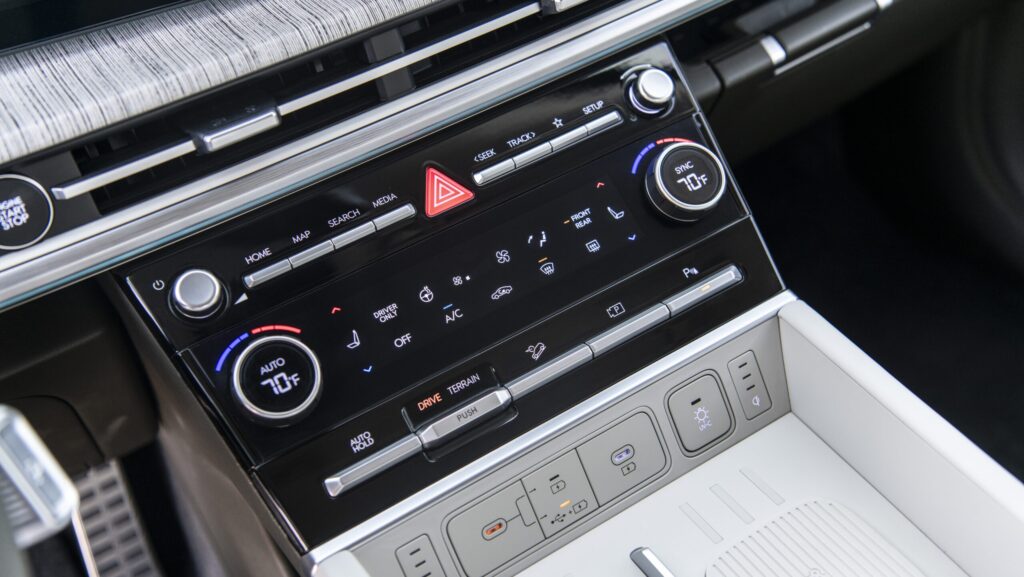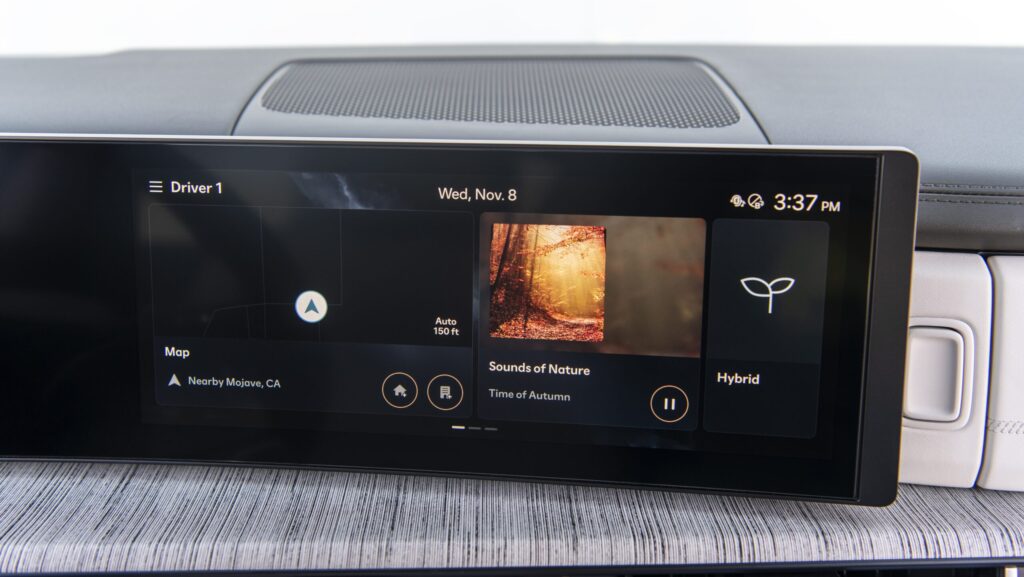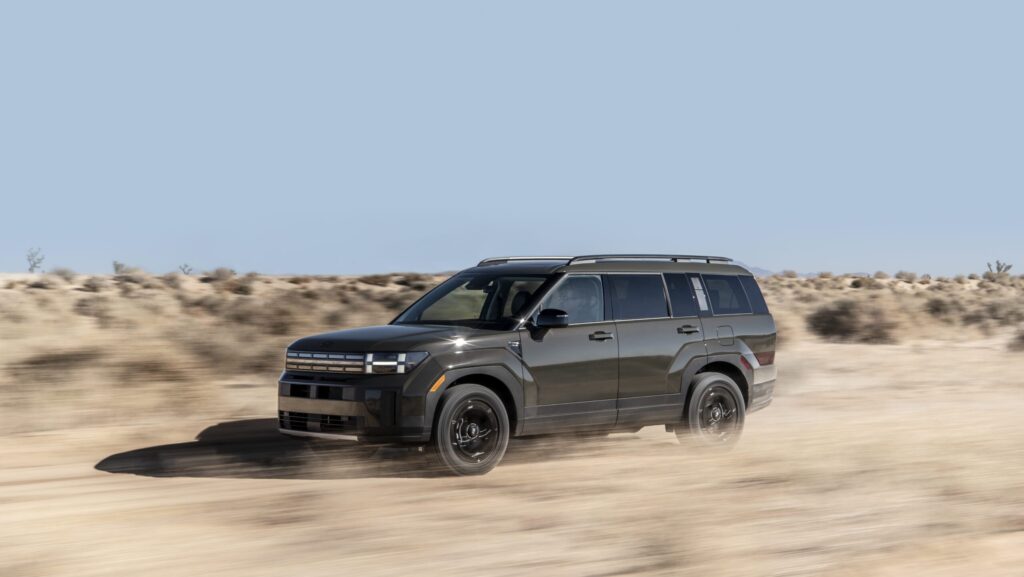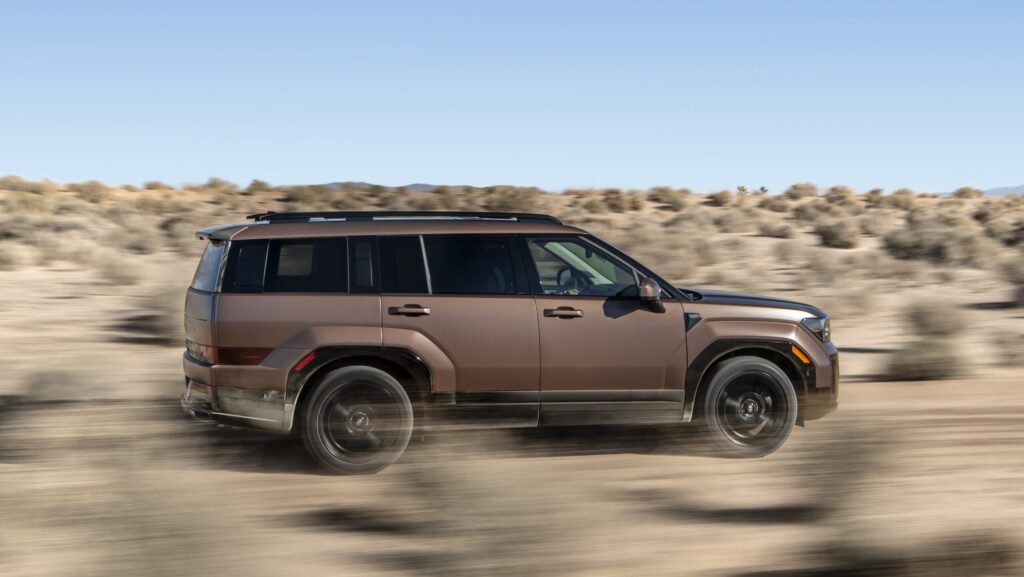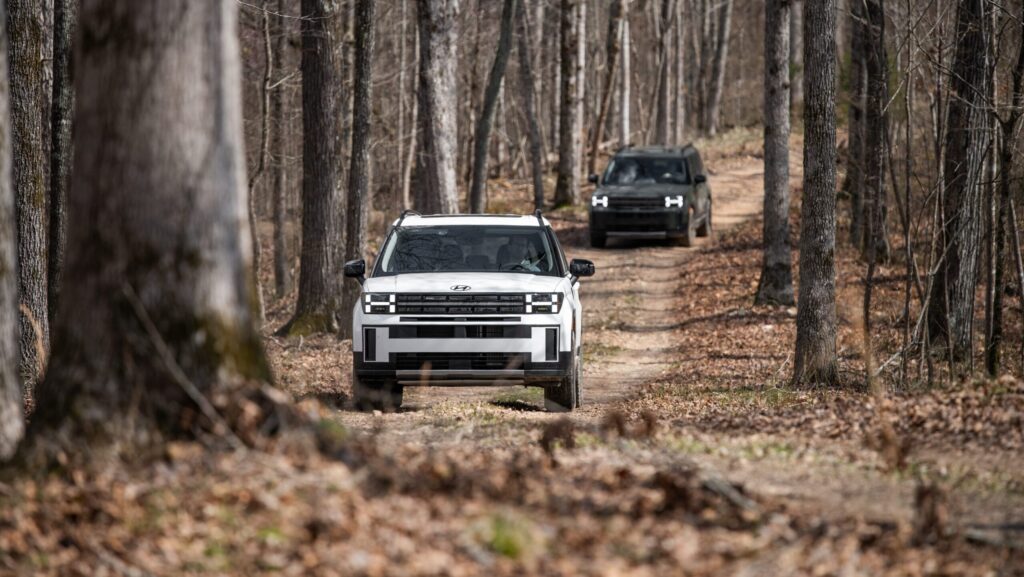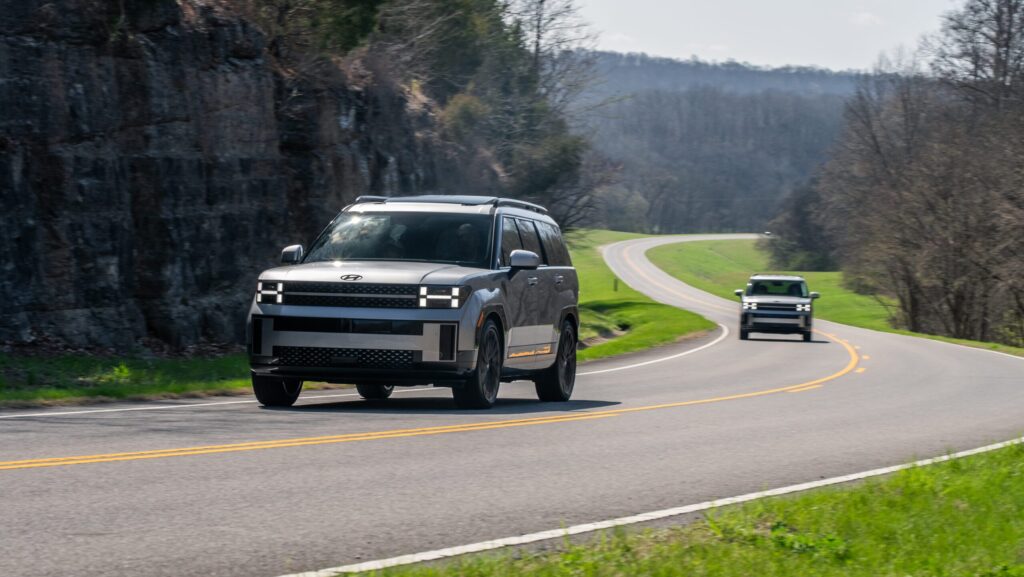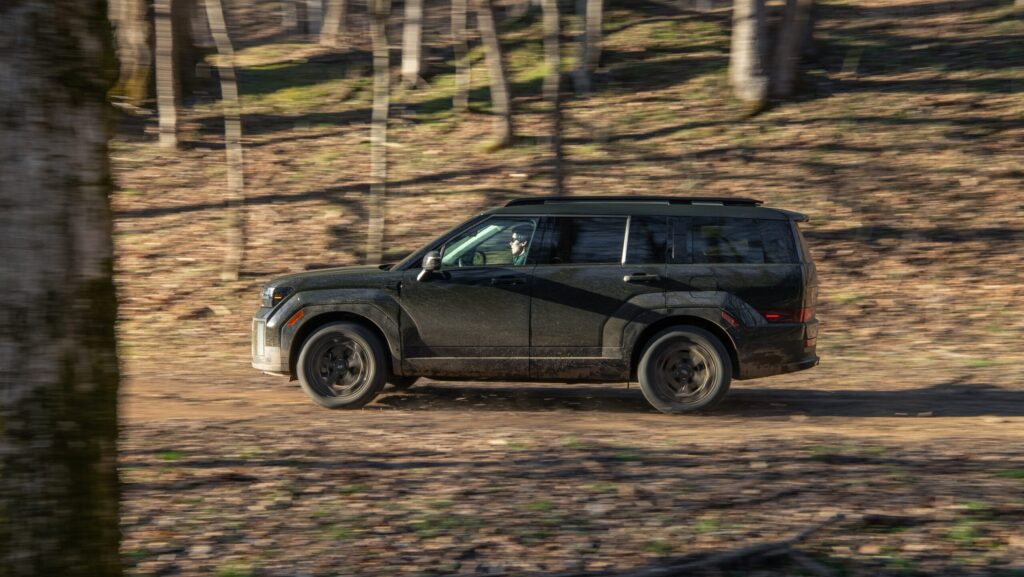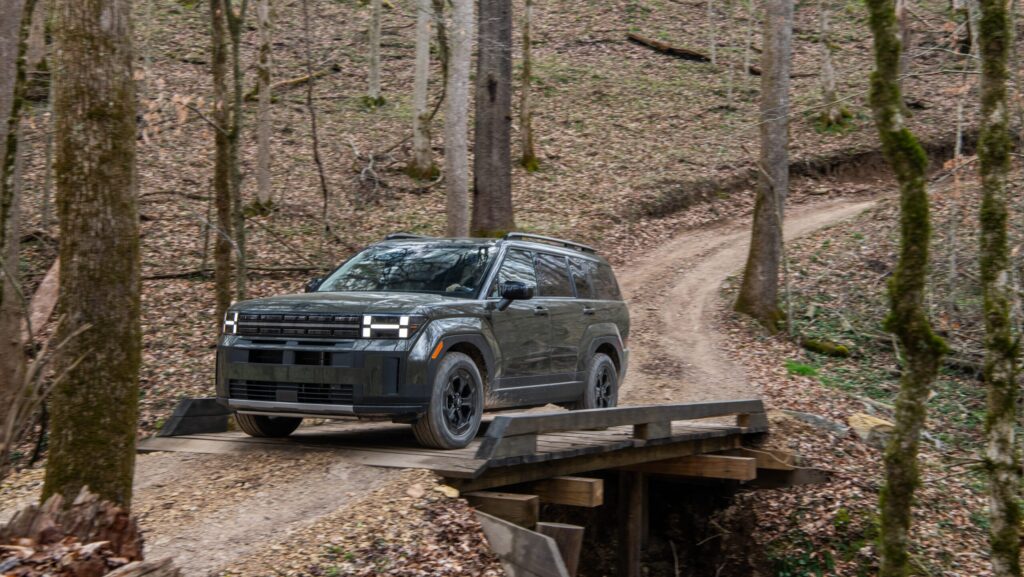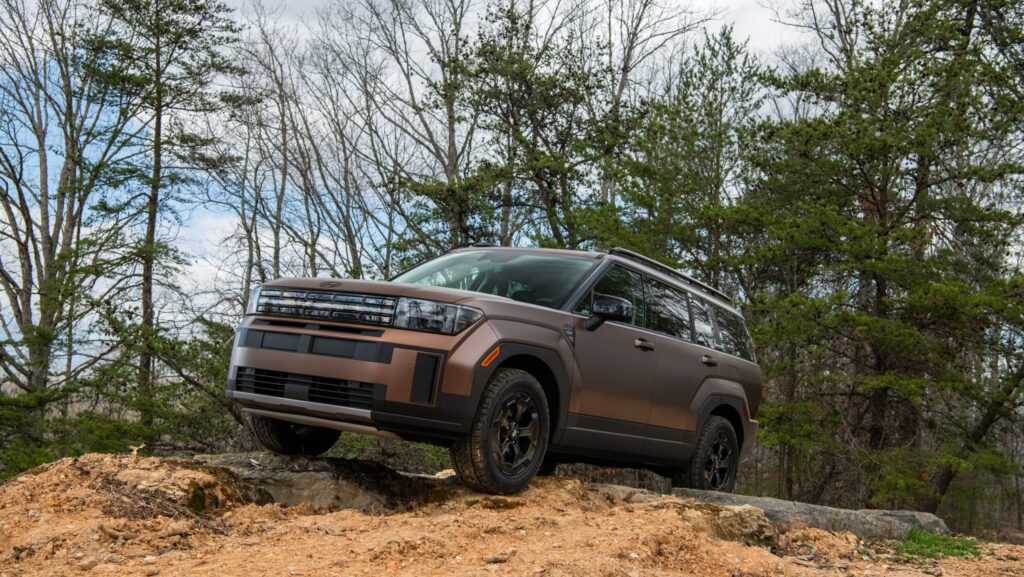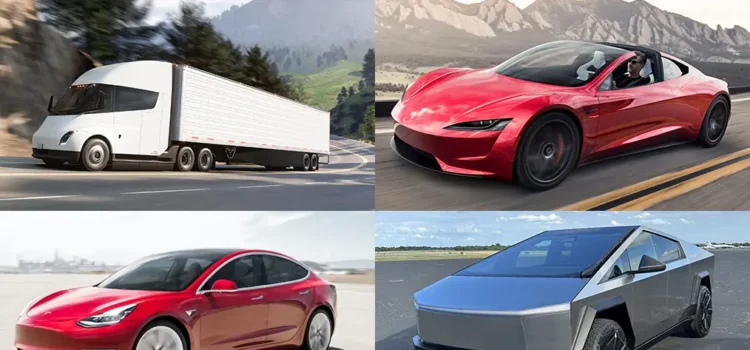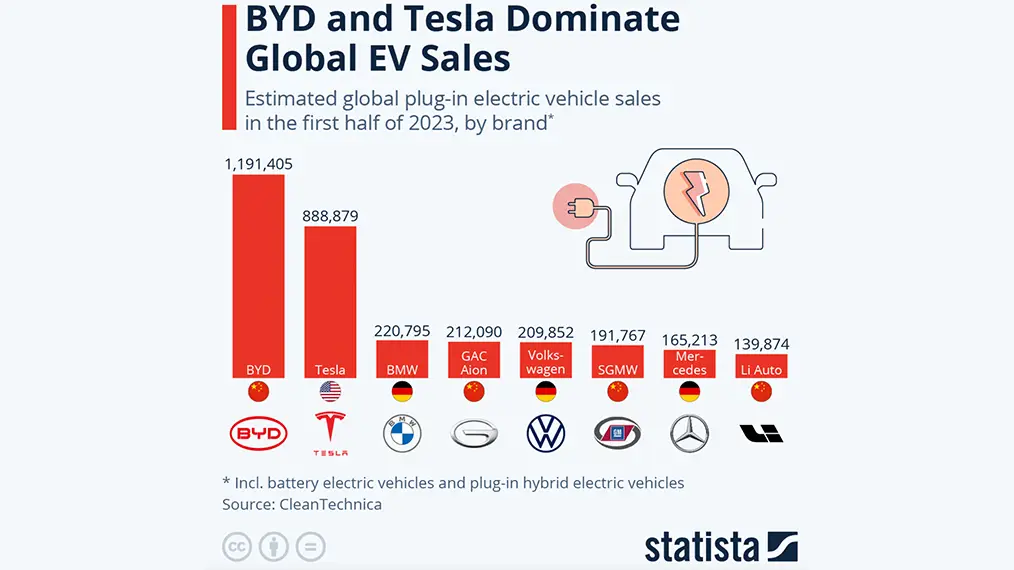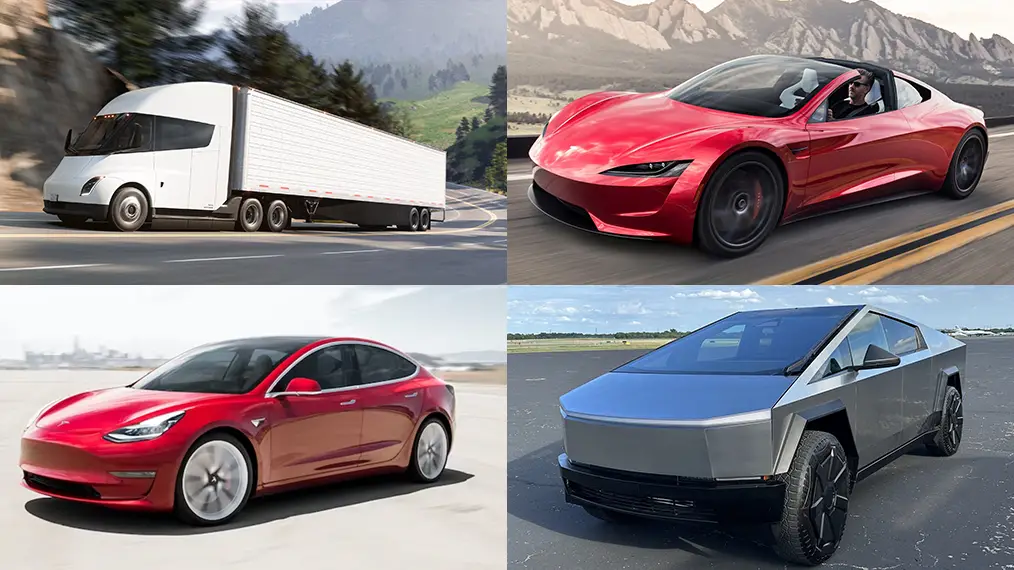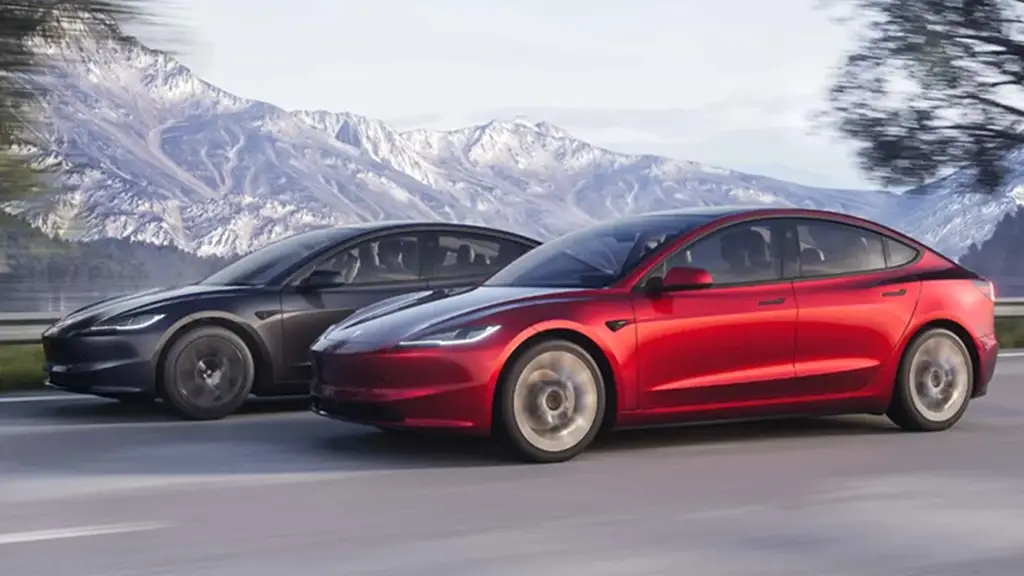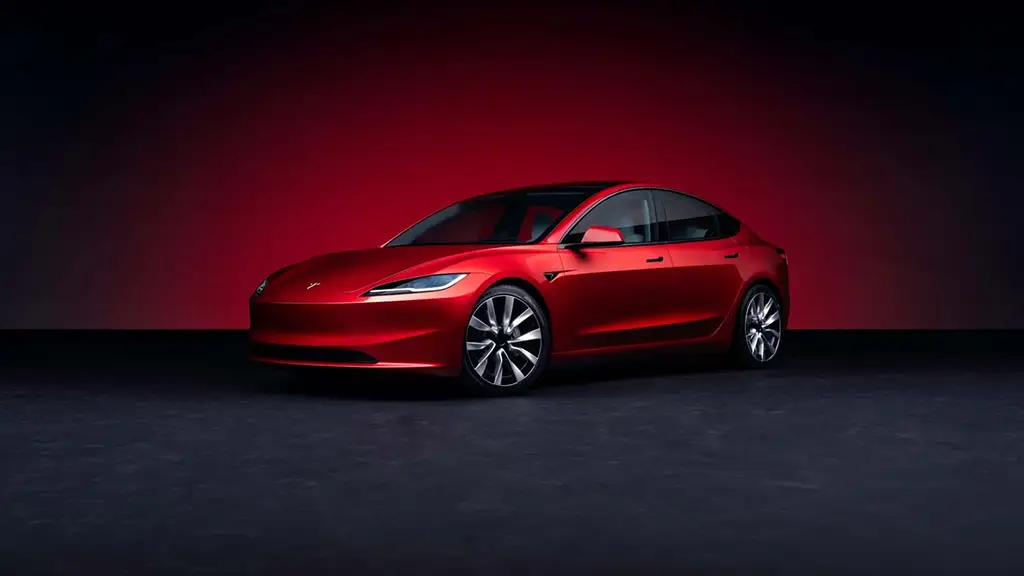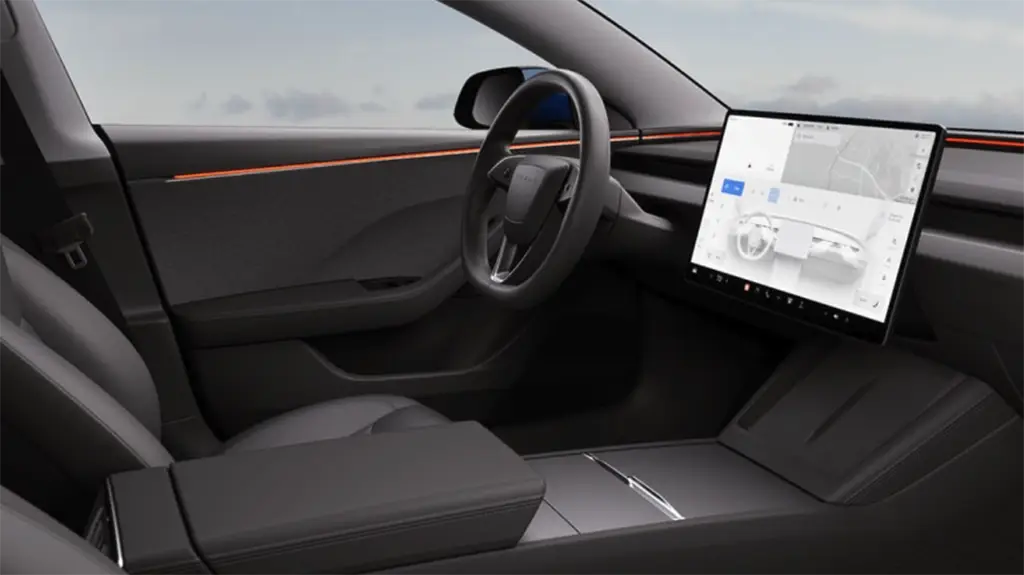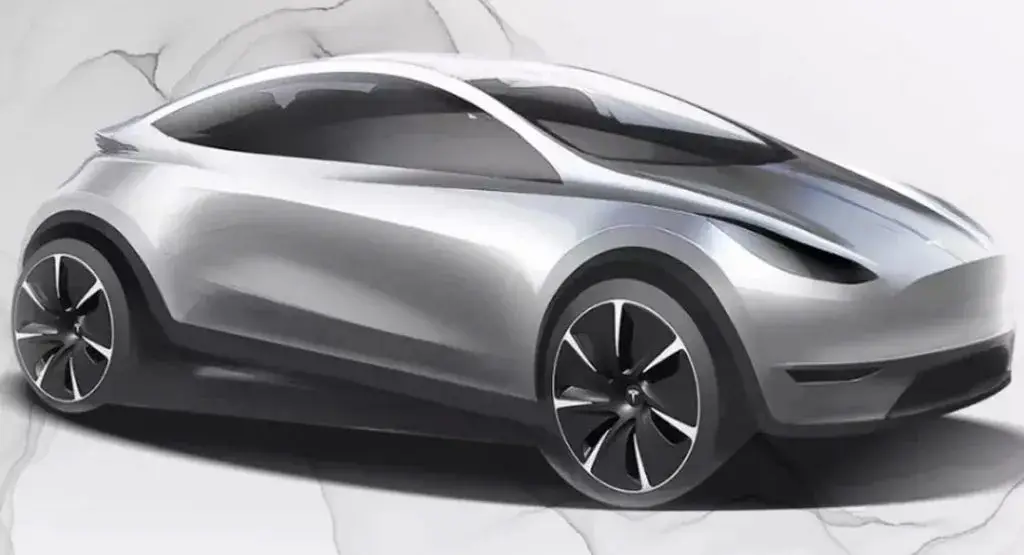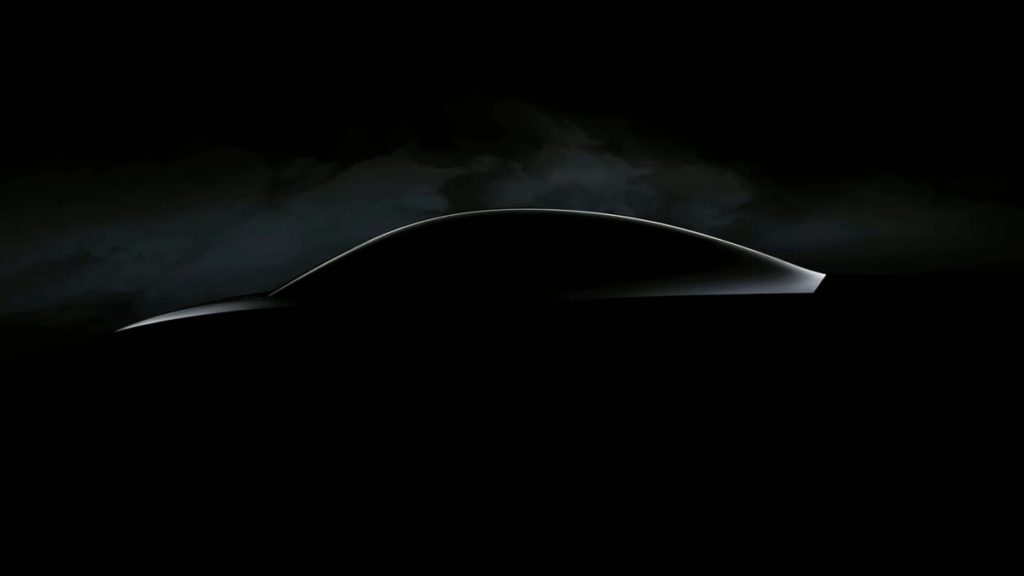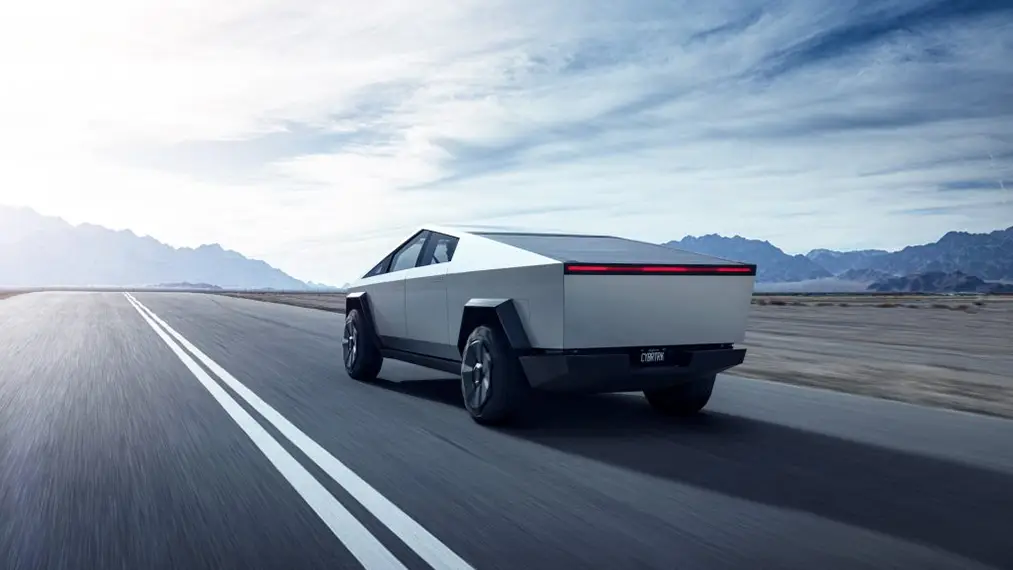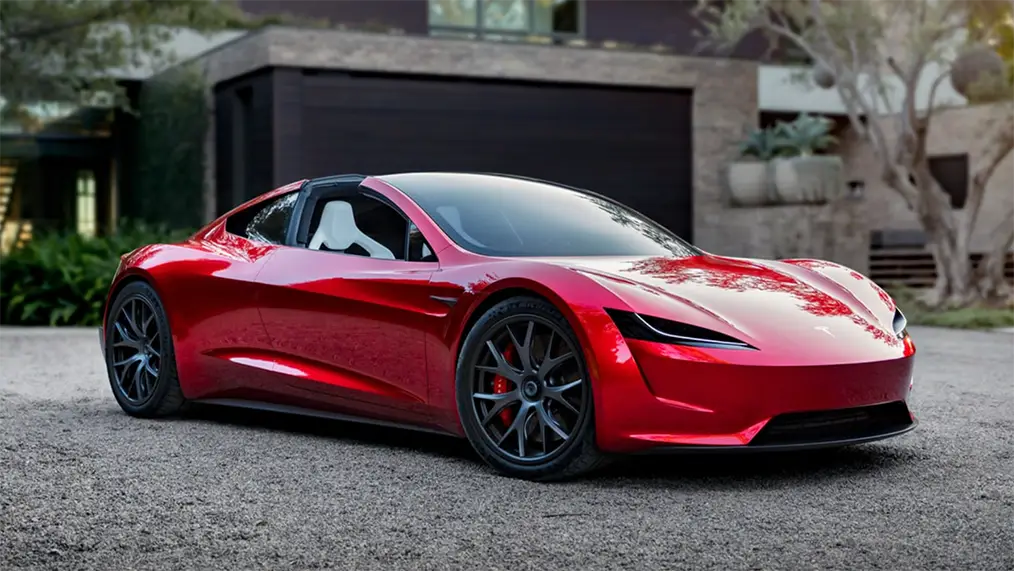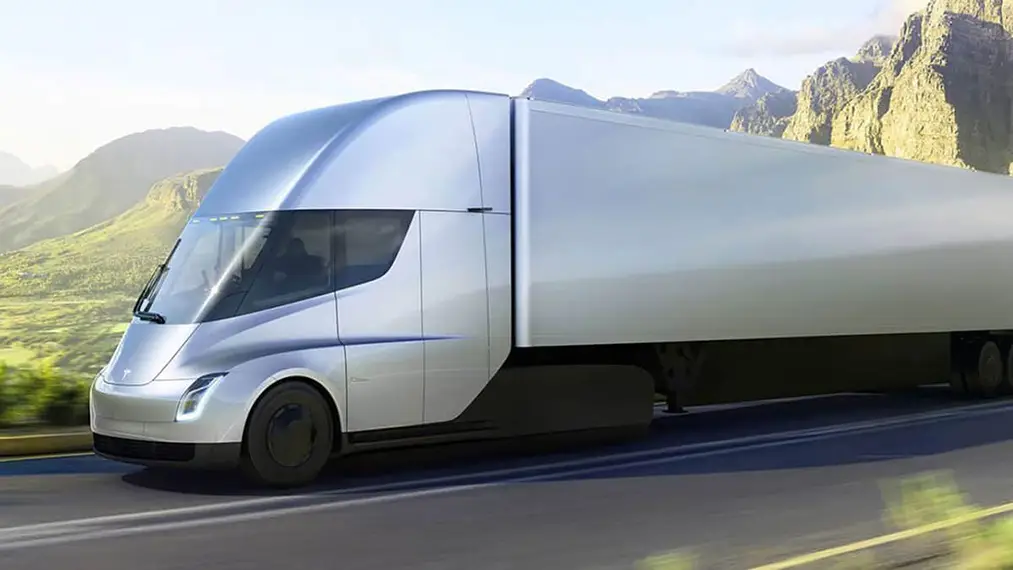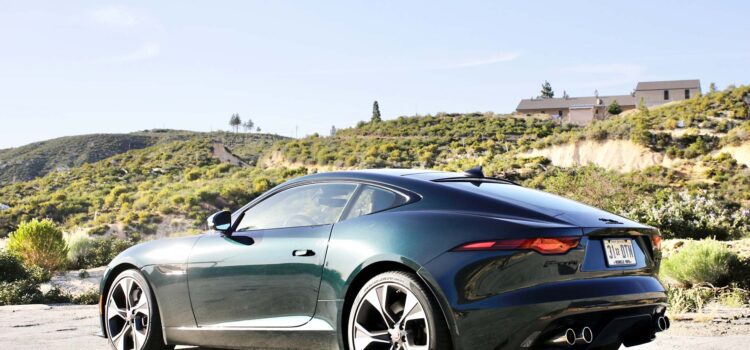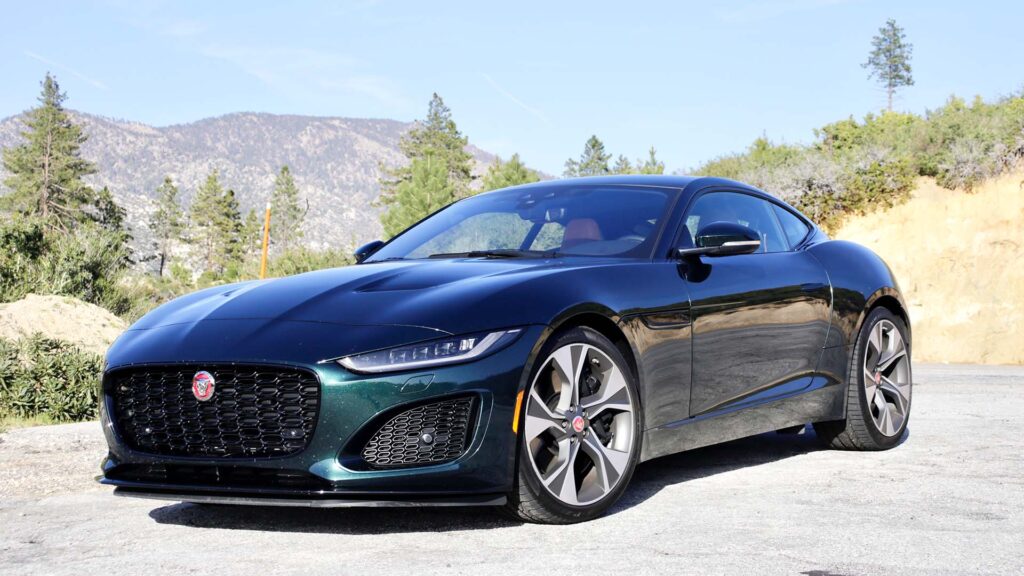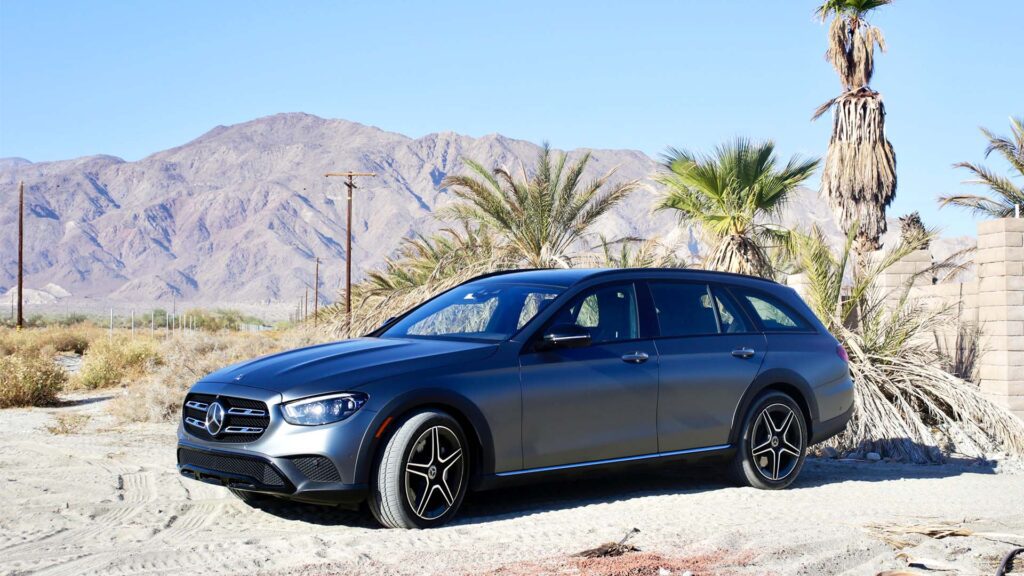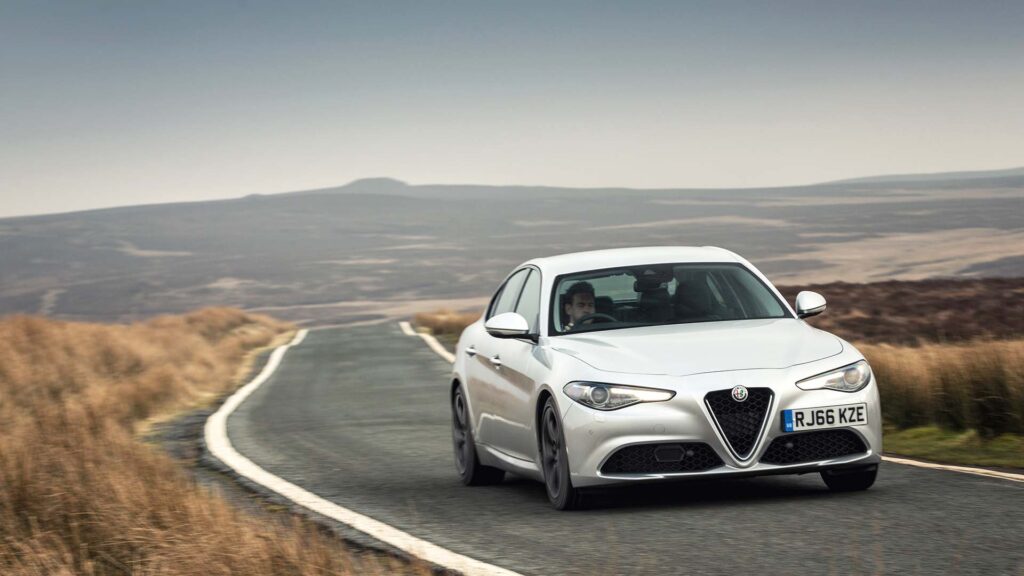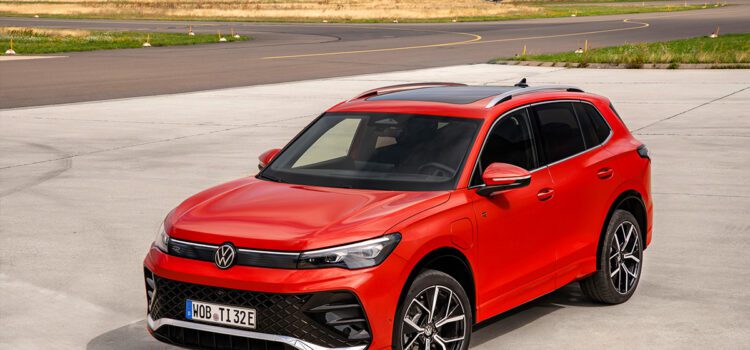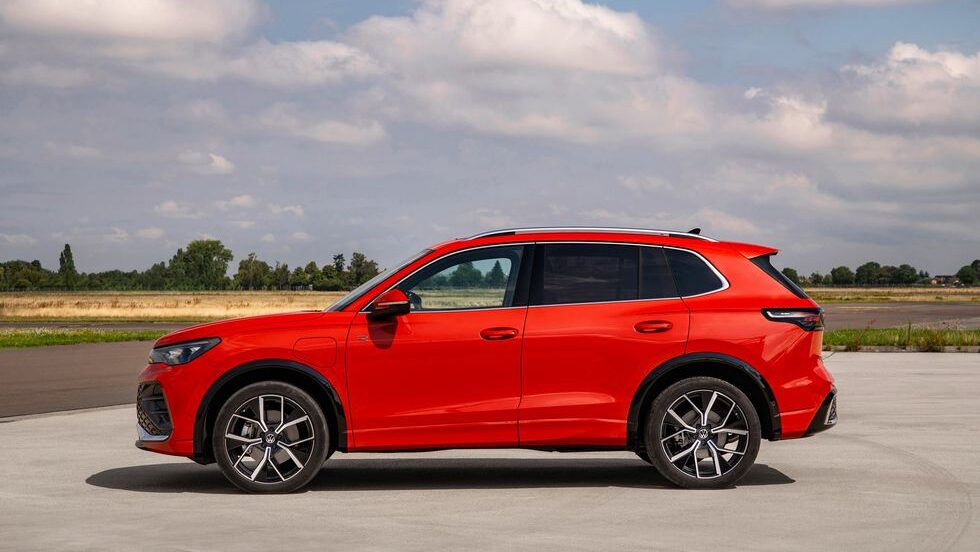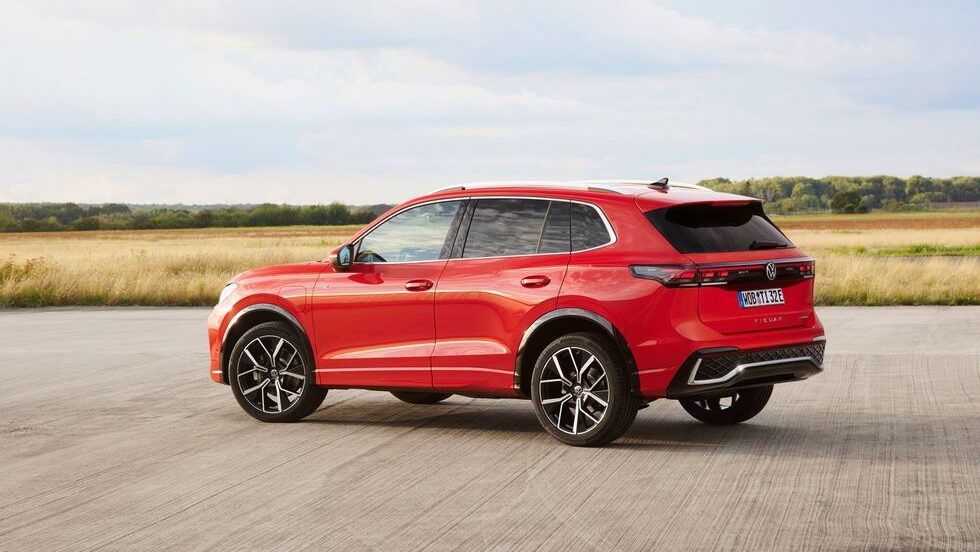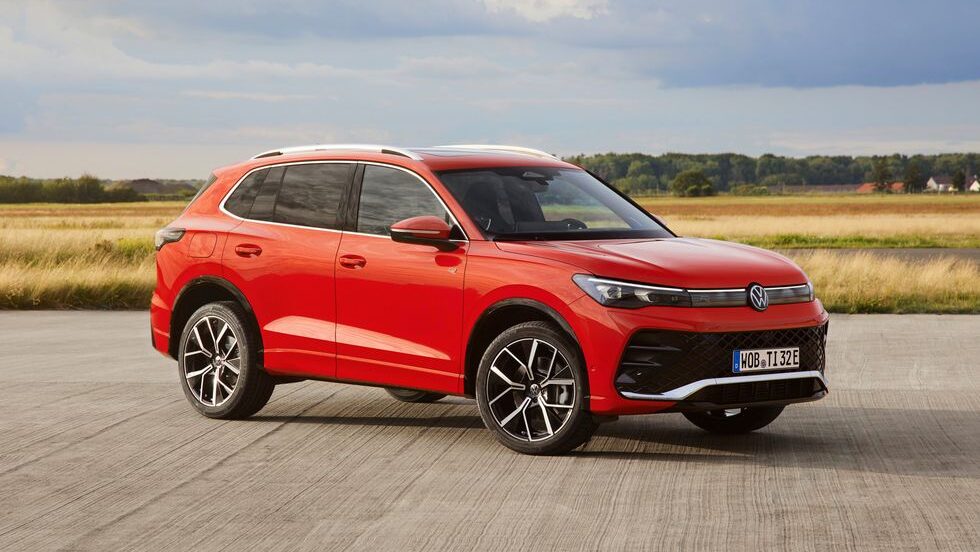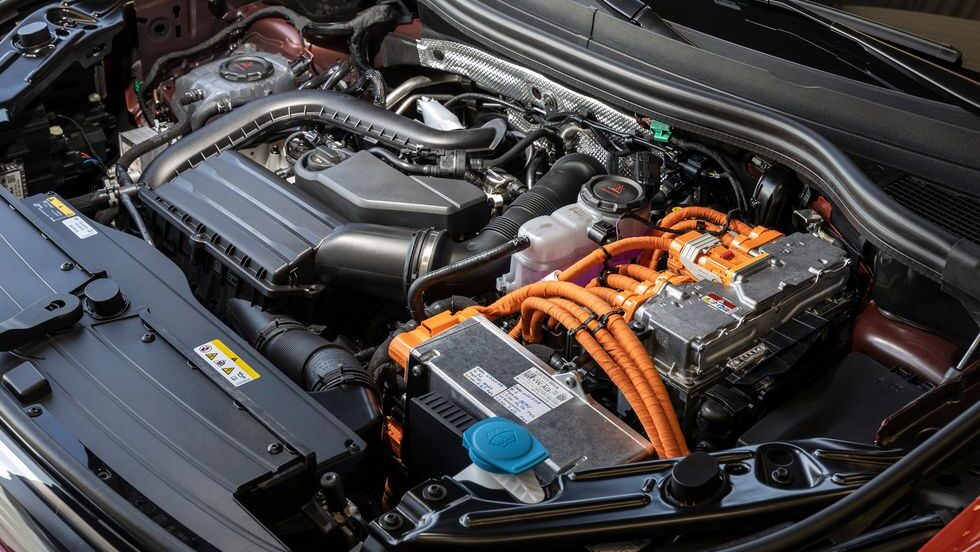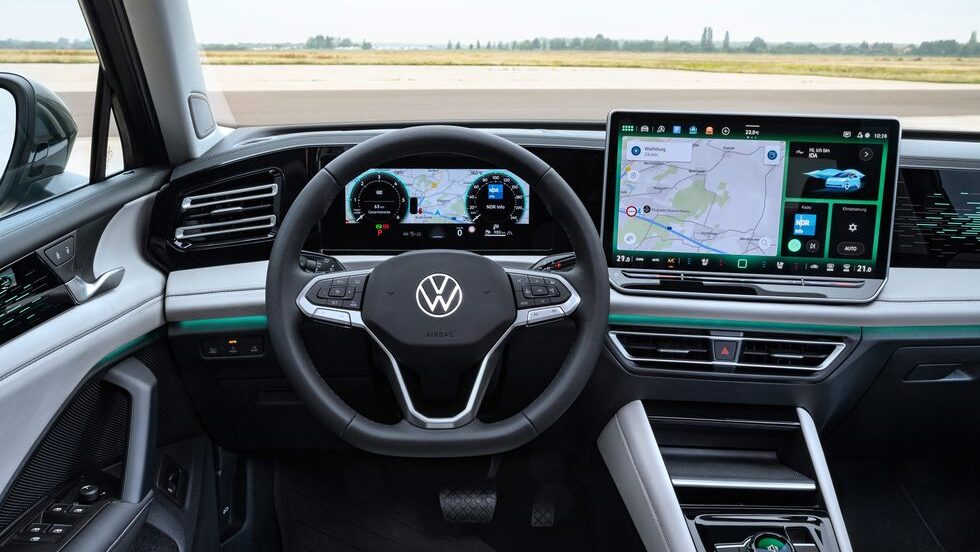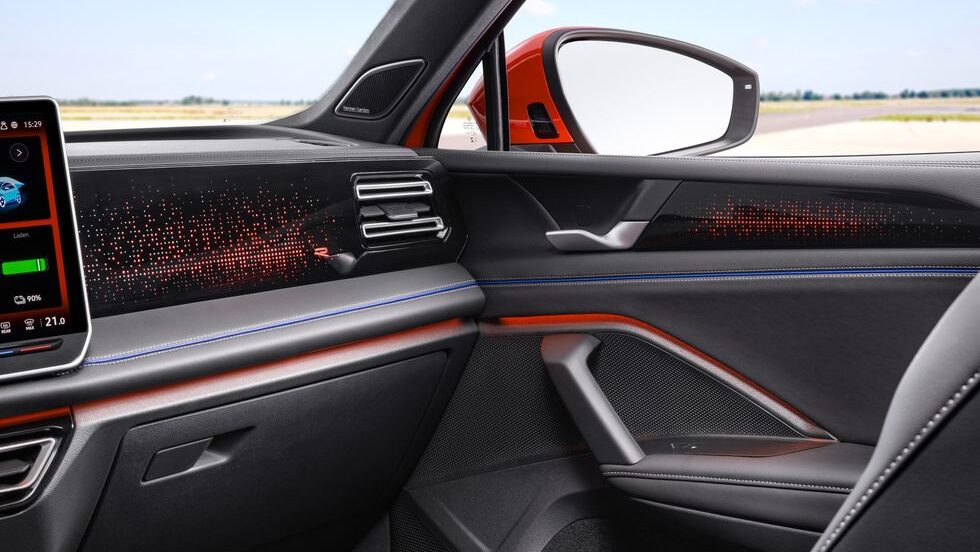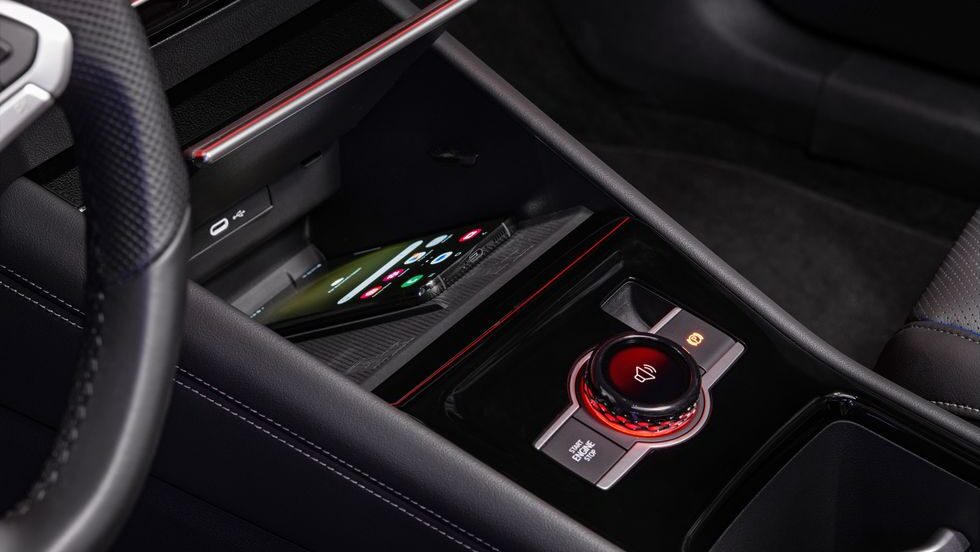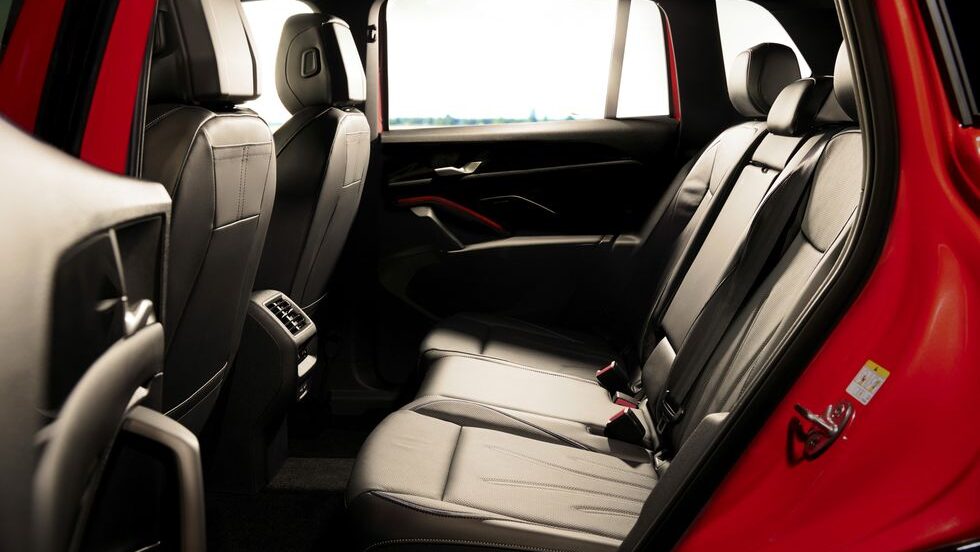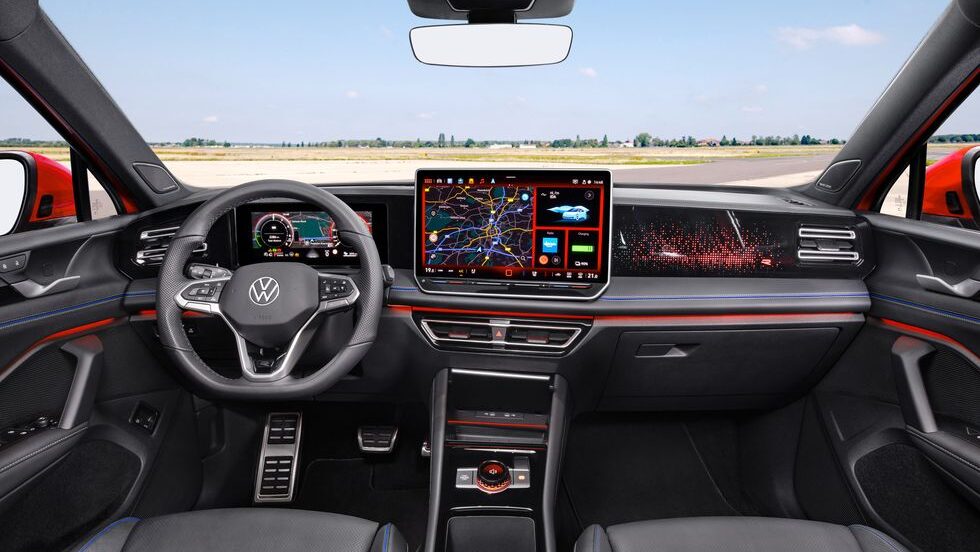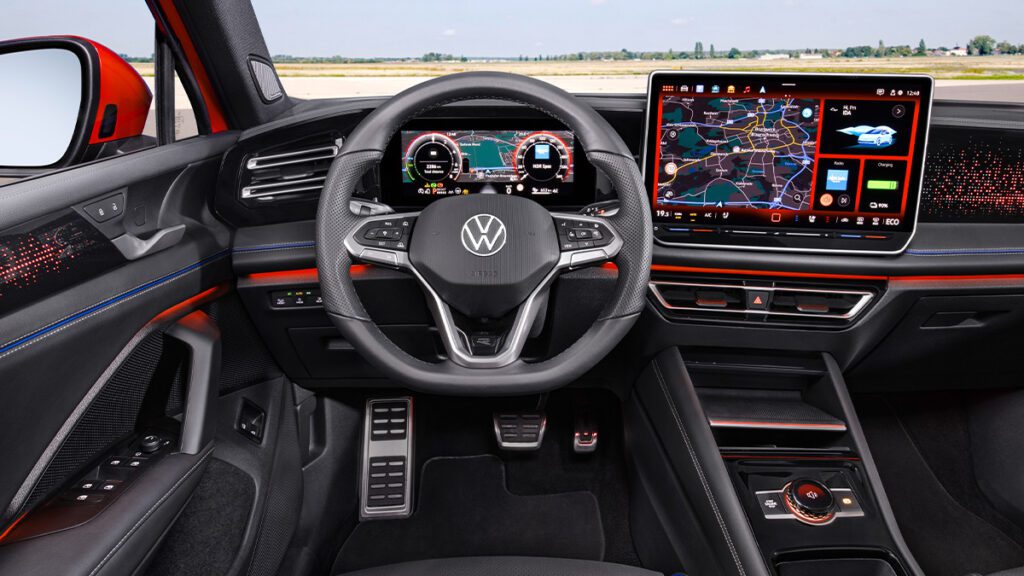2024 Genesis G90 review: Korea’s twincharged flagship strikes hard at German rivals
Korean automakers are on a roll, and atop its hierarchy sits Genesis building damn fine cars. They were nothing too groundbreaking in the beginning, but they were effective, well-built, and reasonably affordable in the face of rivals from the West or the Land of the Rising Sun. But one day, Mr. John Hyundai himself decided to do something remarkable. He wanted Korean cars to not only be good. He wanted them to be great. Greater than great. Exceptional, if you would. Hyundai Motor Group would break Genesis off into a standalone luxury marque, creating a new battalion with which the peninsula’s auto industry could charge into war, and the Genesis G90 would be the flagship to wave its winged crest high for the world to see.
The Genesis G90 is now a model year into its second generation, rocking Art Deco styling, a newfound taste for interior decor, and an optional mild hybrid twincharged V6 like our tester. But is it all enough to lure in the eclectic crowd of executives, influencers, and Malibu divorcees?
Skip to section:
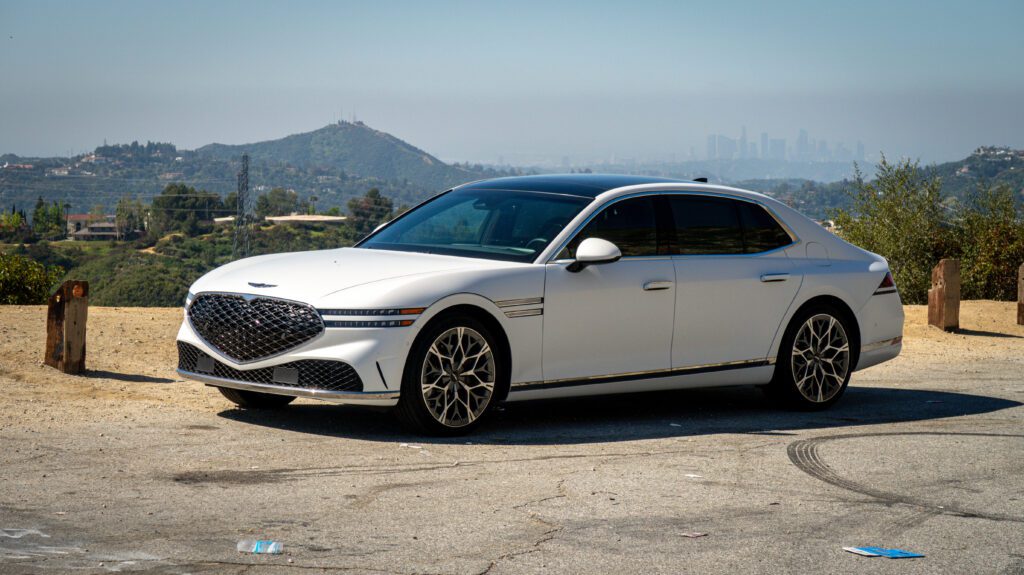
Price and specs
Key takeaways from the G90 are as follows: Its price starts above the Lexus LS but is on par with the less-equipped BMW 7-Series and far below any Mercedes S-Class. More on that in our pricing breakdown. What sets the Genesis apart is its unique twincharged powertrain, which pairs a 48-volt mild hybrid system to a twin-turbocharged and electrically supercharged 3.5-liter V6 that’s good for 409 horsepower and 405 pound-feet at a diesel-like 1,300 rpm. Some motorcycles and tuner cars idle higher than that.
| Base price: | $99,500 |
| As-tested price: | $102,250 |
| Engine: | 3.5-liter supercharged twin-turbocharged V6 + 48V mild hybrid |
| Transmission: | 8-speed automatic |
| Drivetrain: | All-wheel drive |
| Power: | 409 horsepower @ 5,800 rpm |
| Torque: | 405 pound-feet @ 1,300 rpm |
| Redline: | N/A |
| Weight: | 5,150 pounds |
| Zero-to-60 mph: | 5.1 seconds |
| ¼-mile: | 13.7 seconds @ 104 mph |
| MPG: | 17 city, 24 highway, 20 combined |
| Observed MPG: | 22.7 MPG |
| Fuel Capacity: | 19.3 gallons |
G90 exterior design
“Land yacht” is as cliche as can be when describing these barges, but a yacht is certainly what the G90 is in both styling and presence. From its massive diamond grille to its split headlights that wrap around the bumper and extend past the wheel arch to become turn signals, everything about the G90 exudes luxury as if to (politely) scream to the world that Korean automakers are back with a vengeance. It’s not dressed as sleek or elegant as an S-Class, nor is it built as angry and athletic as a Lexus LS, but its fit occupies a lovely middle ground between the two sides of the fence.
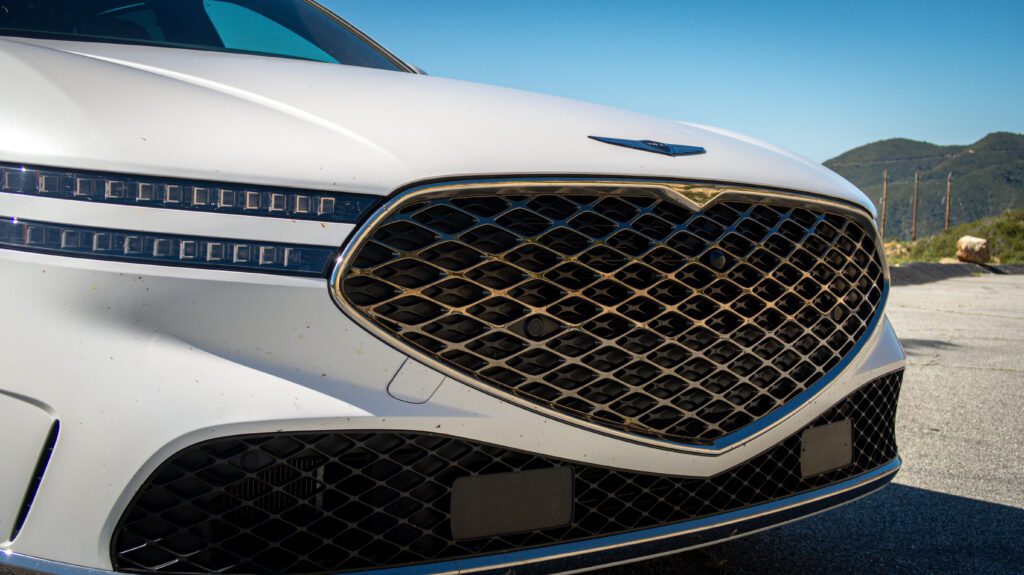
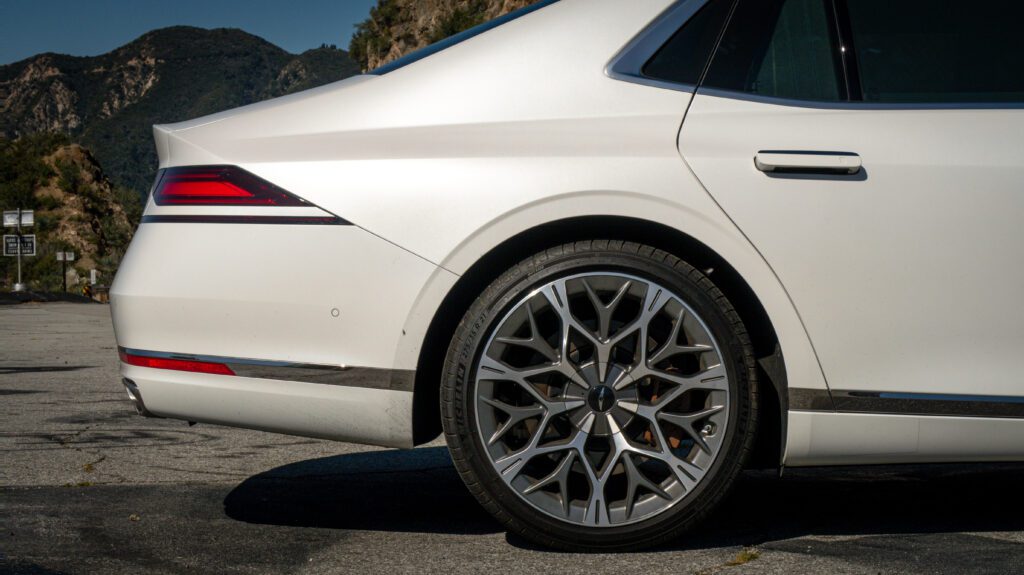
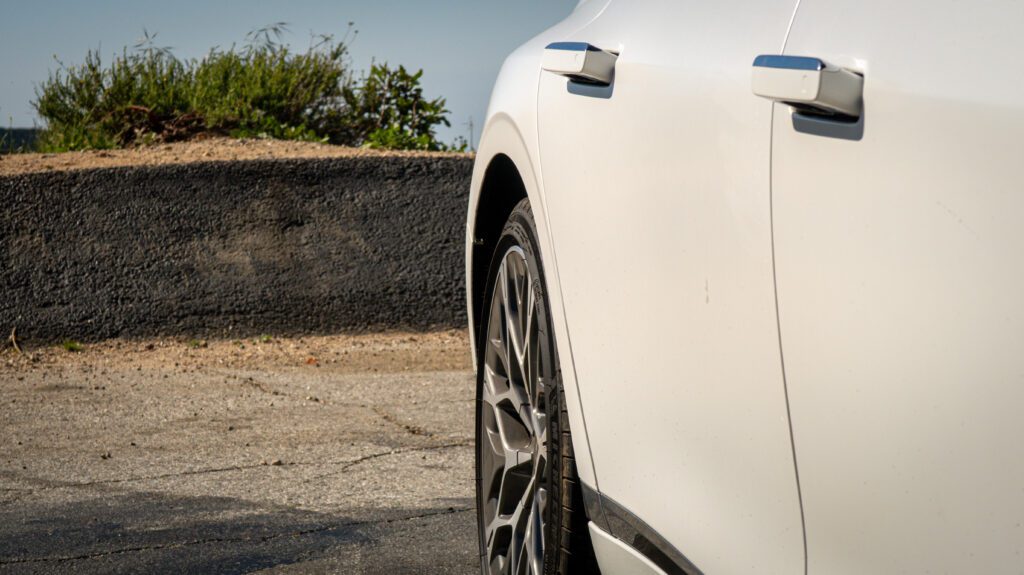
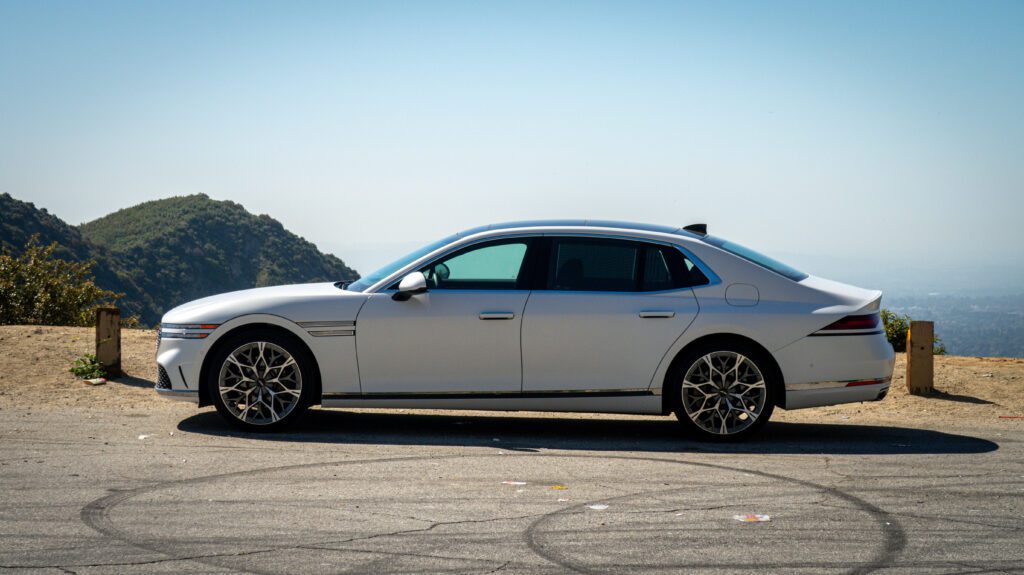
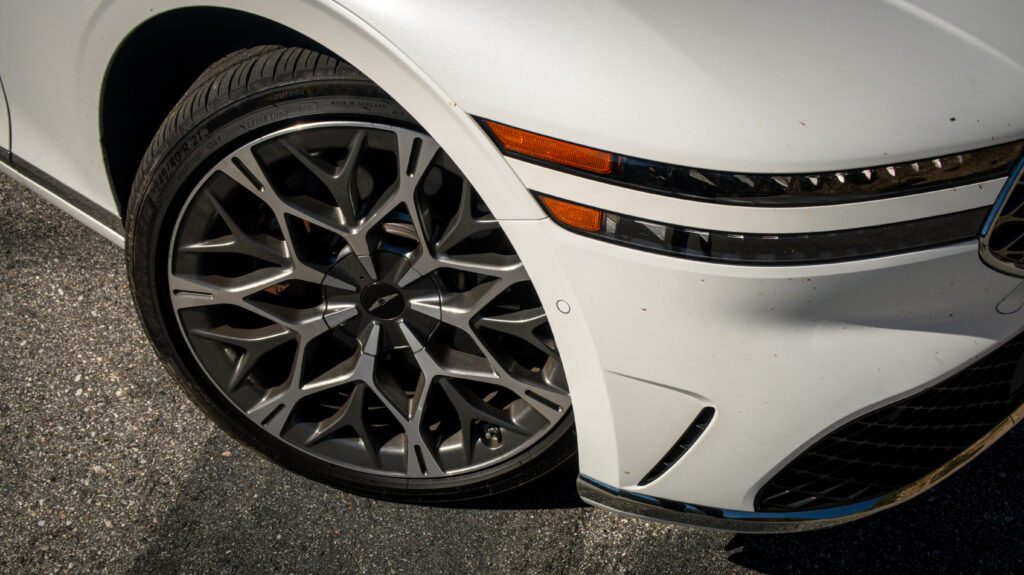
The Verbier White matte paint is certainly a looker, even if it’s not to my taste. But I can see the influencers and executives who dare to be different lapping this paint option up like the long-awaited cure to their matte black affliction. There’s just a hint of sparkle in the matte that helps it pop, even in low-light environments, and it compliments the e-SC-exclusive 21-inch snowflake-esque wheels beautifully.
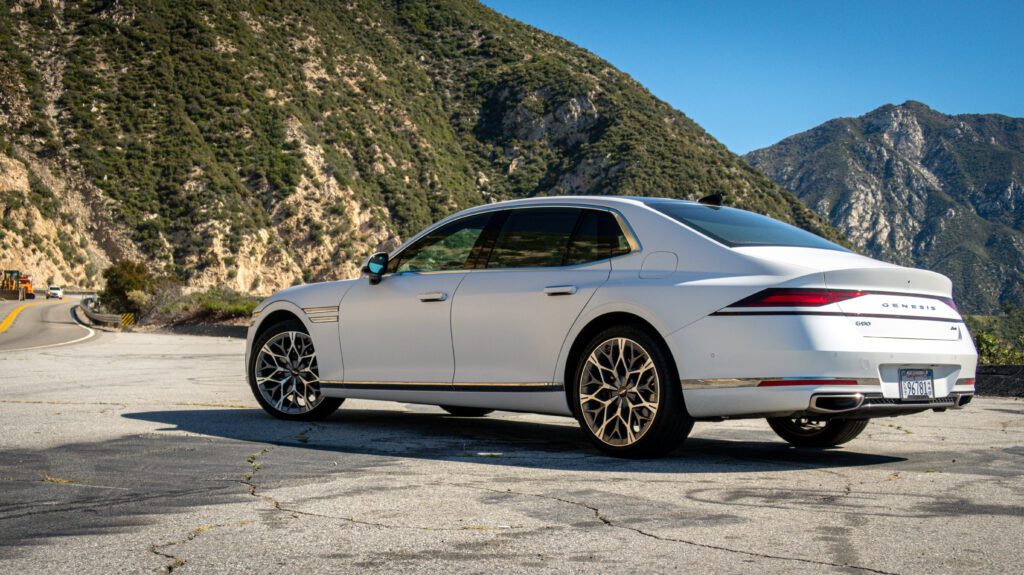
| What’s hot? | – Silky twincharged V6 makes power across the whole rev band – Cruiseliner ride quality… most of the time – Won’t completely embarrass itself during sporty driving – Banger lineup of smooth, effective driver assists – Outstanding build quality and styling make you forget it was ever a Hyundai – Undeniable value versus Germans |
G90 pricing breakdown
I should get this out of the way and say that while the G90 is a remarkable value as far as flagship executive sedans go, the Lexus LS has it beat by several thousand dollars. The G90, which used to hover in the low $70,000 range in its prior generation, now kisses $90,000. My e-SC tester with the more potent engine and a splash more standard pazazz starts at $99,500.
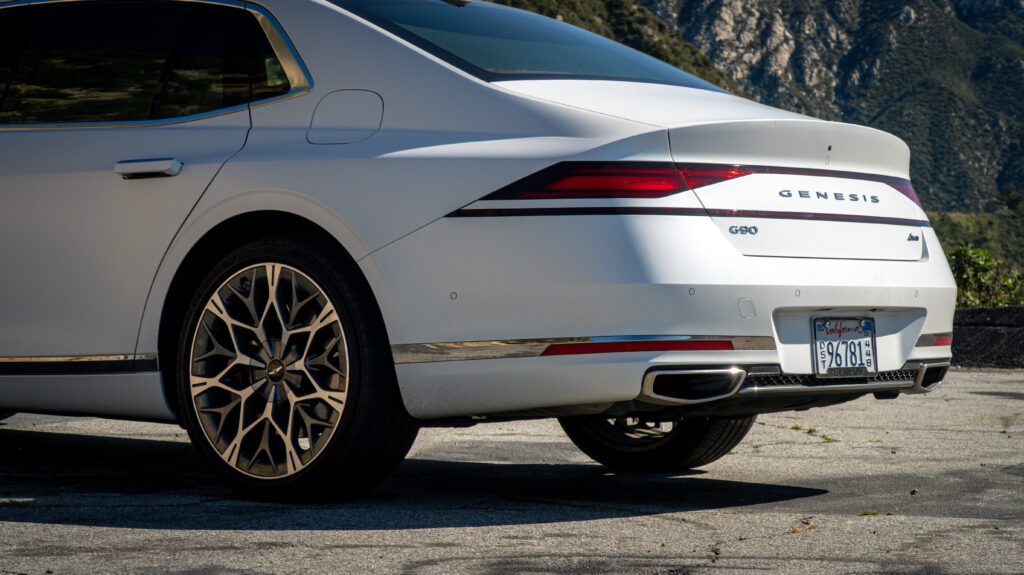
Thankfully, speccing a G90, like many other Hyundai Motor Group products, is a straightforward task. What colors do you want? What engine do you want? The e-SC adds multi-chamber air suspension managing the motions for 21-inch wheels wrapped in Michelin Primacy Tour all-season tires, power reclining climate-controlled rear seats with massage function, and a killer Bang & Olufsen Premier surround sound system. Beyond that, our Genesis ticked the $1,500 box for matte Verbier White, and a $1,250 destination fee brought the total out to $102,250.
Yes, a loaded Lexus LS 500 hovers comfortably in the $90,000 range, but one can argue the design of the Genesis is deserving of its upscale premium. Also, remember that the awkwardly-styled 7-Series starts for around the same money as a base G90 e-SC with less power and standard equipment, while a bottom-rung, optionless S-Class starts at over $117,000.
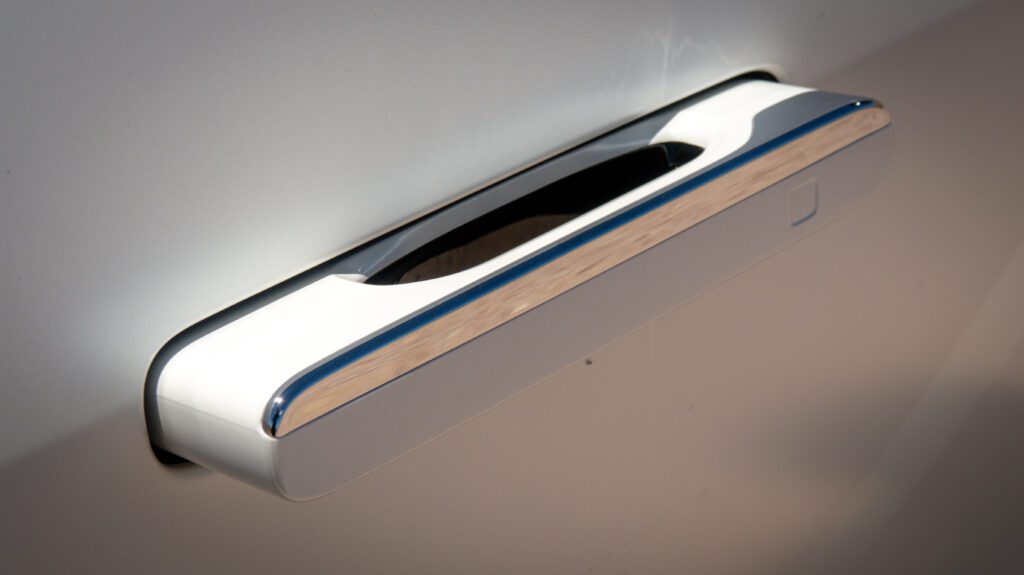

G90 interior and tech
It’s a Genesis, which means expect an interior that, in terms of layout and design, stands tall with the best in the biz. There’s little in the way of imitation, too. The G90 is proudly just itself, with multi-color ambient lighting and forged carbon trim accented with strips of metal brightwork to contrast the Bordeaux Brown interior upholstery.
The digital gauge cluster is vaguely Hyundai but with a simplified tach-speedo combo to make room for things like safety system readouts, navigation, and a large widget for things like weather forecasts and all-wheel drive power distribution. Akin to the Ioniq 6 I drove less than a week prior sported the same suite of adaptive cruise, lane keep assist, eighty-quintillion cameras and parking sensors, and multiple levels of blind spot monitoring. Unlike the Ioniq 6, you could say the G90 now has four instead of three since the visual indicator in the gauge cluster can be displayed in the bright, legible HUD.
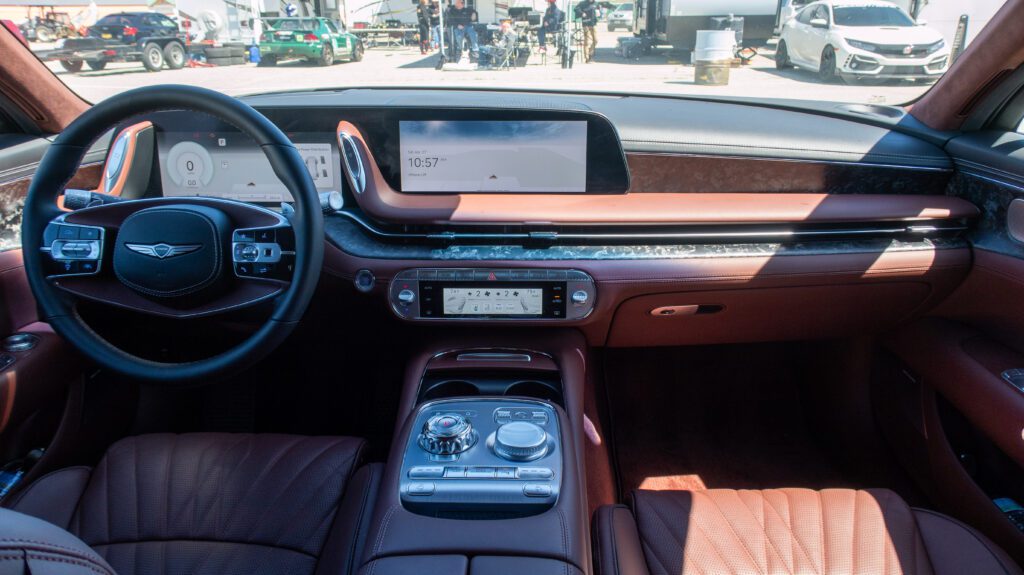
The top-shelf e-SC model also adds the aforementioned power massage seats in the rear, multi-chamber air suspension that can raise itself at the touch of a button, and an infinitely adjustable Bang & Olufsen Premier sound system. Rear seat occupants are also treated to their own control panel for climate, infotainment, seat massage, and operation of the power sunshades because sweating on the ride to the airport is for feral savages who could only swing a G70.
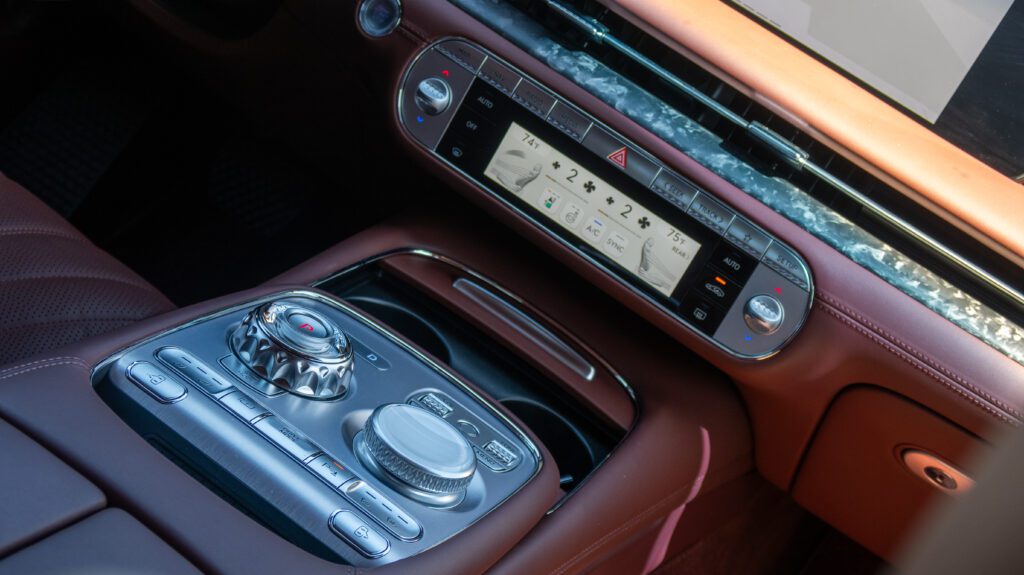
Korea’s flagship is a sublime coastline cruiser
To those looking for a value-packed deal in land yachting your way up to Santa Barbara and back down to Manhattan Beach, the G90 makes one hell of a case for itself. In the twisties snaking through the Angeles Forest, the G90 didn’t totally embarrassing itself. In Sport mode, the transmission swaps its silken lethargy for some eagerness without making shifts too snappy. It’s appropriate for this kind of machine and that drive mode. Transmission tuning is smart enough, but paddle response is slow. Eh. Who cares in an executive sedan, right?
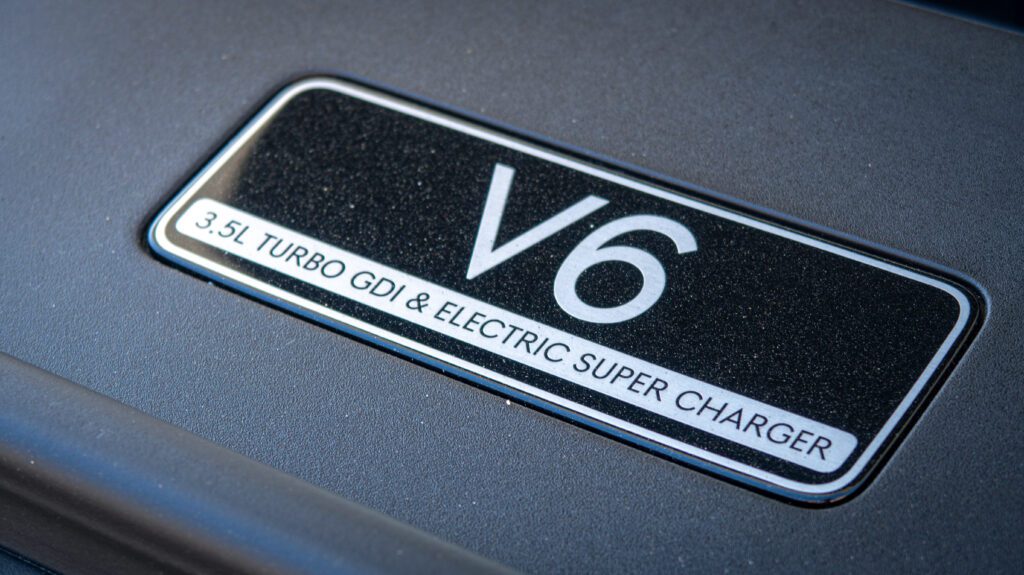
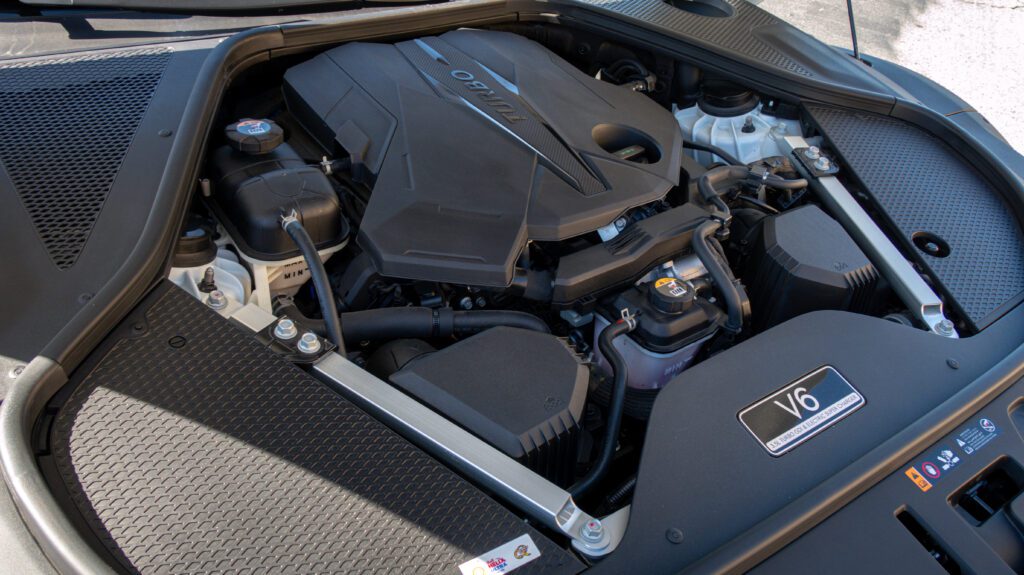
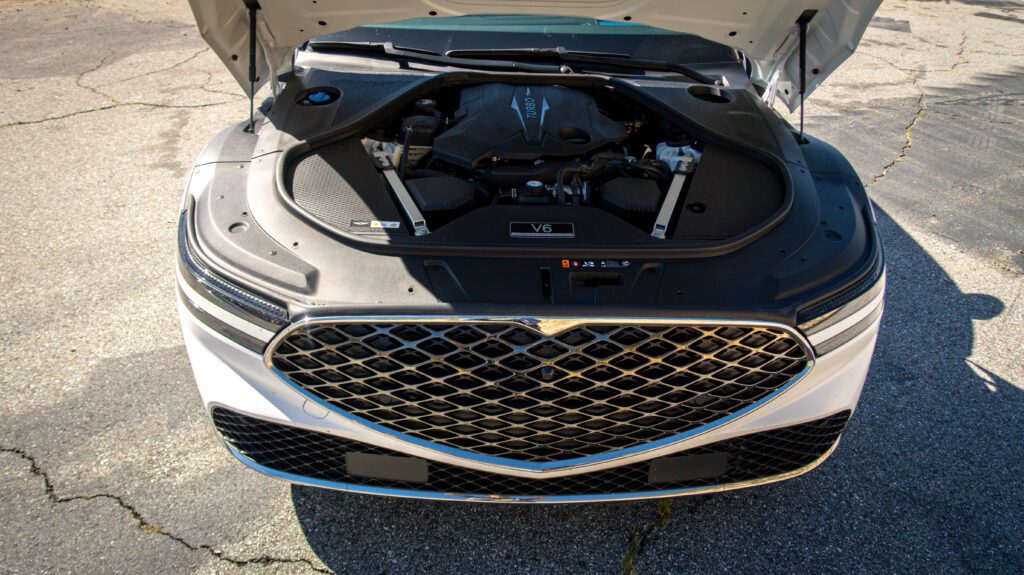
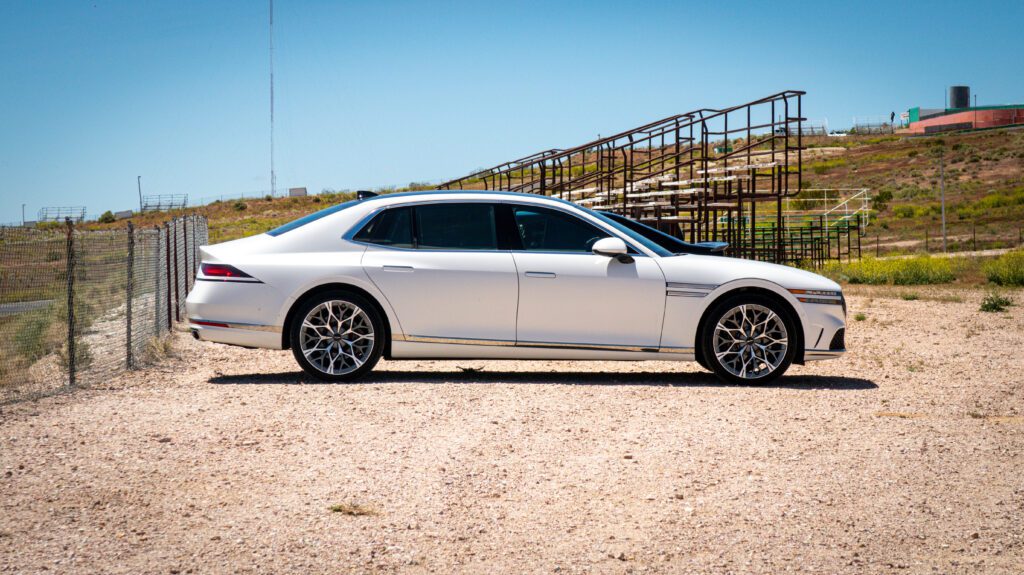
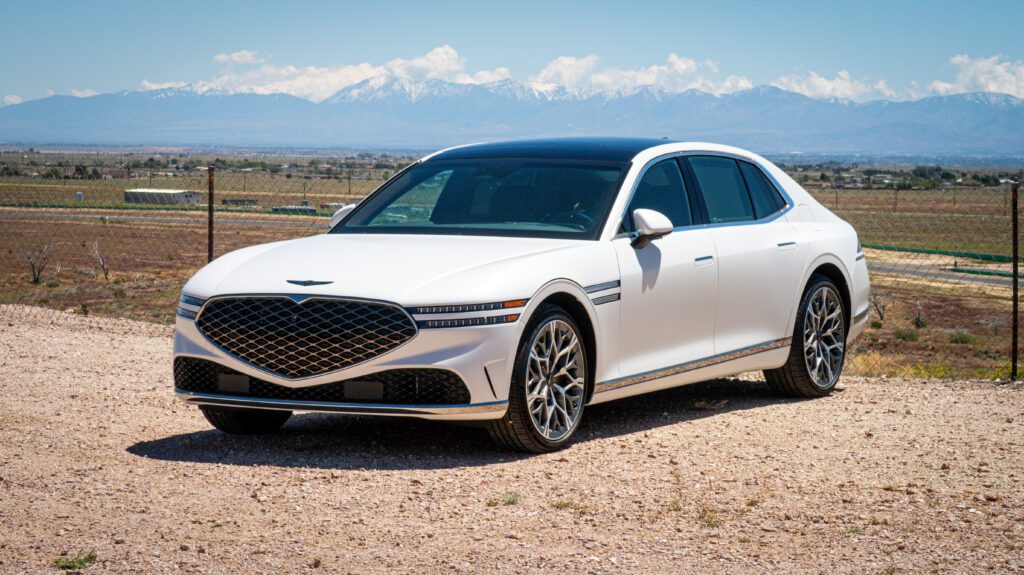
The air suspension stiffens to reduce roll without compromising ride quality. You can daily drive this in Sport without a second guess and still hold your own in the canyons despite the all-season tires. It’s no AMG, and it never will be. But if you’re a cheating snake seeing your “other partner” in Paldmale and have to skedaddle home to Glendale before the spouse notices you’re gone, you could bypass traffic via the canyons with this, no problem. There’s at least some facade of sportiness, which is plenty for most buyers.
Once the canyons yielded to wide-open freeways, the G90 came into its element. Leave it in Eco or Comfort, or even throw it in Chauffeur to optimize the experience for rear passengers, and let the air suspension soak up nearly every pothole, undulation, and rock. Let the B&O audio system immerse you in your favorite playlist (or Hyundai’s Sounds of Nature ASMR thing) with plenty of audiophile goodness that I’m not calibrated to fully appreciate. Let the massage seats rub your stress away while the three-level climate-controlled seats chill your bum to a frosty degree or sear it to a crisp.
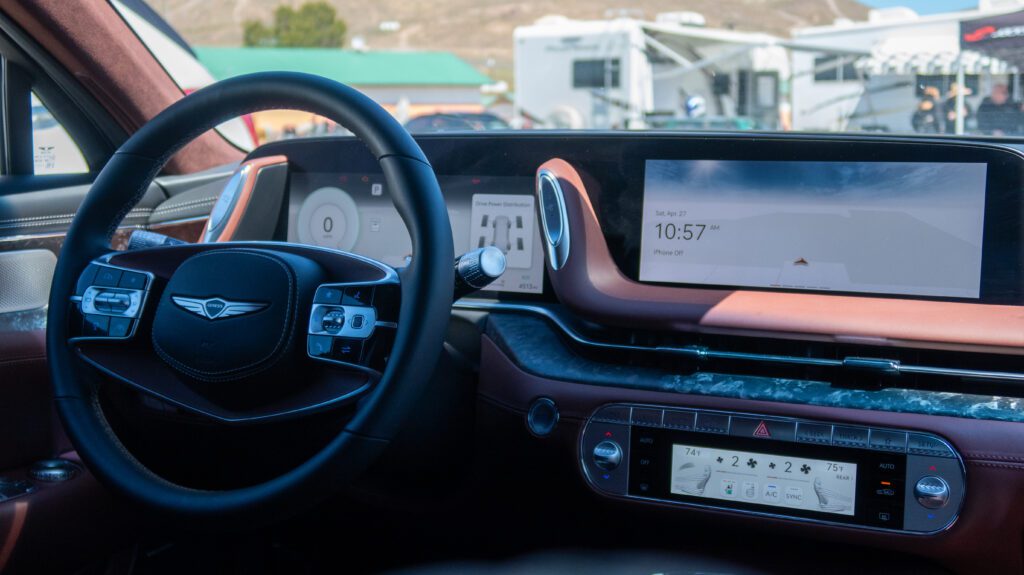
If this is what commuting can be, then I don’t want to go back. I didn’t want to go back. I just wanted to waft up and down the 405 and up the PCH all day long, with the adaptive cruise and lane keep assists working smoothly and effortlessly to help me captain this near-5,200-pound vessel for hours on end. I love my hhigh-strung sport cars, but who knew bottomless torque and a plush ride could be so intoxicating?
Upon arrival to Santa Barbara, the G90 proved to be a decent enough city car. There’s no defying its sheer length. It sticks out in some parking spots, and no, I wasn’t parked in a Compact space. But the suite of cameras, sensors, and the great expanse of glass that envelops you means obstacles don’t hide from you that easily. As an added plus, the turning radius is delightfully tight.
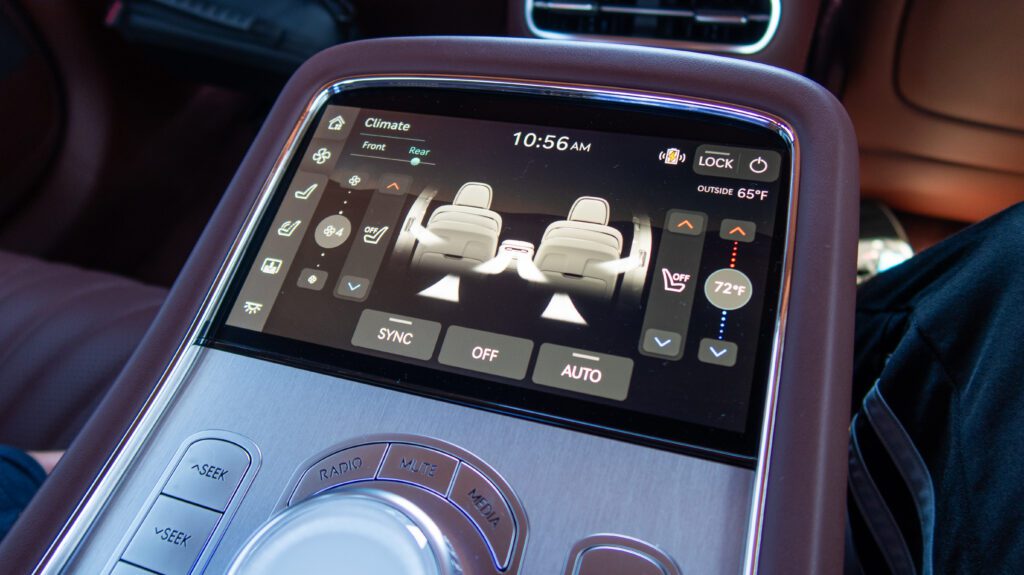
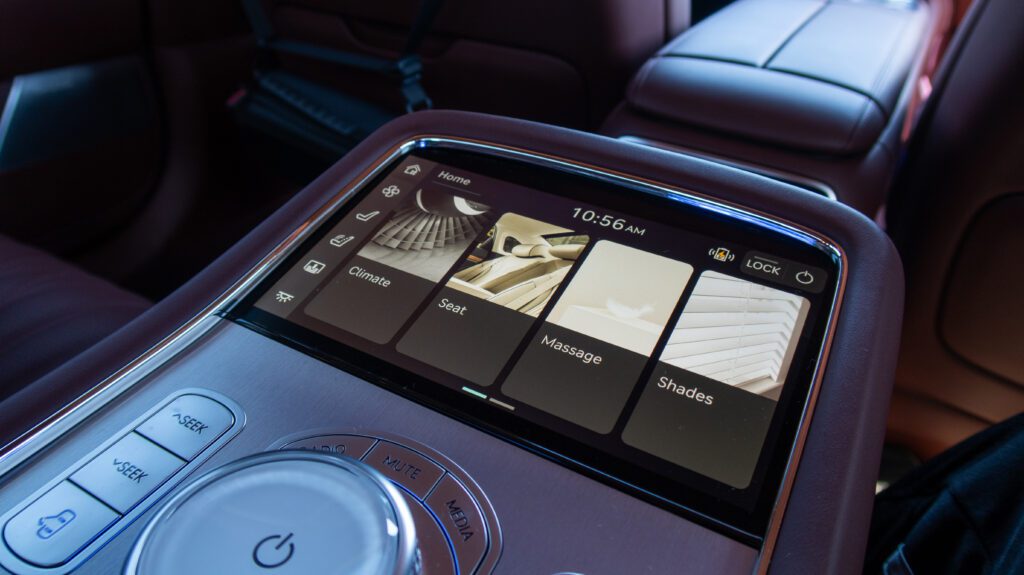
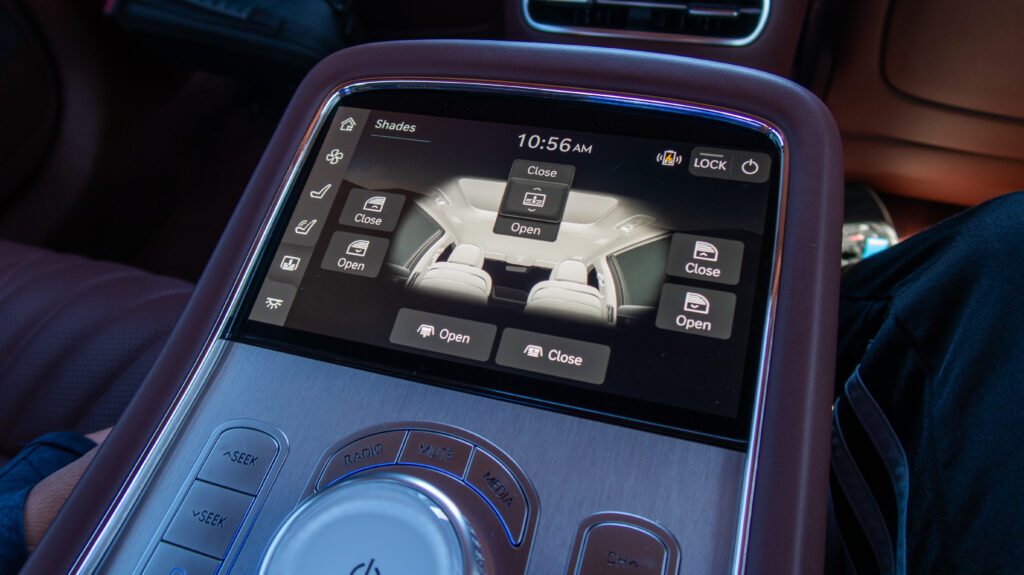
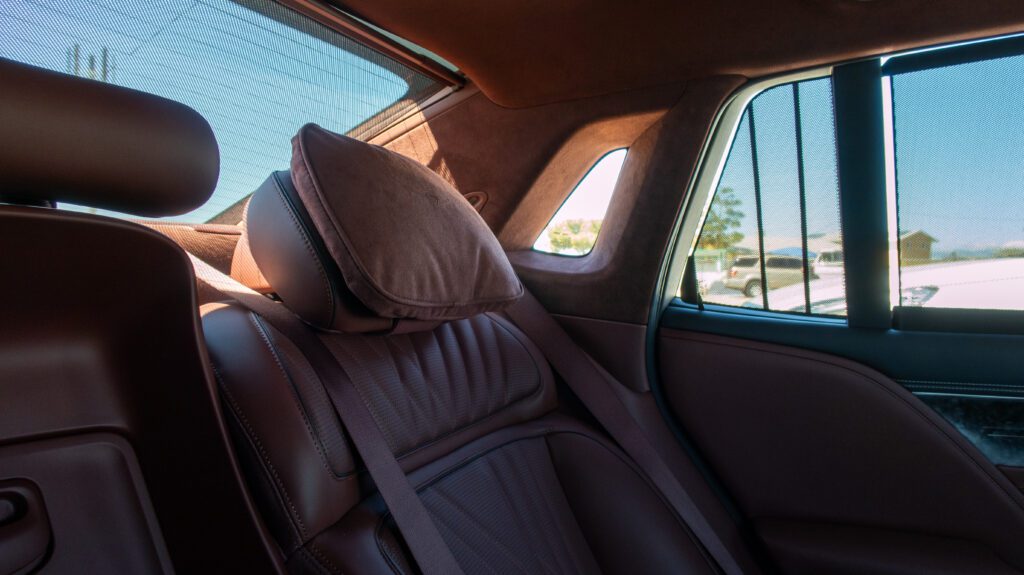
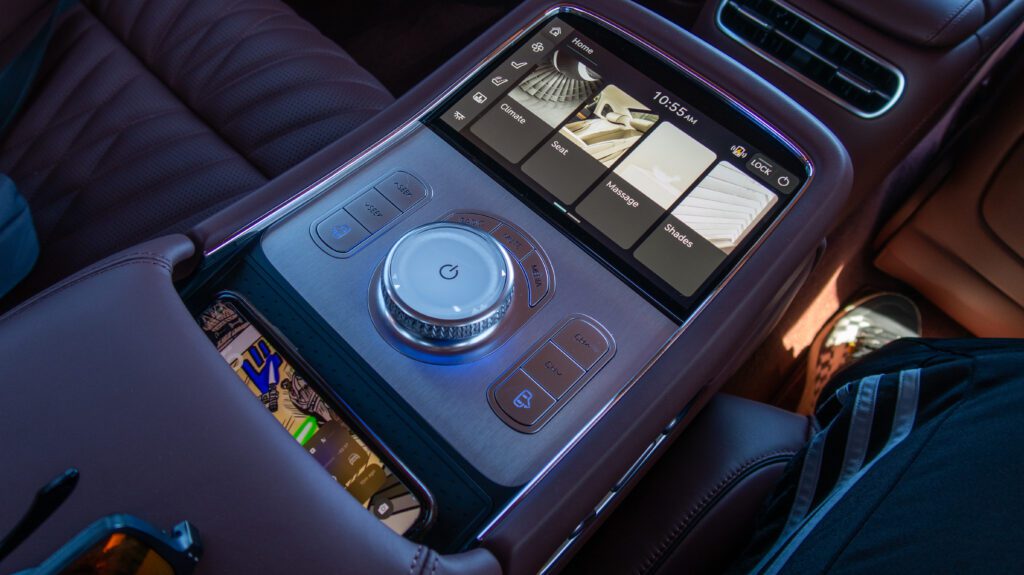
Earlier that weekend when covering an event at Willow Springs, the rear seat proved to be plenty capable of coddling the rich and mighty should they discard any brand sobbery in favor of buying a Genesis in the first place. I could fully recline the seat, move the front passenger out of the way since riding shotgun is for the poors, and take naps in heated, cooled, and massaging bliss. Hang my camera backs on the metal pillar-mounted coat hanger rods, put up those power sunshades, and let the caccoon of insulation drown out the incenssent barks of those lowly Civics outside (just kidding, I love you, Civic Type R, my beloved).
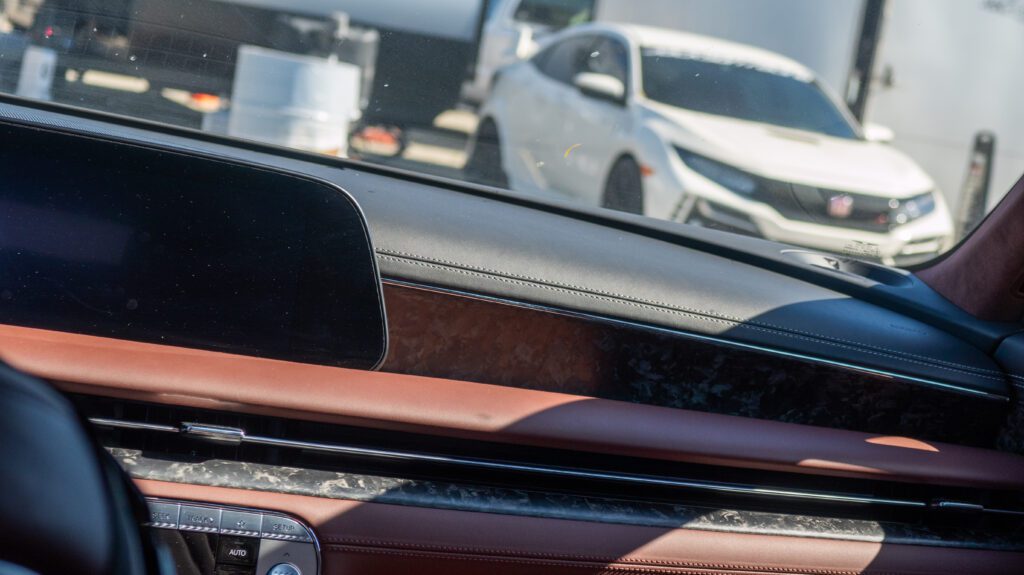
An all-star act begging for some follow-ups
Basking in all Genesis gets right makes it hard to ignore the few tidbits it gets wrong. For instance, why do Honda-freaking-Civics get wireless CarPlay, but the flagship product of a luxury brand doesn’t? Wack. While the 48-volt mild hybrid system results in rapid engine starts, the start-stop system is still a bit perceptible, which may be fine in a standard family sedan, but it feels a tad out of place in something so posh. A true hybrid powertrain can possibly smooth that out and bolster the ho-hum city fuel economy tremendously while delivering a handy performance boost. Not that it needs the boost.
The G90 absolutely is not slow, but it can be even more effortless during passing, which probably isn’t helped by its reluctance to downshift outside Sport mode or its immense weight. The G90 is a quick, punchy thing that makes torque everywhere, but it could be even better. Two turbos and a supercharger and only 409 horsepower? Hm. I sense some punch-pulling for future models. There’s always room for improvement, like its ride quality, which can be even more pillow-like with smaller wheels and fatter sidewalls like the base G90s, as the 21-inchers simply can’t iron out every sharp edge and high-frequency imperfection in the road.
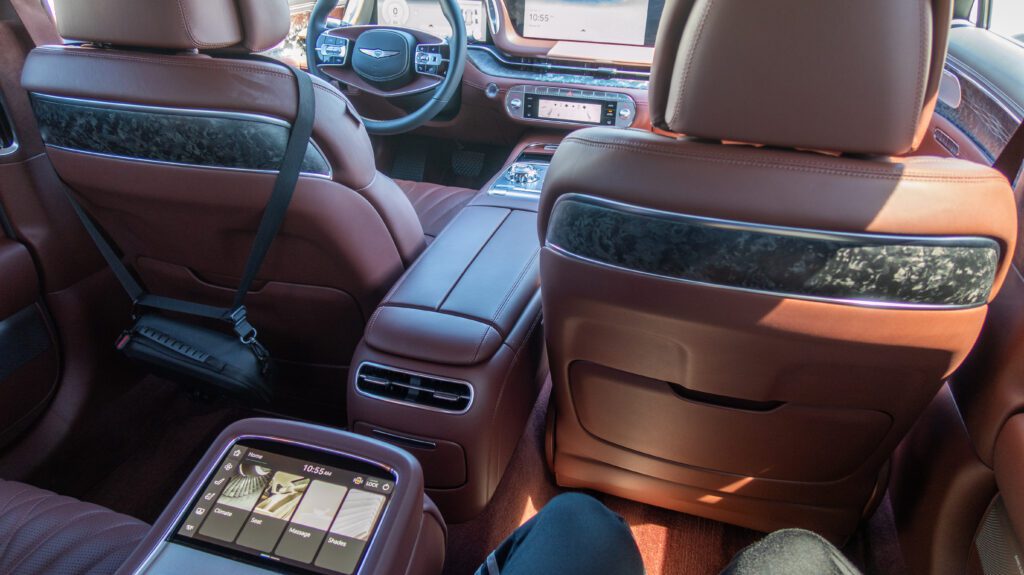
Have I been spoiled already after only a few days? I hope not. But that’s okay. These were built to represent strong value, and it most definitely does. But it also leaves plenty of room for potential performance or true hybrid variants down the line as the Genesis brand continues to soar into stardom. In fact, Genesis models will eventually get true hybrids but starting in the lower-level models first.
This is a fantastic car at a fantastic price. It leaves a few extra goodies on the table that are more like wants rather than needs… Except for wireless CarPlay. This thing should have wireless CarPlay at six figures.
And a Magma version, pretty please. Just for me.
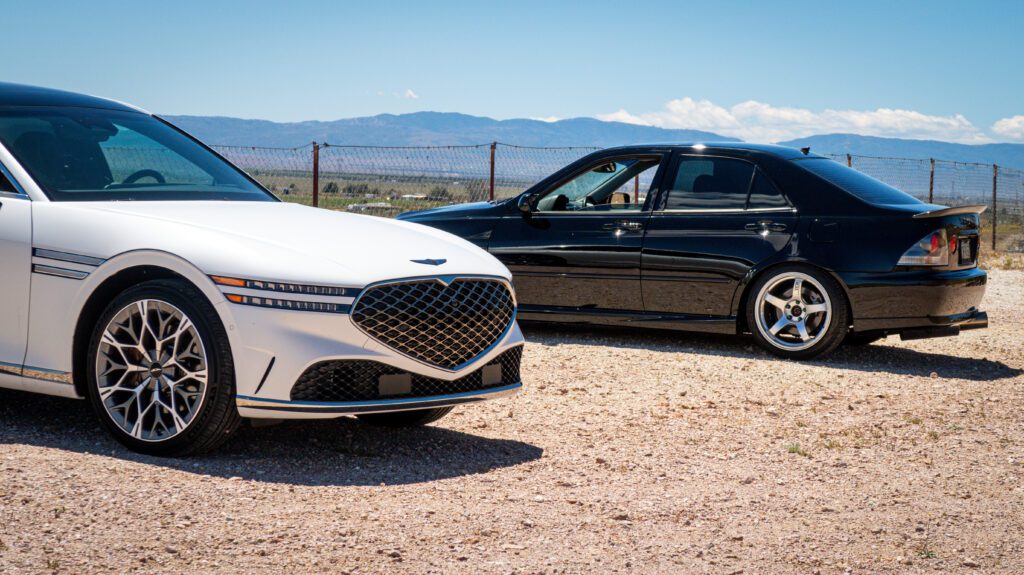
| What’s not? | – Not as sporty as its peers – Could be more powerful or offer more serious hybrid powertrains – Lexus LS is an even stronger value – Okay-ish fuel economy around town – Explaining to badge snobs why Genesis is cool – FOR THE LOVE OF GOD, JUST GIVE ME FAT-SIDEWALL TIRES |
Genesis has come a long way
The Genesis G90 isn’t the most dynamic, efficient, or high-tech thing in the field. But at such an undeniably strong price point and with all the standard equipment it throws in as freebies, it doesn’t need to be. It just needs to be an outstanding car that stands tall on its own merits, and it does. For roughly a hundred grand, or far less if you skip the electric supercharger, you get something that’s respectably quick, handles well enough, is built like a bank vault, rides like a cloud on most roads, and looks like an art museum exhibit inside and out.
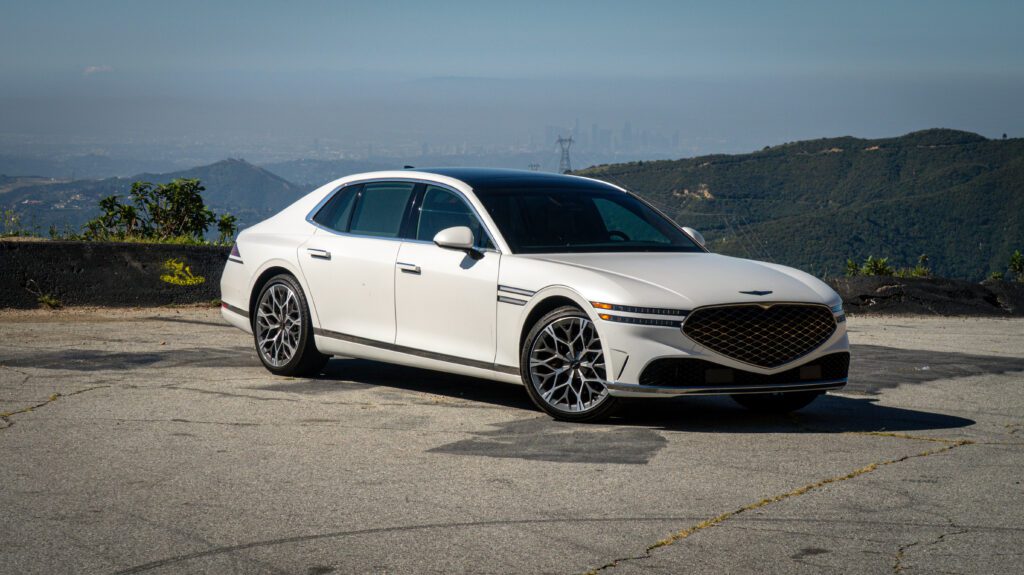
Best of all, Genesis achieves this purely through its own ingenuity and little mimicry. This car doesn’t remind me of anything else. Not a Lexus. Not a Mercedes. Not a BMW. It reminds me of Genesis. And I think that’s enough to lure in its own niche of cultist buyers and build a legacy that’ll stand for decades. If it all starts here in this era, I’d say Genesis was off to a hell of a start, and the ball is certainly rolling fast. Go, Genny, go!

